
Jul 22, 2015 | Non categorizzato
 In the waiting room – “Our son and his friend were jailed for drug dealing. During the long waits before visitations with inmate relatives, we got to know a young foreigner with a sad face. For three years she had to travel a great distance on foot, to be able to visit her friend regularly, who was in jail. When she heard that she could count on us in the future to give her a ride in our car, she finally smiled and couldn’t thank us enough. On the following visit, to lighten the wait especially for the small children who had come with their mothers, we brought along some toys, sweets and fruit. When he learned what was happening in the waiting room where there was a more serene atmosphere, we saw a positive change in our son’s relationship with us.” (Italy) Pardon – “I had gone to live with a colleague, leaving behind my wife and four children. While the eldest of my children took it badly and left the house, my wife and the other three began to ask God for the grace of my return. Little by little I found the strength to leave the other woman; to avoid seeing her at work (since we work in the same company), I also left my job. I returned to my family, unemployed until I was able to find a very simple job. Living humility was good for me. I thank God for the support I received from other families and especially for the forgiveness I received from my wife and my children with whom I have begun a new path.” (USA) On the phone – “Years ago my wife died at the age of 23 in an automobile accident. Since that day I felt a subtle bitterness towards the friend who had been driving and remained uninjured. I held him responsible for that death. He’s now married with children. With trembling hands I dialled his telephone number. His wife answered surprised and embarrassed when I told her it was me. I opened my heart to her: ‘I’ve been thinking about all of you for the past few days. I wanted to see you, to know your children. . . I’d be so happy if you’d come and visit me.” She was overcome with emotion and promised me they would visit. . . I found myself feeling so happy and light. (Switzerland) The numbers do add up – “A mother of five children with health problems, drugs and alcoholism, life choices that have led to irregular families, amidst tension and fights, now I’m a widow. Alone, in the face of problems
In the waiting room – “Our son and his friend were jailed for drug dealing. During the long waits before visitations with inmate relatives, we got to know a young foreigner with a sad face. For three years she had to travel a great distance on foot, to be able to visit her friend regularly, who was in jail. When she heard that she could count on us in the future to give her a ride in our car, she finally smiled and couldn’t thank us enough. On the following visit, to lighten the wait especially for the small children who had come with their mothers, we brought along some toys, sweets and fruit. When he learned what was happening in the waiting room where there was a more serene atmosphere, we saw a positive change in our son’s relationship with us.” (Italy) Pardon – “I had gone to live with a colleague, leaving behind my wife and four children. While the eldest of my children took it badly and left the house, my wife and the other three began to ask God for the grace of my return. Little by little I found the strength to leave the other woman; to avoid seeing her at work (since we work in the same company), I also left my job. I returned to my family, unemployed until I was able to find a very simple job. Living humility was good for me. I thank God for the support I received from other families and especially for the forgiveness I received from my wife and my children with whom I have begun a new path.” (USA) On the phone – “Years ago my wife died at the age of 23 in an automobile accident. Since that day I felt a subtle bitterness towards the friend who had been driving and remained uninjured. I held him responsible for that death. He’s now married with children. With trembling hands I dialled his telephone number. His wife answered surprised and embarrassed when I told her it was me. I opened my heart to her: ‘I’ve been thinking about all of you for the past few days. I wanted to see you, to know your children. . . I’d be so happy if you’d come and visit me.” She was overcome with emotion and promised me they would visit. . . I found myself feeling so happy and light. (Switzerland) The numbers do add up – “A mother of five children with health problems, drugs and alcoholism, life choices that have led to irregular families, amidst tension and fights, now I’m a widow. Alone, in the face of problems  that people could never even imagine, since I look so calm. I should say that I’m helped by my character, but I was able to react to certain situations thanks especially to the gift of faith and the support of friends. Now I’m living on my pension, but I manage just the same to help some needy people every month. At times I would like to say ‘no more’. Indeed it was be easy to put something aside for when I’m old. But it’s more powerful than me. And I see that Divine Providence continues to arrive right on time every time, and the numbers do add up.” (Italy)
that people could never even imagine, since I look so calm. I should say that I’m helped by my character, but I was able to react to certain situations thanks especially to the gift of faith and the support of friends. Now I’m living on my pension, but I manage just the same to help some needy people every month. At times I would like to say ‘no more’. Indeed it was be easy to put something aside for when I’m old. But it’s more powerful than me. And I see that Divine Providence continues to arrive right on time every time, and the numbers do add up.” (Italy)

Jul 20, 2015 | Focolare Worldwide
 “We are honored, grateful and especially happy that the message of unity that we try to spread has been recognized. A special thank you to all our readers who support and encourage us on that path!”, the Living City editorial team reports. Living City received an award for the April 2014 issue for “Best coverage of immigration” by Marilyn Boesch, Susanne Janssen and Lori Chesser. The CPA jury wrote: “These stories are captivating and relevant, and they put the human element front and center.” In the category “Best Explanation of Church’s Position on Marriage”, Living City got the third place for the articles in the July 2014 issue written by Michael and Julie James, Pietro Riccio,Sarah Mundell and Emilie Christy. “The perspective on diversity in these pieces is valuable. There is a clear call to action to those who wish to use their faith to create dialogue and build bridges,” commented the CPA. You can read and share these articles on the website: livingcitymagazine.com
“We are honored, grateful and especially happy that the message of unity that we try to spread has been recognized. A special thank you to all our readers who support and encourage us on that path!”, the Living City editorial team reports. Living City received an award for the April 2014 issue for “Best coverage of immigration” by Marilyn Boesch, Susanne Janssen and Lori Chesser. The CPA jury wrote: “These stories are captivating and relevant, and they put the human element front and center.” In the category “Best Explanation of Church’s Position on Marriage”, Living City got the third place for the articles in the July 2014 issue written by Michael and Julie James, Pietro Riccio,Sarah Mundell and Emilie Christy. “The perspective on diversity in these pieces is valuable. There is a clear call to action to those who wish to use their faith to create dialogue and build bridges,” commented the CPA. You can read and share these articles on the website: livingcitymagazine.com
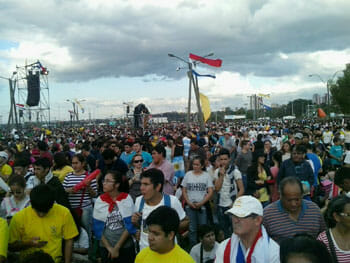
Jul 20, 2015 | Focolare Worldwide
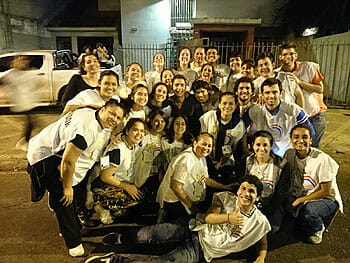 Ore aguije Papa Francisco pe, ha peeme avei pe ñembo’ehaguere ore rehe. In the Guaraní language: «Our thanks to Pope Francis and to all of you for your prayers.» «As we had imagined, overflowing graces have fallen on the entire Paraguay people, ever since His Holiness was here among us,» Nelson Benítes and Margarita Ávalos, heads of the Focolare in Paraguay wrote, after the Pope’s visit to their country. «The children, the sick and the youth were the main protagonists of the visit. Over 80,000 “servidores” (“stewards” – almost all young people) from all over the country worked day and night for three days. But the preparations started at least three months earlier, a concrete fact that gives true hope!» Nahuel Espinola recounts: «I was a ”servidor” of the Pope – It was simply fantastic! I’m 15 and I don’t know when I shall experience something like this again. I hope that his message will reach all the youth.» «There was instant bond with the people,» and some scenes will never be deleted from my mind: the children of the choir of Luque running towards Pope Francis for a group embrace, the thousands of people who filled the streets, his car stopping in front of the women’s jail. «When they found out that the Pope was coming, the children afflicted with cancer in a hospital did not want to be discharged!». Then there was the visit to “Bañado Norte,” one of the poorest districts of the capital, where the Pope visited a sick woman at home. «For that event, she had prepared the “chipa” and “sopa paraguaya,” typical dishes the Popes likes. This was followed by the surprise visit to the parish of Cristo Re, to pay homage to the still intact heart of the martyr and first Paraguayan saint: San Roque González de Santa Cruz.» In Caacupé, Pope Francis consecrated Paraguay entirely to Mary. Then came the meeting with civil society, one of the most striking moments when he launched a discourse on dialogue, inviting all to dialogue, by losing all in order to understand the other, and “enter” into the other. «Concepts like the humane side of development, giving priority to the person, and not treating the poor like objects, impressed me deeply,» affirmed Julia Dominguez, a member of the Economy of Communion of Paraguay, «From now on, we must not dwell on sentimentalism, but live this daily.» César Romero, active in the association for families added: «In the dynamism and freshness of the programme, I saw a Church that was making a big effort to update itself in its methods and messages.» Silvano Malini, a journalist in Paraguay wrote: «In these three countries of the Latin American “periphery,” Pope Francis decisively stood on the side of the “rejects” of society and victims of injustice and inequality, but in doing so did not “attack” anyone but human miserliness – the only sources of the serious and dramatic problems of this country (corruption, egoism, low-quality democracy).» Malini went on to say: «The Pope’s exhortations fell on soil tilled by the Church in Paraguay, as could be seen in the meeting with the representatives of over 1,500 civil society organizations. Pope Francis, with authority, gave an example of concrete dialogue which is not easy but does help to make small but sure steps towards a common project. »
Ore aguije Papa Francisco pe, ha peeme avei pe ñembo’ehaguere ore rehe. In the Guaraní language: «Our thanks to Pope Francis and to all of you for your prayers.» «As we had imagined, overflowing graces have fallen on the entire Paraguay people, ever since His Holiness was here among us,» Nelson Benítes and Margarita Ávalos, heads of the Focolare in Paraguay wrote, after the Pope’s visit to their country. «The children, the sick and the youth were the main protagonists of the visit. Over 80,000 “servidores” (“stewards” – almost all young people) from all over the country worked day and night for three days. But the preparations started at least three months earlier, a concrete fact that gives true hope!» Nahuel Espinola recounts: «I was a ”servidor” of the Pope – It was simply fantastic! I’m 15 and I don’t know when I shall experience something like this again. I hope that his message will reach all the youth.» «There was instant bond with the people,» and some scenes will never be deleted from my mind: the children of the choir of Luque running towards Pope Francis for a group embrace, the thousands of people who filled the streets, his car stopping in front of the women’s jail. «When they found out that the Pope was coming, the children afflicted with cancer in a hospital did not want to be discharged!». Then there was the visit to “Bañado Norte,” one of the poorest districts of the capital, where the Pope visited a sick woman at home. «For that event, she had prepared the “chipa” and “sopa paraguaya,” typical dishes the Popes likes. This was followed by the surprise visit to the parish of Cristo Re, to pay homage to the still intact heart of the martyr and first Paraguayan saint: San Roque González de Santa Cruz.» In Caacupé, Pope Francis consecrated Paraguay entirely to Mary. Then came the meeting with civil society, one of the most striking moments when he launched a discourse on dialogue, inviting all to dialogue, by losing all in order to understand the other, and “enter” into the other. «Concepts like the humane side of development, giving priority to the person, and not treating the poor like objects, impressed me deeply,» affirmed Julia Dominguez, a member of the Economy of Communion of Paraguay, «From now on, we must not dwell on sentimentalism, but live this daily.» César Romero, active in the association for families added: «In the dynamism and freshness of the programme, I saw a Church that was making a big effort to update itself in its methods and messages.» Silvano Malini, a journalist in Paraguay wrote: «In these three countries of the Latin American “periphery,” Pope Francis decisively stood on the side of the “rejects” of society and victims of injustice and inequality, but in doing so did not “attack” anyone but human miserliness – the only sources of the serious and dramatic problems of this country (corruption, egoism, low-quality democracy).» Malini went on to say: «The Pope’s exhortations fell on soil tilled by the Church in Paraguay, as could be seen in the meeting with the representatives of over 1,500 civil society organizations. Pope Francis, with authority, gave an example of concrete dialogue which is not easy but does help to make small but sure steps towards a common project. »  «At campo Ñu Guasú, a million faithful awaited him. The sun shone on the crowd that had been waiting for 15 hours in the mud, because it had rained over the last few days. But nothing could stop the celebrations.» Esteban Echagüe recounted: «Neither the mud nor the weariness could deter the immense joy we all felt. I was so struck by the Pope’s affirmation that the parishes should really be places of encounter with one’s brethren, and a place of acceptance and fraternity, and if this is not so, we would not be true Christians.» «After a brief but intense moment with the Paraguay bishops, the Pope “miraculously” regained his strength to resume his pastoral journey! One could feel that he was tired as was natural for a 78 year old! But everyone was convinced that in front of the youth, Francis would be transformed.» In fact, more than 200,000 were waiting for him along the Paraguay River! He asked all to have a free heart and furthermore…, «continue to raise a “ruckus” but an organized one.» Leonor Navaro confided: «The Pope aroused in the youth and in all, the desire to be better… because he saw us the way we should be – and through his eyes the world discovered us as such. From now on we want to reflect ourselves in his eyes!» Along the way back to the airport, he was moved upon blessing a place which is a really painful symbol for the country: the remains of a commercial center where ten years ago, around 400 people died in a fire. Nelson and Margarita continued: «Through Bishop Adalberto Martínez, Secretary General of the Episcopal Conference of Paraguay, we wrote to the Pope that the Focolare Movement is praying for him. We had sent him a gift of a book on the Guaranì culture and on the development of Economy of Communion in the country. To conclude: «This visit, like that of Pope John Paul 27 years ago, will bring about vital and positive outcomes and spiritual effects also in the civil life of the country. Pope Francis was very clear in his words, but conveyed them with the tenderness of a Father! It is now up to them to make use of these moments of grace, “a before and an after” of the first visit of a Latin American Pope to Paraguay».
«At campo Ñu Guasú, a million faithful awaited him. The sun shone on the crowd that had been waiting for 15 hours in the mud, because it had rained over the last few days. But nothing could stop the celebrations.» Esteban Echagüe recounted: «Neither the mud nor the weariness could deter the immense joy we all felt. I was so struck by the Pope’s affirmation that the parishes should really be places of encounter with one’s brethren, and a place of acceptance and fraternity, and if this is not so, we would not be true Christians.» «After a brief but intense moment with the Paraguay bishops, the Pope “miraculously” regained his strength to resume his pastoral journey! One could feel that he was tired as was natural for a 78 year old! But everyone was convinced that in front of the youth, Francis would be transformed.» In fact, more than 200,000 were waiting for him along the Paraguay River! He asked all to have a free heart and furthermore…, «continue to raise a “ruckus” but an organized one.» Leonor Navaro confided: «The Pope aroused in the youth and in all, the desire to be better… because he saw us the way we should be – and through his eyes the world discovered us as such. From now on we want to reflect ourselves in his eyes!» Along the way back to the airport, he was moved upon blessing a place which is a really painful symbol for the country: the remains of a commercial center where ten years ago, around 400 people died in a fire. Nelson and Margarita continued: «Through Bishop Adalberto Martínez, Secretary General of the Episcopal Conference of Paraguay, we wrote to the Pope that the Focolare Movement is praying for him. We had sent him a gift of a book on the Guaranì culture and on the development of Economy of Communion in the country. To conclude: «This visit, like that of Pope John Paul 27 years ago, will bring about vital and positive outcomes and spiritual effects also in the civil life of the country. Pope Francis was very clear in his words, but conveyed them with the tenderness of a Father! It is now up to them to make use of these moments of grace, “a before and an after” of the first visit of a Latin American Pope to Paraguay».
Jul 18, 2015 | Focolare Worldwide

Jul 14, 2015 | Non categorizzato
 Lack of communication and the incapacity to comprehend the other, see the positive side of the other person’s diversity, and establish the right distance with the families of origin, are often the causes of the crises, in an individualistic society that does not believe in marriage and the commitment for a long-lasting relationship. The 7th edition of the course in Loppiano this year (20-27 June) was organized by the New Families and aimed to strengthen the unity of couples. The course allowed participants to demonstrate willingness to put themselves to the test, together with a deep sharing with the course guides and other families, and avail of the advice of experts that could help dead-end relationships to start anew. With these factors, also the greatest difficulties could be overcome, as was demonstrated by the moving testimonial of unconditional forgiveness by a couple that was reunited after nine years of separation. However, the path towards “encounter” is complex. «Upon their arrival, the tense features and sad expressions of the couples conveyed their deep suffering, more than words,» recount Marina and Gianni Vegliach, course guides of the New Families. «Some spoke about the need to find a meaning, some spoke about an estranged partner, some doubted having a future together, while others referred to the impossibility of dialogue and some confided of “not being able to forgive themselves.». «As we went deeper into the course programme entitled A course of light for the couple – continued Vegliach – the Focolare’s spirituality of unity, together with the psychological path, sharing of experiences, practical exercises, personal talks, and moments of recreation, helped to transform hearts and souls. And this showed through the changed expressions of their faces and eyes, which became more serene.» «When we arrived we were empty, obsessed with the word “end” and now are going home with the words “start again,” a couple said. Among the course-guide families were two couples who had done the course in the past, and decided to put themselves at the service with commitment, seriousness and competence, and who managed to enter the tunnel with those who were in the dark, and encourage and support the couples with their own experiences. The course covered themes on self-knowledge, diversity, conflict, and acceptance of others, and helps the participants to identify their own particular suffering which has to be faced, possibly also with the psychological support of an expert. The sharing of experiences with other couples helps one to view his own personal situation from various standpoints, find the courage needed to rebuild a quality relationship, and escape from that solitude which makes the crisis seem irreversible. The daily appointment at the “Theotokos” shrine and the special atmosphere of Loppiano, the international town of the Focolare in Incisa Valdarno (Florence) – where the inhabitants learn spontaneously to put themselves in others’ shoes and live in fraternity – contributed positively to the success of the course, and opened new possibilities to “look to the future together, share the ups and downs, rediscover dialogue and hope, and start caring for one another.” As someone said: «Now we have the means to leave the closed shell of our own selves and hope to continue using these tools at the right moment.» To consolidate these results, a week-end verification and assessment event has been organised for the winter. Furthermore, a meeting has been set in Castelgandolfo from 24 to 27 September 2015, which will be open to not more than 60 course guides and experts to discuss the possibility of holding additional “enlightening” courses also locally.
Lack of communication and the incapacity to comprehend the other, see the positive side of the other person’s diversity, and establish the right distance with the families of origin, are often the causes of the crises, in an individualistic society that does not believe in marriage and the commitment for a long-lasting relationship. The 7th edition of the course in Loppiano this year (20-27 June) was organized by the New Families and aimed to strengthen the unity of couples. The course allowed participants to demonstrate willingness to put themselves to the test, together with a deep sharing with the course guides and other families, and avail of the advice of experts that could help dead-end relationships to start anew. With these factors, also the greatest difficulties could be overcome, as was demonstrated by the moving testimonial of unconditional forgiveness by a couple that was reunited after nine years of separation. However, the path towards “encounter” is complex. «Upon their arrival, the tense features and sad expressions of the couples conveyed their deep suffering, more than words,» recount Marina and Gianni Vegliach, course guides of the New Families. «Some spoke about the need to find a meaning, some spoke about an estranged partner, some doubted having a future together, while others referred to the impossibility of dialogue and some confided of “not being able to forgive themselves.». «As we went deeper into the course programme entitled A course of light for the couple – continued Vegliach – the Focolare’s spirituality of unity, together with the psychological path, sharing of experiences, practical exercises, personal talks, and moments of recreation, helped to transform hearts and souls. And this showed through the changed expressions of their faces and eyes, which became more serene.» «When we arrived we were empty, obsessed with the word “end” and now are going home with the words “start again,” a couple said. Among the course-guide families were two couples who had done the course in the past, and decided to put themselves at the service with commitment, seriousness and competence, and who managed to enter the tunnel with those who were in the dark, and encourage and support the couples with their own experiences. The course covered themes on self-knowledge, diversity, conflict, and acceptance of others, and helps the participants to identify their own particular suffering which has to be faced, possibly also with the psychological support of an expert. The sharing of experiences with other couples helps one to view his own personal situation from various standpoints, find the courage needed to rebuild a quality relationship, and escape from that solitude which makes the crisis seem irreversible. The daily appointment at the “Theotokos” shrine and the special atmosphere of Loppiano, the international town of the Focolare in Incisa Valdarno (Florence) – where the inhabitants learn spontaneously to put themselves in others’ shoes and live in fraternity – contributed positively to the success of the course, and opened new possibilities to “look to the future together, share the ups and downs, rediscover dialogue and hope, and start caring for one another.” As someone said: «Now we have the means to leave the closed shell of our own selves and hope to continue using these tools at the right moment.» To consolidate these results, a week-end verification and assessment event has been organised for the winter. Furthermore, a meeting has been set in Castelgandolfo from 24 to 27 September 2015, which will be open to not more than 60 course guides and experts to discuss the possibility of holding additional “enlightening” courses also locally.
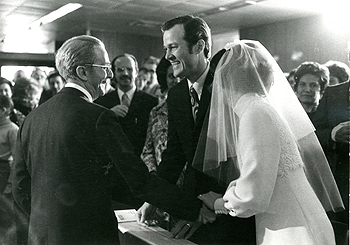
Jul 12, 2015 | Non categorizzato
 «The fundamental role of the family is to grow and multiply: give a boost to life, cooperate in the creative work of the Creator. Its unity is not interrupted but extended in its progeny, in whom the love between two spouses is incarnated. Unity becomes a person: father, mother and child make up a life in the image and resemblance, in some way, of the divinity that created and vivifies them. These are three points from which the cycle of love alone originates and is nurtured by God’s love. »(Giordani, 1942) By tracing the divine profile of the family, in a sense Giordani anticipated what the documents of Vatican II would declare upon underlining the privilege of the spouses in «cooperating in the creative work of the Creator,» and also in considering the family as a reflection of the life of the Trinity from which it inherits its design. In the 1980s this doctrine, so dear to St. John Paul II, would have become the basis of his historical catechesis on human love. Last 23 June, the Synod’s preparatory Commission diffused the Instrumentum Laboris, on which the Synod fathers would have to reflect next October, in order to propose to the Holy Father the possible solutions to be implemented in favour of the families. Focusing on the vocation and mission of the family, this document starts with an overview of the many problems besetting the family today and the serious cultural and social challenges undermining it. But the awareness of such critical factors has not only been felt in recent times. In1975 a letter of the Episcopacy of Quebec conveyed an alarming analysis to this regard. Giordani was so struck by it as to cite some passages of the letter at a certain point in his writings, in order to offer to families its luminous and prominent message: «The difficulties in life do not crush a family that is rooted in God while in too many cases,they destroy those that are established only on money. The strength of a family lies in the union of the couple, but union is the fruit of love. It is thus to their earthly and heavenly interest to love one another, and take the trials, sufferings and disillusions as a way of sanctifying themselves. Marriage not only unites the spouses to one another, but as father and mother, they are united to God. This unity in God, of man and woman, of parents and progeny, is the most profound sense of marriage and the family.» (Giordani, 1975) Prepared by the Igino Giordani Centre Excerpts from: Igino Giordani, Famiglia comunità d’amore, New City, Rome 2001 and Igino Giordani, La società cristiana, New City, Rome, 2010
«The fundamental role of the family is to grow and multiply: give a boost to life, cooperate in the creative work of the Creator. Its unity is not interrupted but extended in its progeny, in whom the love between two spouses is incarnated. Unity becomes a person: father, mother and child make up a life in the image and resemblance, in some way, of the divinity that created and vivifies them. These are three points from which the cycle of love alone originates and is nurtured by God’s love. »(Giordani, 1942) By tracing the divine profile of the family, in a sense Giordani anticipated what the documents of Vatican II would declare upon underlining the privilege of the spouses in «cooperating in the creative work of the Creator,» and also in considering the family as a reflection of the life of the Trinity from which it inherits its design. In the 1980s this doctrine, so dear to St. John Paul II, would have become the basis of his historical catechesis on human love. Last 23 June, the Synod’s preparatory Commission diffused the Instrumentum Laboris, on which the Synod fathers would have to reflect next October, in order to propose to the Holy Father the possible solutions to be implemented in favour of the families. Focusing on the vocation and mission of the family, this document starts with an overview of the many problems besetting the family today and the serious cultural and social challenges undermining it. But the awareness of such critical factors has not only been felt in recent times. In1975 a letter of the Episcopacy of Quebec conveyed an alarming analysis to this regard. Giordani was so struck by it as to cite some passages of the letter at a certain point in his writings, in order to offer to families its luminous and prominent message: «The difficulties in life do not crush a family that is rooted in God while in too many cases,they destroy those that are established only on money. The strength of a family lies in the union of the couple, but union is the fruit of love. It is thus to their earthly and heavenly interest to love one another, and take the trials, sufferings and disillusions as a way of sanctifying themselves. Marriage not only unites the spouses to one another, but as father and mother, they are united to God. This unity in God, of man and woman, of parents and progeny, is the most profound sense of marriage and the family.» (Giordani, 1975) Prepared by the Igino Giordani Centre Excerpts from: Igino Giordani, Famiglia comunità d’amore, New City, Rome 2001 and Igino Giordani, La società cristiana, New City, Rome, 2010

Jul 11, 2015 | Focolare Worldwide
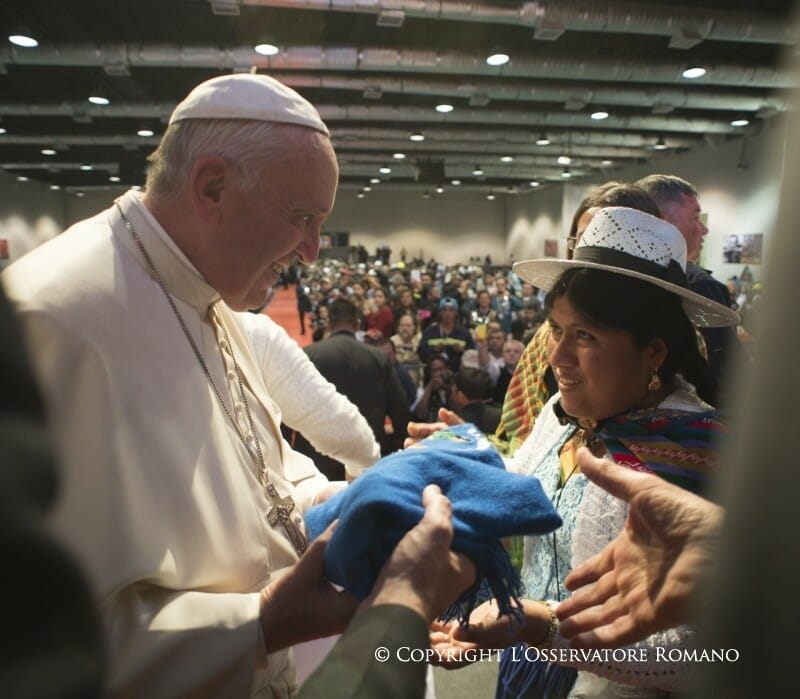 “I’ve discovered how the Pope favors the excluded. In some way it’s also my choice, but by his example I have understood how at times I continue to exclude, or I find myself in a group of people who keep silent in the midst of exclusions or injustices,” says Ana Maria Ceballos, a social worker in Bolivia. An impression that speaks of true conversion towards the excluded, one of the strongest themes of this step of the voyage of Pope Francis in Latin America. The same for Nestor Ariñez di Cochabamba, who lives in the Casa de los Ninos, a social project animated by the spirituality of unity: “In Palmasola the Pope said: reclusion is not the same as exclusion.” There, in the largest penitentiary in Bolivia, the most striking message was the pope’s “listening first of all, and then his saying that he too is a man who makes mistakes and who must do ‘penance.’ A message of hope for all the detainees.” “The pope’s visit to Bolivia leaves us with much to reflect upon,” he continues. “But I believe that what remains very clear is his preferential option for the poor, the motto of the Church in Latin America given to Puebla in 1979, which reminds us that the gospel brings the good news to everyone, but especially to those who are excluded and rejected by society. I felt that the Pope was speaking directly to us.” “His words are a call to conversion,” confides Pat, a Bolivian focolarina, after the meeting with priests, religious, and consecrated people. “But it is also much more: the sole fact of his presence in the midst of many ‘rare flowers of every age’ who one day said their yes to God, pushed me towards a greater commitment to sanctity, which then means to live with coherence the choice I made.” “Even from Bolivia, Pope Francis spoke to the whole world,” writes Lucas Cerviño, now 11 years in Bolivia, instructor in Missiology and intercultural theology. “At the mass in Santa Cruz there were many Latin Americans from nearby countries who listened to his call to not despair before the difficult situations that the world presents to us and that bring us to exclusion.” At the second meeting of popular movements, Pope Francis–before representatives from various continents who welcomed him with enthusiasm and attention–clearly indicated the way for social renewal, both local and global. “Land, Home, and Work,” continues Cerviño, “are sacred rights which permit us to dialogue with everyone in order to contribute to the common good. Pope Francis clearly highlighted for the members of social and popular movements that the fundamental aspect is the process, the starting of processes, for an economy at the service of peoples, to unite peoples on the way towards peace and justice, and for the defense of the homeland.” “Finally,” concludes Cerviño, “he left the Bolivian people a clear and beautiful consignment.” “Bolivia is at an historic crossroads: politics, the world of culture, the religions are all part of this beautiful challenge to grow in unity. In this land whose history has been marred by exploitation, greed and so many forms of selfishness and sectarianism, now is the time for integration. And this is a path we have to walk. Today Bolivia is capable, with its wealth, of creating new forms of cultural synthesis. How beautiful are those cities which overcome paralyzing mistrust, integrate those who are different and make this very integration a new factor of development! How attractive it is when those cities are full of spaces which connect, relate and favor the recognition of others! Bolivia in its process of integration and its search for unity, is called to be an example of such ‘multifaceted and inviting harmony,’ a harmony which invites along the path of strengthening the greater country.”
“I’ve discovered how the Pope favors the excluded. In some way it’s also my choice, but by his example I have understood how at times I continue to exclude, or I find myself in a group of people who keep silent in the midst of exclusions or injustices,” says Ana Maria Ceballos, a social worker in Bolivia. An impression that speaks of true conversion towards the excluded, one of the strongest themes of this step of the voyage of Pope Francis in Latin America. The same for Nestor Ariñez di Cochabamba, who lives in the Casa de los Ninos, a social project animated by the spirituality of unity: “In Palmasola the Pope said: reclusion is not the same as exclusion.” There, in the largest penitentiary in Bolivia, the most striking message was the pope’s “listening first of all, and then his saying that he too is a man who makes mistakes and who must do ‘penance.’ A message of hope for all the detainees.” “The pope’s visit to Bolivia leaves us with much to reflect upon,” he continues. “But I believe that what remains very clear is his preferential option for the poor, the motto of the Church in Latin America given to Puebla in 1979, which reminds us that the gospel brings the good news to everyone, but especially to those who are excluded and rejected by society. I felt that the Pope was speaking directly to us.” “His words are a call to conversion,” confides Pat, a Bolivian focolarina, after the meeting with priests, religious, and consecrated people. “But it is also much more: the sole fact of his presence in the midst of many ‘rare flowers of every age’ who one day said their yes to God, pushed me towards a greater commitment to sanctity, which then means to live with coherence the choice I made.” “Even from Bolivia, Pope Francis spoke to the whole world,” writes Lucas Cerviño, now 11 years in Bolivia, instructor in Missiology and intercultural theology. “At the mass in Santa Cruz there were many Latin Americans from nearby countries who listened to his call to not despair before the difficult situations that the world presents to us and that bring us to exclusion.” At the second meeting of popular movements, Pope Francis–before representatives from various continents who welcomed him with enthusiasm and attention–clearly indicated the way for social renewal, both local and global. “Land, Home, and Work,” continues Cerviño, “are sacred rights which permit us to dialogue with everyone in order to contribute to the common good. Pope Francis clearly highlighted for the members of social and popular movements that the fundamental aspect is the process, the starting of processes, for an economy at the service of peoples, to unite peoples on the way towards peace and justice, and for the defense of the homeland.” “Finally,” concludes Cerviño, “he left the Bolivian people a clear and beautiful consignment.” “Bolivia is at an historic crossroads: politics, the world of culture, the religions are all part of this beautiful challenge to grow in unity. In this land whose history has been marred by exploitation, greed and so many forms of selfishness and sectarianism, now is the time for integration. And this is a path we have to walk. Today Bolivia is capable, with its wealth, of creating new forms of cultural synthesis. How beautiful are those cities which overcome paralyzing mistrust, integrate those who are different and make this very integration a new factor of development! How attractive it is when those cities are full of spaces which connect, relate and favor the recognition of others! Bolivia in its process of integration and its search for unity, is called to be an example of such ‘multifaceted and inviting harmony,’ a harmony which invites along the path of strengthening the greater country.”
Jul 11, 2015 | Focolare Worldwide
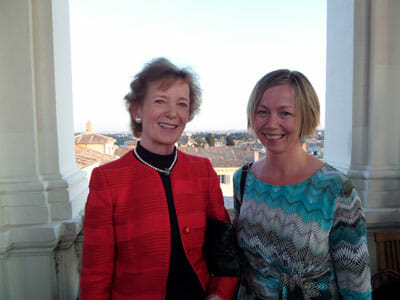
Jul 9, 2015 | Non categorizzato
 180 people from over 40 nations: activists, NGOs, social movements, scientists, religious congregations, activists from the Catholic world and beyond, together to discover concrete ways of responding to Pope Francis’s encyclical Laudato Si’. Environmental experts Lorna Gold from Ireland and John Mundell from the United States attended as representatives of the Focolare Movement and Eco-One. For over 13 years Lorna Gold has worked in the field of the environment at Trocaire-Overseas Development Agency of the Catholic Church in Ireland. John Mundell is president of an environmental consultant agency in Indianapolis, Mundell & Associates, Inc., which adheres to the Economy of Communion. “The most important thing about this conference is the diversity among the people, organisers and ethnic groups that came together to give an immediate response to the Pope’s Encyclical,” Lorna Gold says. “We’ve come here from the whole world and in the name of civil society. There are activists like Naomi Klein, a world-renowned writer on the topics concerning ecology and economy in an age of globalisation; there are people from ecological movements like the head of Greenpeace, Kumi Naido; there is the entire network of the CIDSE-NGO, Catholics who work for social and global justice.” The three-day meeting gave the sense of a movement in the act of helping to incarnate the ideals of the Si’ Encyclical. Among the examples that were presented there was also the The Earth Cube™, created by Eco-One, a network of professionals from the field of the environment who are inspired by the spirituality of unity. The difficulties and the complexities of the environmental problem were on the minds of all: a problem not only for science and of the earth, but also for the economy and politics. Often the choices in these environments go directly against nature and generate more poverty but, according to Naomi Klein, something can still be done: “We could prevent so much suffering. We can’t justify doing nothing, because it’s difficult. Don’t let perfect win good. We need difficult, but possible, instead of easy yet reprehensible. Stop making the difficult a limit for possible, and let possible be real.” The reverse route is possible if there is enough strength to face the problem. The presence of so many people directly involved on many different fronts gives much hope, and it made everyone experience what Pope Francis says in the Encyclical: the whole is more than the sum of its parts. John Mundell highlighted another novelty at the meeting: “The role of women as protagonists in the discussion and debate on climate change. In this summit we almost saw a vision of the future of the Church: open, in dialogue with the world, seeking relations with all people of good will, to bring ahead a more united world, more in contact with the planet.” Laudato Si’ invites us to rethink our lifestyle. As Naomi Klein said: “This is not only a teaching for the Catholic world, and as a secular Jewish feminist, I can say I felt this Encyclical also talking to me.” https://vimeo.com/133043698
180 people from over 40 nations: activists, NGOs, social movements, scientists, religious congregations, activists from the Catholic world and beyond, together to discover concrete ways of responding to Pope Francis’s encyclical Laudato Si’. Environmental experts Lorna Gold from Ireland and John Mundell from the United States attended as representatives of the Focolare Movement and Eco-One. For over 13 years Lorna Gold has worked in the field of the environment at Trocaire-Overseas Development Agency of the Catholic Church in Ireland. John Mundell is president of an environmental consultant agency in Indianapolis, Mundell & Associates, Inc., which adheres to the Economy of Communion. “The most important thing about this conference is the diversity among the people, organisers and ethnic groups that came together to give an immediate response to the Pope’s Encyclical,” Lorna Gold says. “We’ve come here from the whole world and in the name of civil society. There are activists like Naomi Klein, a world-renowned writer on the topics concerning ecology and economy in an age of globalisation; there are people from ecological movements like the head of Greenpeace, Kumi Naido; there is the entire network of the CIDSE-NGO, Catholics who work for social and global justice.” The three-day meeting gave the sense of a movement in the act of helping to incarnate the ideals of the Si’ Encyclical. Among the examples that were presented there was also the The Earth Cube™, created by Eco-One, a network of professionals from the field of the environment who are inspired by the spirituality of unity. The difficulties and the complexities of the environmental problem were on the minds of all: a problem not only for science and of the earth, but also for the economy and politics. Often the choices in these environments go directly against nature and generate more poverty but, according to Naomi Klein, something can still be done: “We could prevent so much suffering. We can’t justify doing nothing, because it’s difficult. Don’t let perfect win good. We need difficult, but possible, instead of easy yet reprehensible. Stop making the difficult a limit for possible, and let possible be real.” The reverse route is possible if there is enough strength to face the problem. The presence of so many people directly involved on many different fronts gives much hope, and it made everyone experience what Pope Francis says in the Encyclical: the whole is more than the sum of its parts. John Mundell highlighted another novelty at the meeting: “The role of women as protagonists in the discussion and debate on climate change. In this summit we almost saw a vision of the future of the Church: open, in dialogue with the world, seeking relations with all people of good will, to bring ahead a more united world, more in contact with the planet.” Laudato Si’ invites us to rethink our lifestyle. As Naomi Klein said: “This is not only a teaching for the Catholic world, and as a secular Jewish feminist, I can say I felt this Encyclical also talking to me.” https://vimeo.com/133043698
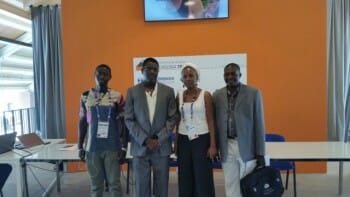
Jul 8, 2015 | Focolare Worldwide
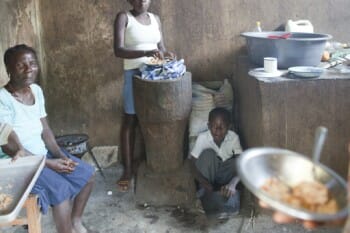 “Haiti, once one of the most prosperous French colonies, Pearl of the Antilles, today is amongst the poorest countries in the world, devastated by a serious ecological catastrophe,” says Ronald La Rêche, ex-deputy and candidate for the senate of Mont Organizé. Thousands of people live without access to traditional forms of energy such as electricity and gas. The constant recourse to firewood has led to to deforestation, which has a direct negative impact on climate change, causing desertification and progressive diminishment of the water supply. This led to the idea of supporting the Haitian population with the help of renewable energy, especially solar energy. The “Cucine solari per Mont-Organizé Project was conceived by the AFN, an association inspired by Focolare values – in collaboration with PACNE (Action contre la Pauvreté du Nord Est), the NationalMicrocredit Entity, the Agriculture Department of the Università degli Studi di Napoli “Federico II” , Tesla I.A. Ltd., and the SIOI (Società Italiana per l’Organizzazione Internazionale). Its goal is to introduce solar power cookers in the centres that are supported by AFN in the Mont-Organisé Haiti territory of Mont-Organisé. The solar cooker uses very simple technology, easy maintenance and installation, and it is possible to learn how to assemble it on site, favoring its dissemination amongst the community. It consists of a device based on a system of solar concentration. Through a lens, solar energy is transformed into thermal energy which is then stored in a battery. The project was presented on Saturday, July 4, 2015 at the “Cucine Solari, una risposta alle problematiche dei Paesi in via di sviluppo,” of EXPO di Milano 2015 in the Cascina Triulza-Civil Society Pavillion. President of the AFN, Andrea Turatti, explains: “The process we propose would use the solar cooker in schools, with the help of the AFN in Mont- Organizé, a rural area in the borough of Ouanaminthe, North-East Haiti. The next steps will be to train the teachers who, in turn, will train families and involve the local population in microcredit projects.”
“Haiti, once one of the most prosperous French colonies, Pearl of the Antilles, today is amongst the poorest countries in the world, devastated by a serious ecological catastrophe,” says Ronald La Rêche, ex-deputy and candidate for the senate of Mont Organizé. Thousands of people live without access to traditional forms of energy such as electricity and gas. The constant recourse to firewood has led to to deforestation, which has a direct negative impact on climate change, causing desertification and progressive diminishment of the water supply. This led to the idea of supporting the Haitian population with the help of renewable energy, especially solar energy. The “Cucine solari per Mont-Organizé Project was conceived by the AFN, an association inspired by Focolare values – in collaboration with PACNE (Action contre la Pauvreté du Nord Est), the NationalMicrocredit Entity, the Agriculture Department of the Università degli Studi di Napoli “Federico II” , Tesla I.A. Ltd., and the SIOI (Società Italiana per l’Organizzazione Internazionale). Its goal is to introduce solar power cookers in the centres that are supported by AFN in the Mont-Organisé Haiti territory of Mont-Organisé. The solar cooker uses very simple technology, easy maintenance and installation, and it is possible to learn how to assemble it on site, favoring its dissemination amongst the community. It consists of a device based on a system of solar concentration. Through a lens, solar energy is transformed into thermal energy which is then stored in a battery. The project was presented on Saturday, July 4, 2015 at the “Cucine Solari, una risposta alle problematiche dei Paesi in via di sviluppo,” of EXPO di Milano 2015 in the Cascina Triulza-Civil Society Pavillion. President of the AFN, Andrea Turatti, explains: “The process we propose would use the solar cooker in schools, with the help of the AFN in Mont- Organizé, a rural area in the borough of Ouanaminthe, North-East Haiti. The next steps will be to train the teachers who, in turn, will train families and involve the local population in microcredit projects.”  Attention to green technologies and overall sustainability were among the innovation cited by Luigino Bruni, professor of Economics at the University of Rome (LUMSA), and coordinator of the Economy of Communion. Then there is “the exploitation of local resources (such as the sun), the materials at the site, and the involvement of the population.” The economist said: “This is where the true success of the project is played out. It will work to the extent in which it is seen as a true opportunity by the local population.” Focolare president, Maria Voce, wrote: “The Cucine solari” project is in sync with the teachings of Pope Francis who has focused attention on the environment, making integral ecology the main focus of his encyclical letter Laudato si’, that is, the relationship beteen nature and the people who live in it. [. . .] This project that is founded on care for the environment and sustainable development from within the communities that benefit, can offer valid answers to the urgent problems of the country. The project seeks a resolution to the environmental crisis, health, nutrition, and energy supply with an eye toward the basic needs of the most weakest and most vulnerable. It utilises solar energy, while being mindful and respectful of the local culture, offering opportunity for development and social inclusion of the most disadvantaged, such as the children who receive support and education in Focolare schools.
Attention to green technologies and overall sustainability were among the innovation cited by Luigino Bruni, professor of Economics at the University of Rome (LUMSA), and coordinator of the Economy of Communion. Then there is “the exploitation of local resources (such as the sun), the materials at the site, and the involvement of the population.” The economist said: “This is where the true success of the project is played out. It will work to the extent in which it is seen as a true opportunity by the local population.” Focolare president, Maria Voce, wrote: “The Cucine solari” project is in sync with the teachings of Pope Francis who has focused attention on the environment, making integral ecology the main focus of his encyclical letter Laudato si’, that is, the relationship beteen nature and the people who live in it. [. . .] This project that is founded on care for the environment and sustainable development from within the communities that benefit, can offer valid answers to the urgent problems of the country. The project seeks a resolution to the environmental crisis, health, nutrition, and energy supply with an eye toward the basic needs of the most weakest and most vulnerable. It utilises solar energy, while being mindful and respectful of the local culture, offering opportunity for development and social inclusion of the most disadvantaged, such as the children who receive support and education in Focolare schools.
Jul 6, 2015 | Focolare Worldwide
Teaching methodology: an interactive approach, open to dialogue, sharing, and re-working with the instructors, experts, and students together, through seminars, workshops, and debates. Subject matter: proposals, analysed and studied in the preceding 6 months by an international preparatory committee formed by several of the participating students with the co-operation of the experts.
- Relationships in healthcare activities
- Ethics in daily clinical practice, starting with several documents from international medical institutions, and finishing with clinical experiences on aspects such as end of life care.
Participants: students and young people from 20 to 35 years of age in the various professions of the biomedical field (medical doctors, nurses, physiotherapists, occupational therapists, etc.) coming from various countries. Maximum number of participants: 50 Languages: Portuguese, English, Italian, Spanish Objectives: Offer to healthcare professionals the skills necessary to care for the person and not only the pathology, and to remedy the fragmentation of care, guaranteeing that professionals are united in taking responsibility for the patient. At the end of the programme, a certificate of participation will be issued. Location: Cidadela Arco-Iris, Rua Senhora da Graça, 60 2580-042 Abrigada Tel. +351 263 799 995 + 351 263 790 131 Fax: + 351 263 799 091 Hours: The programme will start September 3rd at 9:00 a.m. and will conclude September 6th at 1:00 p.m. Cost: The cost, including meals and lodging for all days of the Summer School (starting with dinner September 2nd and ending with lunch on September 6th), transportation from the Lisbon airport to the location and return trip, and the touristic excursion to Lisbon, is 180€. Enrollment: Complete and send the registration form (www.mdc-net.org) to the address: mdc@flars.net. Registration will be accepted after the receipt of payment by means of a bank transfer to: ASSOCIAZIONE MEDICINA DIALOGO COMUNIONE (M.D.C.) IBAN: IT68L0335901600100000113321 BIC: BCITITMX For more information, please contact mdc@flars.net. ——————————————————————— Associazione Medicina Dialogo Comunione Via IV Novembre 7, 00046 GROTTAFERRATA (RM) Fax 06-94549841 Email: mdc@flars.net Website: www.mdc-net.org

Jul 6, 2015 | Focolare Worldwide
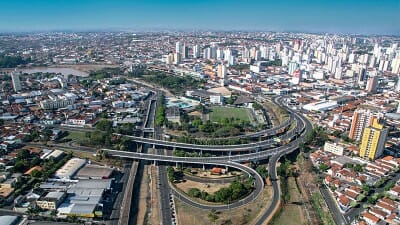 It was in the air. Too many times João had heard his parents argue, and the fact that he and his mother and brothers had to leave home because his father had a child with another woman didn’t surprise him very much. He was 16 then, he was involved in his parish, he had friends. Within him, though, he felt betrayed and dissatisfied, with a strong need for freedom, to be himself. It was an apprehension that led him to discontinue his studies. He took up his schooling again years later, only after he had found the real reason for living. “At 20 years of age,” recounts João, “I participated in a Focolare activity with the youth group from my parish. During those few days, I realized that the Gospel isn’t so much to be commented or reflected upon, as it is to be put into practice immediately. I was particularly struck by those passages which say how to treat our neighbors: the Good Samaritan, the Golden Rule. I had gone to the activity out of pure curiosity, and instead it was the event which changed my life.” In Sao José do Rio Preto (State of Sao Paulo), which is my hometown, there are many people who live on the street. One evening, as I was going back home on my bicycle, I crossed paths with a man who was walking barefoot. His feet were dirty and wounded. At the sight of him, I couldn’t pedal any further. “That man is my neighbor, I have to go back to him.” Before I reached him, I took off my shoes to give them to him. He looked at me, surprised. I saw that he was wearing a T-shirt with my favorite soccer team on it, and I said to him, to take away his embarrassment, “So you’re a Santista fan? So am I! What’s your name?” He took the shoes, and we became friends.
It was in the air. Too many times João had heard his parents argue, and the fact that he and his mother and brothers had to leave home because his father had a child with another woman didn’t surprise him very much. He was 16 then, he was involved in his parish, he had friends. Within him, though, he felt betrayed and dissatisfied, with a strong need for freedom, to be himself. It was an apprehension that led him to discontinue his studies. He took up his schooling again years later, only after he had found the real reason for living. “At 20 years of age,” recounts João, “I participated in a Focolare activity with the youth group from my parish. During those few days, I realized that the Gospel isn’t so much to be commented or reflected upon, as it is to be put into practice immediately. I was particularly struck by those passages which say how to treat our neighbors: the Good Samaritan, the Golden Rule. I had gone to the activity out of pure curiosity, and instead it was the event which changed my life.” In Sao José do Rio Preto (State of Sao Paulo), which is my hometown, there are many people who live on the street. One evening, as I was going back home on my bicycle, I crossed paths with a man who was walking barefoot. His feet were dirty and wounded. At the sight of him, I couldn’t pedal any further. “That man is my neighbor, I have to go back to him.” Before I reached him, I took off my shoes to give them to him. He looked at me, surprised. I saw that he was wearing a T-shirt with my favorite soccer team on it, and I said to him, to take away his embarrassment, “So you’re a Santista fan? So am I! What’s your name?” He took the shoes, and we became friends.  I was at the train station, returning from a meeting held in another city. At that hour–two o’clock in the morning–the means of public transportation no longer run, and so I started towards home on foot, crossing the center of the city. Looking around, I saw lots of people who took advantage of the fact that stores were closed to sleep in front of the shop windows. I wasn’t afraid, because this was my hometown. At one point, however, a big, tall man came up to me and asked for money. I must confess that I started to be a little afraid. Who was to say that he wasn’t violent? But I thought, “He, too, is my brother, the Gospel says so.” Calmly, I told him that I couldn’t give him anything because I had no money either. He began to tell me his story, then he had me put on his headphones. He was listening to a sermon by a Protestant pastor. I listened to the transmission for a bit, so that I could tell him that this person was saying nice things and that it’s good to listen to these positive messages every so often. He asked me, “Who are you?” Not knowing how to respond, I asked him why he wanted to know. He said, “Because nobody treats us this well.” This went on for 30 or 40 minutes. I thought about the distance I still needed to travel in order to arrive home, about the fact that I needed to wake up at 6 the next morning to go to work. But I felt that I had to stay a while longer to accommodate this neighbor who needed company and listening. In the end, after he had asked for my address in order to come to my house for a barbecue, we said goodbye, with the knowledge that we had each found a brother. One rainy day, as I was returning home on my motorcycle, I saw a man, soaking wet, who was trying without success to get up from a puddle. I recognized him: he was one of my next-door neighbors who was always drunk. In the nearby bar, there were several men who simply watched the scene without doing anything. Trying not to get angry, I stopped, left the motorcycle there and accompanied him home, explaining to his wife what had happened. Then I retraced my steps to go back for the motorcycle. As I walked, a phrase re-echoed deep in my heart: “You did it to Me.” I was no longer angry. It was enough for me to feel happy and to not blame those men, astonished, who continued to watch me.
I was at the train station, returning from a meeting held in another city. At that hour–two o’clock in the morning–the means of public transportation no longer run, and so I started towards home on foot, crossing the center of the city. Looking around, I saw lots of people who took advantage of the fact that stores were closed to sleep in front of the shop windows. I wasn’t afraid, because this was my hometown. At one point, however, a big, tall man came up to me and asked for money. I must confess that I started to be a little afraid. Who was to say that he wasn’t violent? But I thought, “He, too, is my brother, the Gospel says so.” Calmly, I told him that I couldn’t give him anything because I had no money either. He began to tell me his story, then he had me put on his headphones. He was listening to a sermon by a Protestant pastor. I listened to the transmission for a bit, so that I could tell him that this person was saying nice things and that it’s good to listen to these positive messages every so often. He asked me, “Who are you?” Not knowing how to respond, I asked him why he wanted to know. He said, “Because nobody treats us this well.” This went on for 30 or 40 minutes. I thought about the distance I still needed to travel in order to arrive home, about the fact that I needed to wake up at 6 the next morning to go to work. But I felt that I had to stay a while longer to accommodate this neighbor who needed company and listening. In the end, after he had asked for my address in order to come to my house for a barbecue, we said goodbye, with the knowledge that we had each found a brother. One rainy day, as I was returning home on my motorcycle, I saw a man, soaking wet, who was trying without success to get up from a puddle. I recognized him: he was one of my next-door neighbors who was always drunk. In the nearby bar, there were several men who simply watched the scene without doing anything. Trying not to get angry, I stopped, left the motorcycle there and accompanied him home, explaining to his wife what had happened. Then I retraced my steps to go back for the motorcycle. As I walked, a phrase re-echoed deep in my heart: “You did it to Me.” I was no longer angry. It was enough for me to feel happy and to not blame those men, astonished, who continued to watch me.
Jul 6, 2015 | Focolare Worldwide
” I want to be a witness of this joy of the Gospel and bring to you the tenderness and caress of God, our Father, especially to his children most in need, to the elderly, the sick, the imprisoned, the poor, to those who are victims of this throwaway culture.” Pope Francis spoke from the heart in the video message to his “dear brothers and sisters of Ecuador, Bolivia, and Paraguay,” on the eve of the voyage that from July 5th to 13th will bring him to three South American countries, praying “that the announcement of the Gospel can reach to the farthest outskirts and continue to make the values of the Kingdom of God a leaven of the earth in our days as well.” https://www.youtube.com/watch?v=A5QEBJ8-IJw “Right from the preparations we sensed that this visit would be a providential grace for the people of God in this land,” write Bernadita and Fabián, who are responsible for the Focolare Movement in Ecuador. Inés Loato is on the organizing committee. She remembers with gratitude the path undertaken in just two months of preparation: “it has been a new discovery meeting members of other Movements and church communities, a tremendous richness. We all feel we are truly brothers and sisters.” In this period they sought to “testify to this love as preparation for the grace that we will surely receive.” Many others were involved as volunteers, thousands throughout the country: “Joy, humility and love are the three consignments that the Church has given us for our volunteer work,” explains Adriana Guallasamin, a young volunteer and coordinator in the formation sector. A mission of “proclamation, door to door, in contact with many people who are far from the Church, but slowly responded to the invitation to help with the logistics.” “I am grateful to God,” she concludes, ” for this unique opportunity to serve the Church.” What to expect from the pope’s packed schedule, in the first stop in Ecuador (http://papafranciscoenecuador.com/) There are the two mid-ocean masses in Guayaquil and Quito, a meeting with the world of education, with representatives of civil society, a visit to the Sisters of Mother Teresa nursing home, a meeting with priests, religious brothers and sisters, seminarians, and the Bishops of the nation. In addition to the greeting for President Correa and the visit to the Cathedral of Quito and the Church of the Company. In Bolivia (http://www.franciscoenbolivia.org/) with the motto, “Renewal and Reconciliation,” awaits –among other appointments–the 2nd World Meeting of Popular Movements and a visit to the imprisoned in the Center of Reeducation in Palmasola. In Paraguay (https://franciscoenparaguay.org/) the visit to a pediatric hospital and the inhabitants of a barrio (neighborhood) in the capital city, Asunción. The voyage concludes with a meeting with young people on the riverfront, Costanera: “messenger of joy and peace,” or as they say in guarani, the official language of Paraguay along with Spanish, to highlight the cultural variety and preciousness : Oguerúva vy’a ha py’aguapy.

Jul 4, 2015 | Non categorizzato
 «The modern world with its secularism, has moved away from God because […] it had not received sufficient explanations on the fact that man was God, had been divinised, and was not only dependent on an estranged and remote being: it was in a mysterious manner another small God, due to its participation in the divine nature through Jesus’s life, and particularly through the Eucharist. When I reconsider some of Marx’s writings, in which he negates the value of religion precisely because it alienates man, making him a stranger to his own self, exactly because it makes him depend on something that is external to himself, I think that if he had only known that man finds his divinisation and thus his independence in the trinitarian sense, he would never have come to think the way he did.[…] The same goes also for Hegel, from which Marx drew inspiration; the same can be said of the immanentists, all those who negated God in order to uphold man, up to Sartre, Camus and so on. Sartre had said: «there cannot be a God, because if so, I would not exist,» precisely because he would crush me. This is not so since God who became man, made you God, making you share his divine nature.[…] Day by day we see how none of humanity’s problems can be resolved singularly, and neither by particular groups nor national groups. The problems now have to be resolved in a collegial manner, giving rise to that unity Jesus had brought. And we know that this unity can rarely be created without a spiritual life. In short, it is by creating a community of bodies that a community of persons is created, and this is only possible if these persons are nurtured by something which harmonises them tas one. This something may, in a remote sense, be science, or the research man has initiated. But what most of all creates unity is Man par excellence, that is, Jesus. He is the one who makes us men and makes us a community. […] The Eucharist, on one hand, is an immense mystery. On the other, it is a banquet which is a natural convergence of human fraternity. […]The Eucharist is the soul, and must become the soul of this sociality.» Excerpt of: Luce che si incarna, comment on the 12 points of the spirituality, Pasquale Foresi, New City 2014, pp.107-109
«The modern world with its secularism, has moved away from God because […] it had not received sufficient explanations on the fact that man was God, had been divinised, and was not only dependent on an estranged and remote being: it was in a mysterious manner another small God, due to its participation in the divine nature through Jesus’s life, and particularly through the Eucharist. When I reconsider some of Marx’s writings, in which he negates the value of religion precisely because it alienates man, making him a stranger to his own self, exactly because it makes him depend on something that is external to himself, I think that if he had only known that man finds his divinisation and thus his independence in the trinitarian sense, he would never have come to think the way he did.[…] The same goes also for Hegel, from which Marx drew inspiration; the same can be said of the immanentists, all those who negated God in order to uphold man, up to Sartre, Camus and so on. Sartre had said: «there cannot be a God, because if so, I would not exist,» precisely because he would crush me. This is not so since God who became man, made you God, making you share his divine nature.[…] Day by day we see how none of humanity’s problems can be resolved singularly, and neither by particular groups nor national groups. The problems now have to be resolved in a collegial manner, giving rise to that unity Jesus had brought. And we know that this unity can rarely be created without a spiritual life. In short, it is by creating a community of bodies that a community of persons is created, and this is only possible if these persons are nurtured by something which harmonises them tas one. This something may, in a remote sense, be science, or the research man has initiated. But what most of all creates unity is Man par excellence, that is, Jesus. He is the one who makes us men and makes us a community. […] The Eucharist, on one hand, is an immense mystery. On the other, it is a banquet which is a natural convergence of human fraternity. […]The Eucharist is the soul, and must become the soul of this sociality.» Excerpt of: Luce che si incarna, comment on the 12 points of the spirituality, Pasquale Foresi, New City 2014, pp.107-109
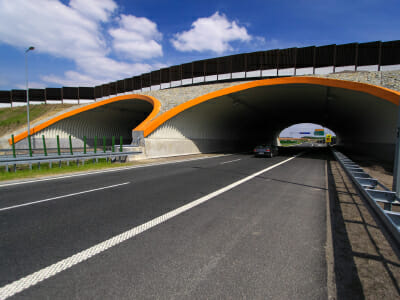
Jul 2, 2015 | Focolare Worldwide
https://vimeo.com/132331626 Everyone who experiences its effects says that the Economy of Communion (EoC) is a way of life, more than a way of running a business. And it is precisely for this reason that the most diverse businesses decide to administrate their activities in the full spirit of the EoC. Complex Projekt, which is in the business of projection and construction of roads, motorways and bridges, is also an EoC. In 1990, when the EoC began in Brazil, the business was in trouble. The removal of the communist regime raised strong doubt and uncertainty, and the transition to a capitalist system generated constant questioning and mistrust. The very concept of private property created uncertainty and discomfort in entrepreneurs. Andrzej Milkowski, president of Complex Projekt, discovered the answer to “freeing himself from the pressures of private property” in the EoC. Thanks to the EoC, he found that he was “merely an administrator” and that “the business owner was God.” This made Milkowski realise that what mattered most in the business was its human capital, and that good management depended on the values one believed in. For him, they were the values of the Gospel put into practice by applying the teaching of St. John Paul II: “to be, rather than to speak”. This kind of talk can sound far removed from the real business world, but in the long run, in Complex Projekt, it actually made the difference.  “Our work consists of creating complex infrastructure projects, and that carries a great responsibility,” Milkowski explains. “In the EoC proposal I found the interior freedom that was needed and the distance from myself, values which led me to no longer make decisions on my own, but through shared understanding. Such decisions then prove to be just right for growing the company.” Milkowski describes how colleagues and personnel strive to base their life on mutual respect as they strive to create a climate of trust and giving priority to interpersonal relations. The internal regulations include the Golden Rule, a version of which can be found in the sacred texts of all religions: ‘Everything that you want others to do for you, do also for them’. It is “understood as an opportunity,” the president explains, “offered to each employee for them to freely decide.” Two years ago, Andrzej Milkowski began handing over the administration of the business to his son, Stanislaw. This generational transition is also being carried out in the light of the values that have been acquired over years. Andrezej reflects: “I think it is a result of the working lifestyle that all of us in the business, personnel and administration, receive from God. If we make even a small attempt each day to live the values of the Gospel,” the Polish businessman concludes, “we receive ‘something more’ from the Creator, a greater capacity even in front of things like project planning, professional and family difficulties which can be listened to and discussed. This is how we build the Kingdom of God . . . and the rest will be given us as well. We experience it every day. Indeed, in spite of the economic crisis, the business continues to grow and develop.”
“Our work consists of creating complex infrastructure projects, and that carries a great responsibility,” Milkowski explains. “In the EoC proposal I found the interior freedom that was needed and the distance from myself, values which led me to no longer make decisions on my own, but through shared understanding. Such decisions then prove to be just right for growing the company.” Milkowski describes how colleagues and personnel strive to base their life on mutual respect as they strive to create a climate of trust and giving priority to interpersonal relations. The internal regulations include the Golden Rule, a version of which can be found in the sacred texts of all religions: ‘Everything that you want others to do for you, do also for them’. It is “understood as an opportunity,” the president explains, “offered to each employee for them to freely decide.” Two years ago, Andrzej Milkowski began handing over the administration of the business to his son, Stanislaw. This generational transition is also being carried out in the light of the values that have been acquired over years. Andrezej reflects: “I think it is a result of the working lifestyle that all of us in the business, personnel and administration, receive from God. If we make even a small attempt each day to live the values of the Gospel,” the Polish businessman concludes, “we receive ‘something more’ from the Creator, a greater capacity even in front of things like project planning, professional and family difficulties which can be listened to and discussed. This is how we build the Kingdom of God . . . and the rest will be given us as well. We experience it every day. Indeed, in spite of the economic crisis, the business continues to grow and develop.”
Jul 1, 2015 | Focolare Worldwide
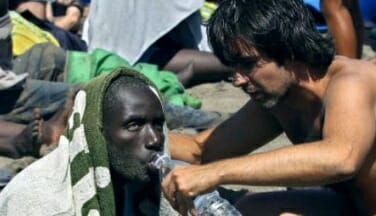
Jun 30, 2015 | Focolare Worldwide
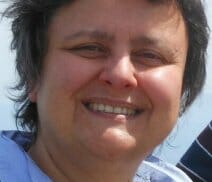 “When it comes to migrations, the numbers say more than the words. In one report published in October 2014, it was estimated that there were 7,124,000,000 people in the world. If the wealth were equally distributed, every person would have a median annual income of 14 thousand USA dollars. In reality, the income of 2,700,000,000 people is two USA dollars per day. Now, this economic inequality, which is a social inequality, has a very strong impact on migration. Entire populations pick up and move toward wealthier countries.” What is a migrant? In 2013, the United Nations claimed that there were 232 million married people in the world. And it defined a migrant as “a person who leaves his or her own country for reasons of employment and settles in another place for a period of more than twelve months.” That’s the only definition that you find, Flavia Cerino stressed. In fact, there are the refugees (the ones who are in need of political asylum in another country); the refugees fleeing from war situations, the so-called “illegals” (who move without having a document that makes them eligible to enter another country). And the reasons vary: war, poverty, studies, cultural interest, natural disasters . . .
“When it comes to migrations, the numbers say more than the words. In one report published in October 2014, it was estimated that there were 7,124,000,000 people in the world. If the wealth were equally distributed, every person would have a median annual income of 14 thousand USA dollars. In reality, the income of 2,700,000,000 people is two USA dollars per day. Now, this economic inequality, which is a social inequality, has a very strong impact on migration. Entire populations pick up and move toward wealthier countries.” What is a migrant? In 2013, the United Nations claimed that there were 232 million married people in the world. And it defined a migrant as “a person who leaves his or her own country for reasons of employment and settles in another place for a period of more than twelve months.” That’s the only definition that you find, Flavia Cerino stressed. In fact, there are the refugees (the ones who are in need of political asylum in another country); the refugees fleeing from war situations, the so-called “illegals” (who move without having a document that makes them eligible to enter another country). And the reasons vary: war, poverty, studies, cultural interest, natural disasters . . . 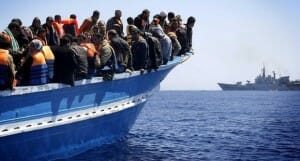 What were the most repeated words in the reports from the workshops at the New Humanity international training course where this topic was discussed? A few things stood out in the workshops. “The first was “fear,” fear of anything that is different from me,” continued Cerino. In reality, diversity is a great enrichment. We see that in nature where biological diversity is very enriching. If we lost it we’d be heading for extinction. We obviously have to consider the fear that is born of uncertainty; and this brings us to the topic of public order, national security. One thing is public order, and another thing is fear of diversity. Another topic that was frequently raised was the family. A migrant who travels alone, leaving the family behind, finds it difficult to describe the hardships he or she faces, in order not to worry their loved ones. But actually it would be important to tell one’s family what the real life situation is like, so that they will have a real understanding of what migration entails also in terms of reuniting the family, since families generally look forward to staying together. Another word that came up was interculturalism. That is the capacity to overcome the fear of diversity in order to create an environment of encounter and understanding. And it’s not only cultural understanding, but existential understanding, sharing problems. The migrant should be placed in a position of giving, but he and she believe that they have nothing to give when they are not recognized as persons who can act as active citizens, and therefore they are excluded from the start.
What were the most repeated words in the reports from the workshops at the New Humanity international training course where this topic was discussed? A few things stood out in the workshops. “The first was “fear,” fear of anything that is different from me,” continued Cerino. In reality, diversity is a great enrichment. We see that in nature where biological diversity is very enriching. If we lost it we’d be heading for extinction. We obviously have to consider the fear that is born of uncertainty; and this brings us to the topic of public order, national security. One thing is public order, and another thing is fear of diversity. Another topic that was frequently raised was the family. A migrant who travels alone, leaving the family behind, finds it difficult to describe the hardships he or she faces, in order not to worry their loved ones. But actually it would be important to tell one’s family what the real life situation is like, so that they will have a real understanding of what migration entails also in terms of reuniting the family, since families generally look forward to staying together. Another word that came up was interculturalism. That is the capacity to overcome the fear of diversity in order to create an environment of encounter and understanding. And it’s not only cultural understanding, but existential understanding, sharing problems. The migrant should be placed in a position of giving, but he and she believe that they have nothing to give when they are not recognized as persons who can act as active citizens, and therefore they are excluded from the start.  Flavia Cerino cited a question posed by Igino Giordani many years ago: “What do I do for him?, referring to an immigrant. “That’s the question we’re asking ourselves now. What do we do? There are countless experiences, great projects. My experience is the same as many of you. It turns on two elements: the first is that everything depends on a personal sensitivity. As a human being I feel called, and my and put into question right where I live, by a problem that I see in my next door neighbor. And I try to figure out what I should do, turning to the people and institutions who have the authority to act. Because it’s a matter of alleviating, making the presence of a migrant easier in my city. Actually, to the question of “What can I do?” we can answer by acting and doing what is within our power; so, getting together with others who share this desire, beginning with small gestures, we can weave together a network right where we are: simple gestures that generate a renewal of humanity right around us.” Source: “Reflections on migrations and interculturalism,” intervention during the New Humanity international training course (February 2015), coordinated by immigration expert Flavia Cerino. www.umanitanuova.org
Flavia Cerino cited a question posed by Igino Giordani many years ago: “What do I do for him?, referring to an immigrant. “That’s the question we’re asking ourselves now. What do we do? There are countless experiences, great projects. My experience is the same as many of you. It turns on two elements: the first is that everything depends on a personal sensitivity. As a human being I feel called, and my and put into question right where I live, by a problem that I see in my next door neighbor. And I try to figure out what I should do, turning to the people and institutions who have the authority to act. Because it’s a matter of alleviating, making the presence of a migrant easier in my city. Actually, to the question of “What can I do?” we can answer by acting and doing what is within our power; so, getting together with others who share this desire, beginning with small gestures, we can weave together a network right where we are: simple gestures that generate a renewal of humanity right around us.” Source: “Reflections on migrations and interculturalism,” intervention during the New Humanity international training course (February 2015), coordinated by immigration expert Flavia Cerino. www.umanitanuova.org
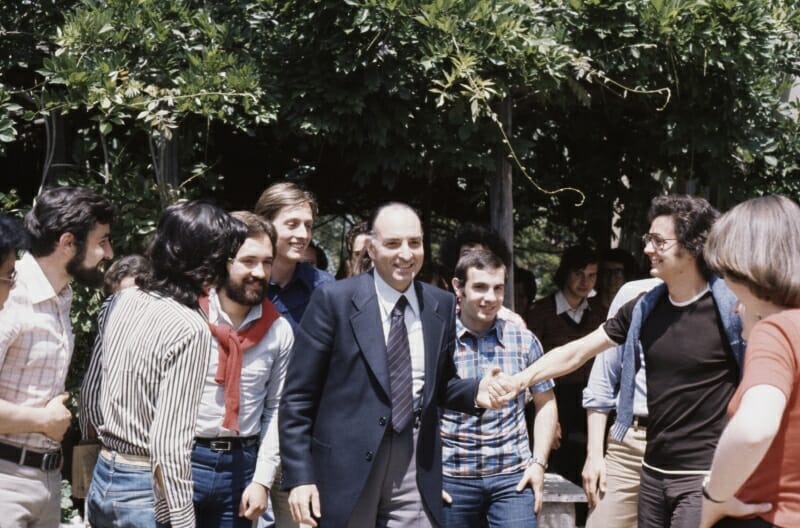
Jun 30, 2015 | Non categorizzato
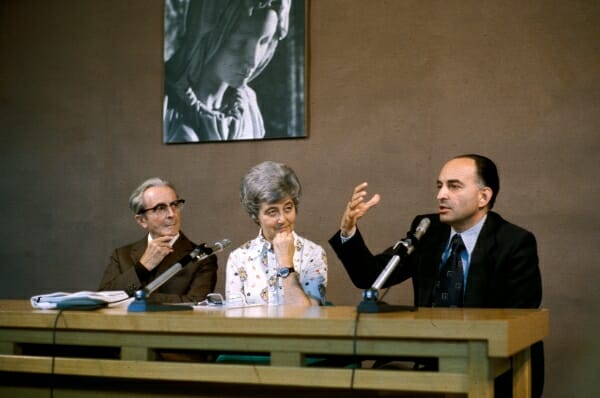
Photo CSC Media
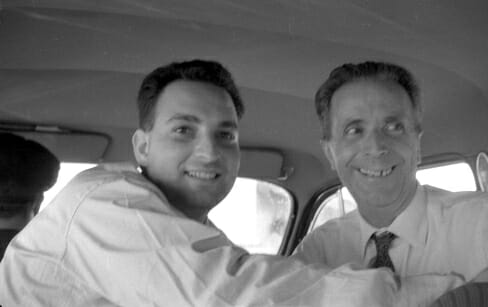
Photo CSC Media

Photo CSC Media
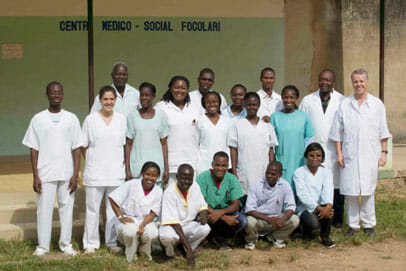
Jun 29, 2015 | Focolare Worldwide
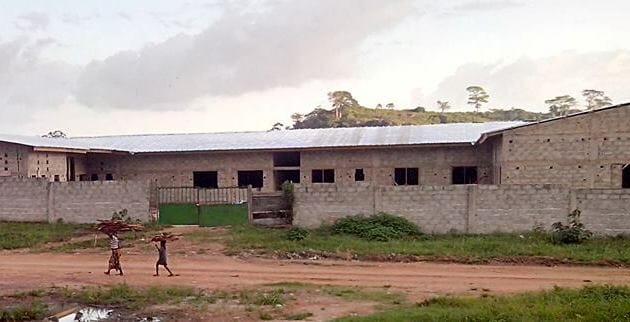 Estelle is the eldest of eight brothers, in a family from Ivory Coast who, after having worked as a secretary at a medical clinic in Abidjan, moved to Man in 2006 where she volunteers especially as a contact person with sponsors of a medical centre run by the Focolare Movement. When the project finished, she decided to expand her administrative skills. Meanwhile, her father died and she had to provide financial support for the family. She applied for and received a scholarship from Fraternity with Africa. Now, along with working, she is specializing through distance learning courses in “Administration of NGO organisations and non-profit associations” at university in Burkina Faso. After finishing her studies, with the support of a tutor and of AMU, she will travel to Burundi where she will complete one stage in administration and finance at CASOBU, an NGO that promotes human and community development through acitivites and projects based on the values of sharing and sustainable development. “It was a nice concrete experience for me, because it was the first time I travelled outside Ivory Coast and got to know other cultures and learn much from CASOBU; their approach to microcredit, for example. When I returned to my own country, I decided to propose that same microcredit model, beginning with the people I knew. We’ve already begun two groups that up until now seem to be functioning quite well. . .“ Everything she received, spurred Estelle to become involved in Fraternity with Africa: “When I finished my studies, I thought that since I couldn’t make a financial contribution, I could share my time and talents with the project.” So, on the one hand there was the work in adminstration, running and finances of the medical centre, and on the other hand keep up relationships, taking care of the adminstration and, from within the adminstration, she evaluates scholarship candidates and accompanies the students who receive them.
Estelle is the eldest of eight brothers, in a family from Ivory Coast who, after having worked as a secretary at a medical clinic in Abidjan, moved to Man in 2006 where she volunteers especially as a contact person with sponsors of a medical centre run by the Focolare Movement. When the project finished, she decided to expand her administrative skills. Meanwhile, her father died and she had to provide financial support for the family. She applied for and received a scholarship from Fraternity with Africa. Now, along with working, she is specializing through distance learning courses in “Administration of NGO organisations and non-profit associations” at university in Burkina Faso. After finishing her studies, with the support of a tutor and of AMU, she will travel to Burundi where she will complete one stage in administration and finance at CASOBU, an NGO that promotes human and community development through acitivites and projects based on the values of sharing and sustainable development. “It was a nice concrete experience for me, because it was the first time I travelled outside Ivory Coast and got to know other cultures and learn much from CASOBU; their approach to microcredit, for example. When I returned to my own country, I decided to propose that same microcredit model, beginning with the people I knew. We’ve already begun two groups that up until now seem to be functioning quite well. . .“ Everything she received, spurred Estelle to become involved in Fraternity with Africa: “When I finished my studies, I thought that since I couldn’t make a financial contribution, I could share my time and talents with the project.” So, on the one hand there was the work in adminstration, running and finances of the medical centre, and on the other hand keep up relationships, taking care of the adminstration and, from within the adminstration, she evaluates scholarship candidates and accompanies the students who receive them.  The medical centre in Man began in 2002, during the civil war when the hospital was closed. It was hosted in an apartment with three rooms. Then, in 2008, the current Social Medical Centre was opened with visiting rooms, one-day recovery rooms, pharmacy and laboratory. But now the number of patients has gown so much that a new centre is being constructed where diagnostic facilities will be added, and programmes for the reduction of infant malnutrition in the region of Man. There will also be training programmes for mothers, in the field of nutrition. The health situation of the people in Man is problematic. Medical bills are paid in advance and without the possiblity of riembursement. Given the poverty of the population, families are generally able to cover the cost of food and school fees. But if illness comes knocking, they only go the doctor when the illness is at its worst, and the patient is dying. The new medical centre will be able offer medical care to six thousand adult patients and three thousand children. See: AMU notizie 2/2015
The medical centre in Man began in 2002, during the civil war when the hospital was closed. It was hosted in an apartment with three rooms. Then, in 2008, the current Social Medical Centre was opened with visiting rooms, one-day recovery rooms, pharmacy and laboratory. But now the number of patients has gown so much that a new centre is being constructed where diagnostic facilities will be added, and programmes for the reduction of infant malnutrition in the region of Man. There will also be training programmes for mothers, in the field of nutrition. The health situation of the people in Man is problematic. Medical bills are paid in advance and without the possiblity of riembursement. Given the poverty of the population, families are generally able to cover the cost of food and school fees. But if illness comes knocking, they only go the doctor when the illness is at its worst, and the patient is dying. The new medical centre will be able offer medical care to six thousand adult patients and three thousand children. See: AMU notizie 2/2015
Jun 28, 2015 | Non categorizzato, Word of
These words conclude Jesus’s ‘Farewell Discourse’ to his disciples at the last supper, on the eve of his being handed over to those who were to put him to death. They had had an intense conversation in which Jesus had revealed the inner truth about his relationship with the Father and the mission the Father had entrusted to him. Jesus is about to leave the earth and return to the Father, while his disciples will remain in the world to carry on his work. They too, like him, will be hated, persecuted, even put to death (see Jn 15:18, 20; 16:2). Theirs will be a difficult mission just as his had been. Jesus is well aware of the difficulties and the trials his friends will have to face. He had just told them: ‘In the world you will face persecution’ (Jn 16:33). Jesus is speaking to the apostles gathered around him for the last supper, but he is thinking of all the generations of disciples who would follow him throughout the centuries, including us. It’s so true! Even while joy is spread all along the path we follow, there is no lack of ‘persecution’ and sufferings. We experience uncertainty about the future, job insecurity, poverty and sickness, suffering as a result of natural disasters and wars, violence at home and among nations. There are in addition the persecutions that come as a result of being Christians: the daily struggle to be faithful to the Gospel, the feeling of impotence before a society that seems indifferent to the message of God, mockery, scorn and sometimes open persecution by those who do not understand or oppose the Church. Jesus knows about ‘persecutions’ having experienced them at first hand. ‘Take courage; I have conquered the world!’ This statement, which is so decisive and confident, looks like a contradiction. How can Jesus say that he has conquered the world when a few minutes later he is going to be imprisoned, whipped, condemned, killed in the cruellest and most shameful manner? More than having conquered, it looks as if he was betrayed, denied, reduced to nothing, and so defeated – utterly. What is the nature of his victory? It came about, certainly, in the resurrection. Death cannot hold him. His victory is so powerful that he makes us share in it too. He makes himself present among us and he takes us with him to full life, the new creation. But even before that, his victory was the very act of his greatest love in giving his life for us. He, in defeat, triumphed fully. Penetrating every corner of death, he freed us from all that oppresses us, and he transformed all that is negative in us, our every darkness and pain, into a meeting with him, with God, Love, fullness. Paul, whenever he thought of Jesus’s victory, seemed to go mad with joy. If Jesus, he would affirm, had faced every setback, including even the supreme challenge of his death, and he had won, then we too, with him and in him, can overcome every difficulty, and indeed, thanks to his love, we are ‘more than conquerors’: ‘For I am convinced that neither death, nor life … nor anything else in all creation, will be able to separate us from the love of God in Christ Jesus our Lord’ (Rom 8:38-39; see 1 Cor 15:57). We are invited by Jesus, therefore, to fear nothing anymore: ‘Take courage; I have conquered the world!’ These words of Jesus, which we will keep in mind for the whole of this month, can fill us with trust and hope. However tough and hard may be our circumstances, we have the certainty that Jesus has already made them his own and overcome them. Even if we do not have his inner strength, we have him himself who lives and struggles in us. We can say to him when we feel crushed by difficulties, trials or temptations, ‘If you have overcome the world, you will know how to overcome this “persecution” I am going through. To me, to my family, to my colleagues at work what is happening seems like an impossible hurdle. It feels to us as if we can’t make it. But with you among us, we will find the courage and the strength to face it, until we come to be “more than conquerors”.’ It is not a matter of having a triumphalist vision of Christian life, as if it were easy and everything had been sorted out. Jesus is victorious precisely in the moment that he lives his drama of suffering, injustice, forsakenness and death. Perhaps we too, at times, like Jesus and the martyrs, will have to wait for Heaven’s response before we see a full victory over evil. Often we are scared of speaking about Paradise, almost as if the thought of it were a drug stopping us facing the difficulties with courage, an anaesthetic to lessen the pain, an excuse not to have to fight against injustice. The hope of Heaven and faith in the resurrection are instead a powerful spur to look squarely at every problem, to support others in their trials, to believe that the final word belongs to love that conquers hate, of life that defeats death. So every time we come across a difficulty of any sort – be it personal, or of the people around us, or of those we hear about in different parts of the world – let’s renew our trust in Jesus, present in us and among us, who has overcome the world, who makes us share in his own victory, who opens up Paradise where he has gone to prepare a place for us. In this way we will find the courage to face every trial. We can overcome everything in he who gives us the strength. Fabio Ciard
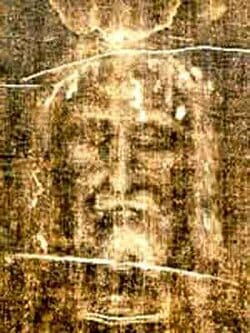
Jun 27, 2015 | Non categorizzato
 “The French magazine “Paris Match” published a long article on a very important object which can tell us something about the One we love. I read it quickly but it made a deep impression on me. During this year, since the Gen asked me, I have tried to speak about only one subject: Jesus crucified and forsaken. We want to get to know this mystery, unpack it completely. We want to see and know and understand, as far as possible, what can be thought of as the height of Jesus’s passion. The article in “Paris Match” was about studies done on a cloth – the Holy Shroud – in which Jesus’s body was wrapped when it was buried. It is kept in Turin. The studies done on this extraordinary piece of cloth lead people to think it may be truly authentic. It tells us something, indeed a great deal, about Christ when he was going through his agony up there on the cross hanging between heaven and earth. I want to speak to you about this Man, Jesus, today. I am very interested in this because it was in that body that dwelt the Soul that experienced the terrible darkness of the abandonment. The cloth, as “Paris Match” says, tells its own story: in fact the markings on the cloth tell a great deal about Christ’s holy body. It says that Jesus was a strong man and a worker: the muscles on is right arm and shoulder show this. The leg muscles show that he had walked a lot: and we know about this from the Gospel. The scourging was terrible: more than 100 lashes given in a precise order. His feet were nailed so his whole body, without any other kind of support, leant forward, being held only by the nails in his hands. The crown of thorns was not as we usually think it was. The signs of big holes in his head show that they put a whole helmet of thorns on his head. The face shows that one eye was swollen, and his face was not as bloody as the rest of his body, which confirms the meeting with Veronica which we hear about from tradition. One knee has been wounded by a heavy fall. The body had bled all over. A sword has pierced through to the heart from the base of the thorax. Pain, pain, unspeakable, unimaginable pain. Three long, eternal hours like that, without relief, without ever losing consciousness. I understood that no one in the world can say they have ever suffered like Him; and that he could say something more to anyone in the world who experiences any kind of suffering. “Why did Jesus suffer?” I was asked by a young Korean a few days ago. There is something broken between God and humankind that needs fixing. Only a price like his was able to repair it. Nowadays it seems as though the days when Christians reflected on the sufferings of Christ and followed his footsteps up to Calvary seem almost over. Certainly some practices that had become old-fashioned and emptied of meaning have been dropped, because they were no longer the expression of true love. “Women, why are you crying over me? Don’t cry over me but over yourselves” (Luke 23:28). Jesus has said this today to some Christians who don’t understand things except superficially and still go on with what seem to be pietistic sentimental practices. There are two things we need to understand before entering into the mysterious suffering of our crucified Friend, the most alive amongst those who live, for ever and ever. It is the fact that he bore all this out of love. And that we must respond to his love with our love. How can we do this? We must transform every physical suffering, whether great or small, that comes to us, into a gift to Him, so that we too, 20 centuries later, can continue his Passion for the salvation of the world. He did warn us about this in fact: “If any want to be my followers… let them take up their cross and follow me” (Mt 16:24; Mk 8:34, Lk 9:23) .” Chiara Lubich From the editorial in “Gen”, June 1970 Source: Chiara Lubich Center
“The French magazine “Paris Match” published a long article on a very important object which can tell us something about the One we love. I read it quickly but it made a deep impression on me. During this year, since the Gen asked me, I have tried to speak about only one subject: Jesus crucified and forsaken. We want to get to know this mystery, unpack it completely. We want to see and know and understand, as far as possible, what can be thought of as the height of Jesus’s passion. The article in “Paris Match” was about studies done on a cloth – the Holy Shroud – in which Jesus’s body was wrapped when it was buried. It is kept in Turin. The studies done on this extraordinary piece of cloth lead people to think it may be truly authentic. It tells us something, indeed a great deal, about Christ when he was going through his agony up there on the cross hanging between heaven and earth. I want to speak to you about this Man, Jesus, today. I am very interested in this because it was in that body that dwelt the Soul that experienced the terrible darkness of the abandonment. The cloth, as “Paris Match” says, tells its own story: in fact the markings on the cloth tell a great deal about Christ’s holy body. It says that Jesus was a strong man and a worker: the muscles on is right arm and shoulder show this. The leg muscles show that he had walked a lot: and we know about this from the Gospel. The scourging was terrible: more than 100 lashes given in a precise order. His feet were nailed so his whole body, without any other kind of support, leant forward, being held only by the nails in his hands. The crown of thorns was not as we usually think it was. The signs of big holes in his head show that they put a whole helmet of thorns on his head. The face shows that one eye was swollen, and his face was not as bloody as the rest of his body, which confirms the meeting with Veronica which we hear about from tradition. One knee has been wounded by a heavy fall. The body had bled all over. A sword has pierced through to the heart from the base of the thorax. Pain, pain, unspeakable, unimaginable pain. Three long, eternal hours like that, without relief, without ever losing consciousness. I understood that no one in the world can say they have ever suffered like Him; and that he could say something more to anyone in the world who experiences any kind of suffering. “Why did Jesus suffer?” I was asked by a young Korean a few days ago. There is something broken between God and humankind that needs fixing. Only a price like his was able to repair it. Nowadays it seems as though the days when Christians reflected on the sufferings of Christ and followed his footsteps up to Calvary seem almost over. Certainly some practices that had become old-fashioned and emptied of meaning have been dropped, because they were no longer the expression of true love. “Women, why are you crying over me? Don’t cry over me but over yourselves” (Luke 23:28). Jesus has said this today to some Christians who don’t understand things except superficially and still go on with what seem to be pietistic sentimental practices. There are two things we need to understand before entering into the mysterious suffering of our crucified Friend, the most alive amongst those who live, for ever and ever. It is the fact that he bore all this out of love. And that we must respond to his love with our love. How can we do this? We must transform every physical suffering, whether great or small, that comes to us, into a gift to Him, so that we too, 20 centuries later, can continue his Passion for the salvation of the world. He did warn us about this in fact: “If any want to be my followers… let them take up their cross and follow me” (Mt 16:24; Mk 8:34, Lk 9:23) .” Chiara Lubich From the editorial in “Gen”, June 1970 Source: Chiara Lubich Center
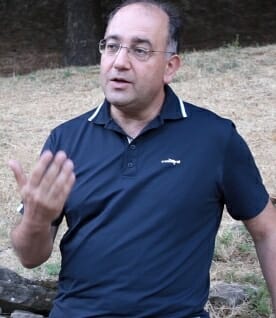
Jun 26, 2015 | Non categorizzato
published in Avvenire on 24/06/2015  The cries of many victims, of many who have been ‘discarded’, raises a question of justice which weighs heavily upon our capitalist system; a question that is all the more serious because it is no longer being seen or heard. Pope Francis is the only figure of authority on global moral issues, who due to his particular charism, is giving recognition and ear to today’s pressing ethical question (corporate social responsibility), in the face of which he is not afraid to raise radical questions (generated by his fraternal concern and love – agape ). No other ‘world organisation or body’ exists that is as free as he is from powerful economic and political forces, a freedom that not even the United Nations or the European Commission can lay claim to, let alone politicians at national level, who continue on in their practice of “selling a poor person for a pair of sandals – (Book of Amos), as indeed Italy is at risk of doing with its introduction of new gambling laws. A number of commentators, self-professed supporters of the free market economy, claim that the Encyclical Laudato si’ is opposed to it ; that not only is it a statement against modernism, but a reflection of the Pope’s own Marxist views, going almost as far as predicting a global environmental catastrophe. But far from it. In fact, it does just the opposite. Pope Francis focuses on reminding us that both markets and business enterprise are precious allies of the common good as long as they do not become the ‘only rule’; or that the ‘part’ (the market) does not try to become the whole (life itself). The global market is a necessary part of the life of society which contributes to the common good (there are many examples quoted of responsible business owners and technology being used at the serving of the economy and providing employment). However, it is not the full story, nor the most important. Pope Francis also seeks to remind all participants of the global economy of their vocation to reciprocity and “mutual benefit“. It is on this basis that he criticises companies who exploit (all too often) people and land; by doing so, they negate the very nature of what the global economy is supposed to be, increasing their wealth at the expense of impoverishing other weaker players.
The cries of many victims, of many who have been ‘discarded’, raises a question of justice which weighs heavily upon our capitalist system; a question that is all the more serious because it is no longer being seen or heard. Pope Francis is the only figure of authority on global moral issues, who due to his particular charism, is giving recognition and ear to today’s pressing ethical question (corporate social responsibility), in the face of which he is not afraid to raise radical questions (generated by his fraternal concern and love – agape ). No other ‘world organisation or body’ exists that is as free as he is from powerful economic and political forces, a freedom that not even the United Nations or the European Commission can lay claim to, let alone politicians at national level, who continue on in their practice of “selling a poor person for a pair of sandals – (Book of Amos), as indeed Italy is at risk of doing with its introduction of new gambling laws. A number of commentators, self-professed supporters of the free market economy, claim that the Encyclical Laudato si’ is opposed to it ; that not only is it a statement against modernism, but a reflection of the Pope’s own Marxist views, going almost as far as predicting a global environmental catastrophe. But far from it. In fact, it does just the opposite. Pope Francis focuses on reminding us that both markets and business enterprise are precious allies of the common good as long as they do not become the ‘only rule’; or that the ‘part’ (the market) does not try to become the whole (life itself). The global market is a necessary part of the life of society which contributes to the common good (there are many examples quoted of responsible business owners and technology being used at the serving of the economy and providing employment). However, it is not the full story, nor the most important. Pope Francis also seeks to remind all participants of the global economy of their vocation to reciprocity and “mutual benefit“. It is on this basis that he criticises companies who exploit (all too often) people and land; by doing so, they negate the very nature of what the global economy is supposed to be, increasing their wealth at the expense of impoverishing other weaker players.  On a second level, Pope Francis raises an issue that has been systematically neglected: the notion of “efficiency“, globalization’s new “in-word”, as being solely about technology and therefore ethically neutral, cannot be upheld (34). The calculation of cost-benefits (cost justifications), which underpin every ‘rational’ decision by companies and public administration, depends precisely upon what we choose to include in the costs and perceive in the benefits. For decades we have considered companies ‘efficient’ who neglected to include in their costs any damage done to the sea, rivers or atmosphere. The Pope invites us to enlarge our calculations to all types of species, including them as part of our cosmic fraternity, extending this reciprocity to all creatures, giving them a voice in our economic and political budgets. But there is still a third level. Even after acknowledging “mutual benefit ” as the fundamental law of civil society, extending it to include our relationship with all living species and with the earth, it cannot and must not be regarded as the only law in respect of life. Though important, it is not all there is. Indian economist and philosopher Amartya Sen, refers also to “duties of power“. We have a responsibility towards creation because technology is new form of power, the outcome of which can have unilaterally serious consequences for other living creatures to which we are all linked. The universe is filled with living things and this calls for responsibility. Moreover, there are times when moral duties come before benefits; the concept of “mutual benefit” does not cover the full spectrum of responsibility and justice. Even the best market, if it becomes the only criteria, may grow into a monster. There is no economic logic that convinces us to leave forests intact for those to come in thousands of years’ time, and yet we have moral obligations towards the future generations who will inherit and inhabit our earth. The question of ‘ecological debt‘ (51), is one of the most significant and most prophetic passages of the whole Encyclical. The widespread indiscriminate accumulation of national debt can bring entire nations to their knees (as in the case of Greece), and hold many others to ransom. Much aggression is used in the name of debt and credit. Yet a great ‘ecological debt‘ exists between North and South, between the 10% of humanity which has increased its wealth, whilst burdening everyone with the cost to the atmosphere, and continuing to contribute to “climate change”. The term “climate change” is itself misleading, as it is ethically neutral. The Pope, instead, speaks of “pollution” and the deterioration of that common good which is our climate (23). Climate deterioration contributes to the desertification of entire regions, having a direct impact on poverty, causing deaths and the migration of peoples (25). It is this ‘debt of ecology and justice’ that we fail to take into account when we close our borders to the many thousands who arrive because we have burned their houses as a result of our actions. This ecological debt seems to count for nothing in the political world order, there is no Troika to condemn one country for polluting or causing the desertification of another country and so the ‘ecological debt‘ to which the great and the powerful are increasingly indifferent, continues to rise. Lastly, a word of advice, to whoever has yet to read this wonderful encyclical, do not be tempted to read it sitting at your desk or relaxing on the sofa. Go out into the middle of a field or into the woods, to begin your meditation on this canticle of Pope Francis. The earth he speaks of is real and tangible, filled with the sights, sounds and scents of an earth that is loved. Then, go to a poor area on the margins of society, to conclude your reading, surrounded by poor people, and look at the world with its rich and greedy living, with poor beggars on its doorstep and embrace at least one of them, like Pope Francis. It is from such places as these that we will learn once again to be ‘in awe‘ (11) of the marvels of the earth and of fellow human beings. Perhaps then we will understand and pray the words “Praise be to you“.
On a second level, Pope Francis raises an issue that has been systematically neglected: the notion of “efficiency“, globalization’s new “in-word”, as being solely about technology and therefore ethically neutral, cannot be upheld (34). The calculation of cost-benefits (cost justifications), which underpin every ‘rational’ decision by companies and public administration, depends precisely upon what we choose to include in the costs and perceive in the benefits. For decades we have considered companies ‘efficient’ who neglected to include in their costs any damage done to the sea, rivers or atmosphere. The Pope invites us to enlarge our calculations to all types of species, including them as part of our cosmic fraternity, extending this reciprocity to all creatures, giving them a voice in our economic and political budgets. But there is still a third level. Even after acknowledging “mutual benefit ” as the fundamental law of civil society, extending it to include our relationship with all living species and with the earth, it cannot and must not be regarded as the only law in respect of life. Though important, it is not all there is. Indian economist and philosopher Amartya Sen, refers also to “duties of power“. We have a responsibility towards creation because technology is new form of power, the outcome of which can have unilaterally serious consequences for other living creatures to which we are all linked. The universe is filled with living things and this calls for responsibility. Moreover, there are times when moral duties come before benefits; the concept of “mutual benefit” does not cover the full spectrum of responsibility and justice. Even the best market, if it becomes the only criteria, may grow into a monster. There is no economic logic that convinces us to leave forests intact for those to come in thousands of years’ time, and yet we have moral obligations towards the future generations who will inherit and inhabit our earth. The question of ‘ecological debt‘ (51), is one of the most significant and most prophetic passages of the whole Encyclical. The widespread indiscriminate accumulation of national debt can bring entire nations to their knees (as in the case of Greece), and hold many others to ransom. Much aggression is used in the name of debt and credit. Yet a great ‘ecological debt‘ exists between North and South, between the 10% of humanity which has increased its wealth, whilst burdening everyone with the cost to the atmosphere, and continuing to contribute to “climate change”. The term “climate change” is itself misleading, as it is ethically neutral. The Pope, instead, speaks of “pollution” and the deterioration of that common good which is our climate (23). Climate deterioration contributes to the desertification of entire regions, having a direct impact on poverty, causing deaths and the migration of peoples (25). It is this ‘debt of ecology and justice’ that we fail to take into account when we close our borders to the many thousands who arrive because we have burned their houses as a result of our actions. This ecological debt seems to count for nothing in the political world order, there is no Troika to condemn one country for polluting or causing the desertification of another country and so the ‘ecological debt‘ to which the great and the powerful are increasingly indifferent, continues to rise. Lastly, a word of advice, to whoever has yet to read this wonderful encyclical, do not be tempted to read it sitting at your desk or relaxing on the sofa. Go out into the middle of a field or into the woods, to begin your meditation on this canticle of Pope Francis. The earth he speaks of is real and tangible, filled with the sights, sounds and scents of an earth that is loved. Then, go to a poor area on the margins of society, to conclude your reading, surrounded by poor people, and look at the world with its rich and greedy living, with poor beggars on its doorstep and embrace at least one of them, like Pope Francis. It is from such places as these that we will learn once again to be ‘in awe‘ (11) of the marvels of the earth and of fellow human beings. Perhaps then we will understand and pray the words “Praise be to you“.
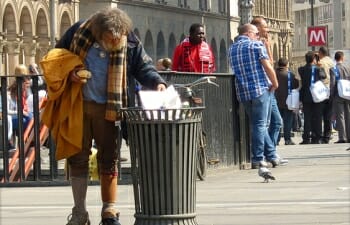
Jun 26, 2015 | Non categorizzato
 Sobriety “Every morning, before taking the bus, I walk part of the way on foot and am often drawn by the same scene: men and women, children and elderly, dressed with dignity, all equipped with shopping carts and rods, fishing for a bit of everything from the rubbish bins. They teach me something in their own way. As a Christian, I try to remain attentive to what is essential and to avoid waste: to opt for sobriety, recycling, answering with a firm ‘no’ every time consumerism tempts me with its offerings.” (Emilie – Italy) The Grandmother “’Love your enemies.’ This sentence from the Gospel shocked me because – thinking about it – I also have an enemy: the Grandmother whom my family hasn’t visited in because of old misunderstandings. When I heard that she wasn’t well, I thought I would go to visit her. My parents were amazed that I had suddenly remembered her. They didn’t feel like going after so many years, but I wanted to be able to see her. When I went into her home, everyone looked at me amazed and treated me with coldness. It wasn’t easy, but I stepped up. Grandmother was not at all well. She was dozing, but when she awoke, I was able to say hello, and she embraced me. “You’re my grandson, I know you. I’m happy, happy. . . We both wept for joy. When I returned home, I convinced my parents, and we went back altogether to visit her. It was a very emotional moment! Not even a week later, Grandmother left us for Heaaven.” (S. A. – Pakistan) It was me “We were in the countryside. There was a little boy next door, named Tino who was living in a difficult environment; perhaps for this reason he is so violent towards our Andrea. One afternoon, I found Andrea’s new bicycle broken. Losing patience, I wanted to know who it had been. Shortly afterwards Andrea came in, downcast and dejected. ‘Mamma, I broke the bicycle.’ Greatly surprised, I had to shout at him before I forgave him. The next day, when we were alone talking, the boy confessed: “You know, Mamma, it was Tino who broke the bicycle. But you were so angry yesterday that I was frightened for him. They’re always shouting at him in his house. . .’”(I.P. – Brazil)
Sobriety “Every morning, before taking the bus, I walk part of the way on foot and am often drawn by the same scene: men and women, children and elderly, dressed with dignity, all equipped with shopping carts and rods, fishing for a bit of everything from the rubbish bins. They teach me something in their own way. As a Christian, I try to remain attentive to what is essential and to avoid waste: to opt for sobriety, recycling, answering with a firm ‘no’ every time consumerism tempts me with its offerings.” (Emilie – Italy) The Grandmother “’Love your enemies.’ This sentence from the Gospel shocked me because – thinking about it – I also have an enemy: the Grandmother whom my family hasn’t visited in because of old misunderstandings. When I heard that she wasn’t well, I thought I would go to visit her. My parents were amazed that I had suddenly remembered her. They didn’t feel like going after so many years, but I wanted to be able to see her. When I went into her home, everyone looked at me amazed and treated me with coldness. It wasn’t easy, but I stepped up. Grandmother was not at all well. She was dozing, but when she awoke, I was able to say hello, and she embraced me. “You’re my grandson, I know you. I’m happy, happy. . . We both wept for joy. When I returned home, I convinced my parents, and we went back altogether to visit her. It was a very emotional moment! Not even a week later, Grandmother left us for Heaaven.” (S. A. – Pakistan) It was me “We were in the countryside. There was a little boy next door, named Tino who was living in a difficult environment; perhaps for this reason he is so violent towards our Andrea. One afternoon, I found Andrea’s new bicycle broken. Losing patience, I wanted to know who it had been. Shortly afterwards Andrea came in, downcast and dejected. ‘Mamma, I broke the bicycle.’ Greatly surprised, I had to shout at him before I forgave him. The next day, when we were alone talking, the boy confessed: “You know, Mamma, it was Tino who broke the bicycle. But you were so angry yesterday that I was frightened for him. They’re always shouting at him in his house. . .’”(I.P. – Brazil)
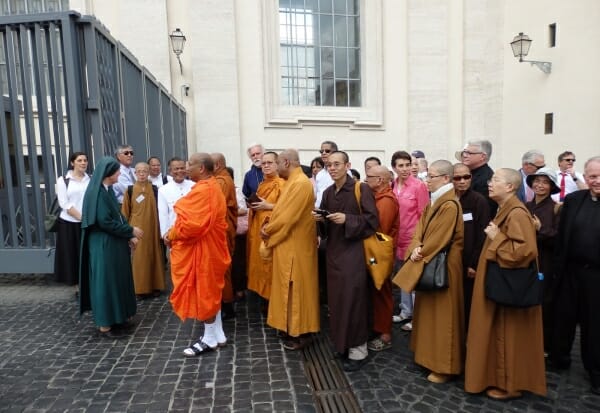
Jun 25, 2015 | Focolare Worldwide
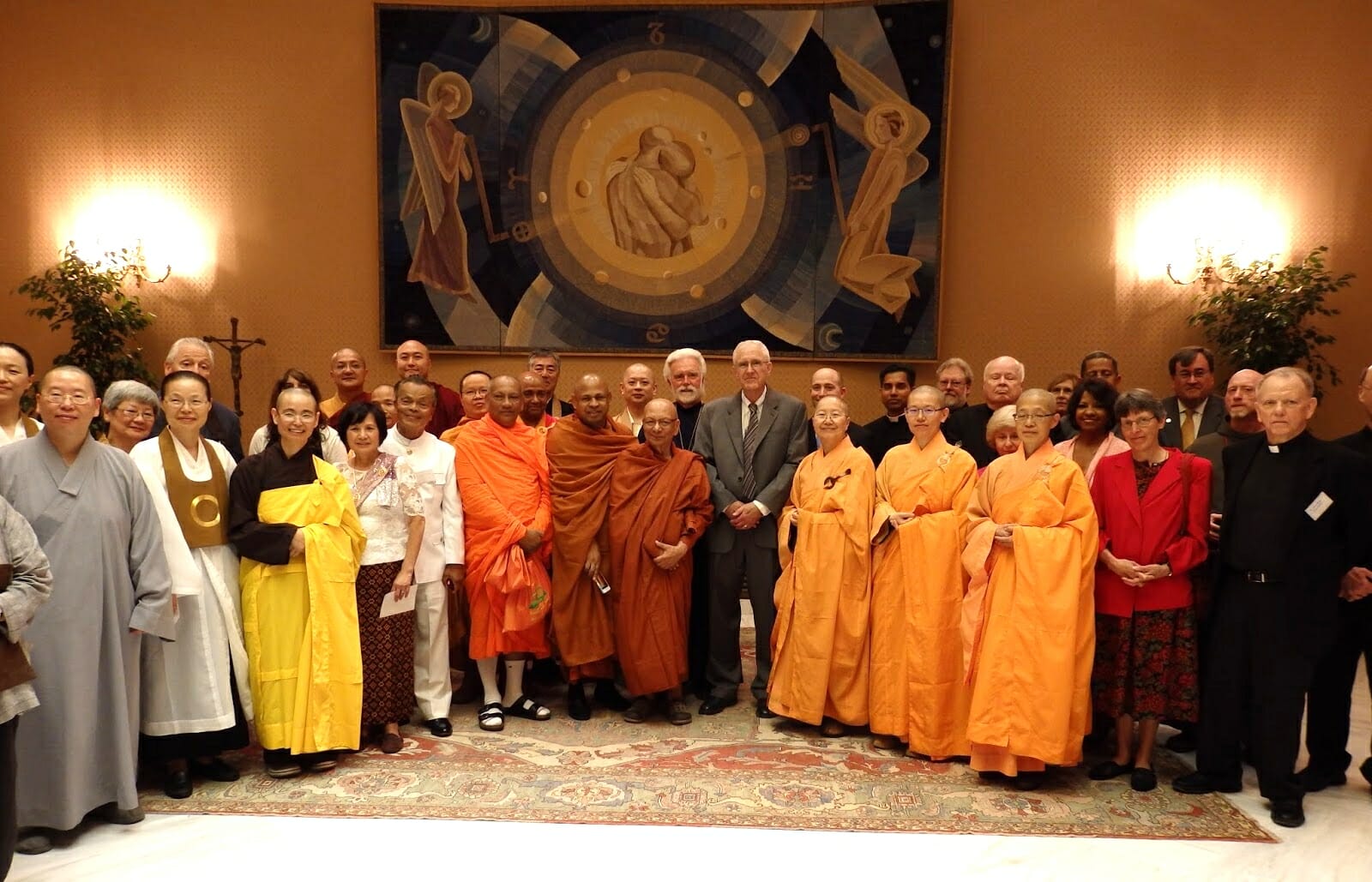 Buddhists and Catholics from the United States are holding an interreligious dialogue meeting for the first time near Rome this week, focused on the themes of ‘Suffering, Liberation and Fraternity’. The five day meeting, which opened on Tuesday at the headquarters of the Focolare Movement in Castelgandolfo, Italy, includes 46 Buddhist and Catholic participants from New York, Chicago, San Francisco, Los Angeles and Washington D.C. In an opening address to the group, which will meet with Pope Francis on Wednesday, the president of the Pontifical Council for Interreligious Dialogue, Cardinal Jean-Louis Tauran said “in a world where diversity is seen as a threat”, the encounter is “a sign of our openness towards one another and our commitment to human fraternity”. “We are all pilgrims”, he stressed, adding that the dialogue between Buddhists and Catholics is part of “our ongoing quest to grasp the mystery of our lives and the ultimate Truth”. To find out more about this dialogue, jointly sponsored by the PCID and the U.S. Bishops’ Committee for Ecumenical and Interreligious Affairs, Philippa Hitchen spoke to one of the Catholic participants, Fr Leo Lefebure, a theology professor at the Jesuit Georgetown University. Listen to audio recording Buddhists and Catholics from the United States are taking part in a meeting for the first time this week, focused on the themes of ‘Suffering, Liberation and Fraternity’. The five day event, which opened today (Tuesday) at the headquarters of the Focolare movement in Castelgandolfo, includes 46 Buddhist and Catholic participants from New York, Chicago, San Francisco, Los Angeles and Washington DC. In his opening address to the group, which will meet with Pope Francis on Wednesday, the president of the Pontifical Council for Interreligious Dialogue (PCID) Cardinal Jean-Louis Tauran said: “in a world where diversity is seen as a threat”, the encounter is “a sign of our openness towards one another and our commitment to human fraternity.” “We are all pilgrims”, he stressed, adding that the dialogue between Buddhists and Catholics is part of “our ongoing quest to grasp the mystery of our lives and the ultimate Truth”. The meeting is jointly sponsored by the PCID and the US Bishops’ Committee for Ecumenical and Interreligious Affairs. In an interview with Philippa Hitchens on Vatican Radio, one of the participants, Fr Leo Lefebure SJ, a theology professor at Georgetown University said the PCID asked the US Conference of Catholic Bishops to begin a new series of conversations focused on the theme of ‘Be friends and help the world’ so the dialogue will explore beliefs and ideas that “resonate across both traditions”, especially the concepts of ‘suffering and the end of suffering’.
Buddhists and Catholics from the United States are holding an interreligious dialogue meeting for the first time near Rome this week, focused on the themes of ‘Suffering, Liberation and Fraternity’. The five day meeting, which opened on Tuesday at the headquarters of the Focolare Movement in Castelgandolfo, Italy, includes 46 Buddhist and Catholic participants from New York, Chicago, San Francisco, Los Angeles and Washington D.C. In an opening address to the group, which will meet with Pope Francis on Wednesday, the president of the Pontifical Council for Interreligious Dialogue, Cardinal Jean-Louis Tauran said “in a world where diversity is seen as a threat”, the encounter is “a sign of our openness towards one another and our commitment to human fraternity”. “We are all pilgrims”, he stressed, adding that the dialogue between Buddhists and Catholics is part of “our ongoing quest to grasp the mystery of our lives and the ultimate Truth”. To find out more about this dialogue, jointly sponsored by the PCID and the U.S. Bishops’ Committee for Ecumenical and Interreligious Affairs, Philippa Hitchen spoke to one of the Catholic participants, Fr Leo Lefebure, a theology professor at the Jesuit Georgetown University. Listen to audio recording Buddhists and Catholics from the United States are taking part in a meeting for the first time this week, focused on the themes of ‘Suffering, Liberation and Fraternity’. The five day event, which opened today (Tuesday) at the headquarters of the Focolare movement in Castelgandolfo, includes 46 Buddhist and Catholic participants from New York, Chicago, San Francisco, Los Angeles and Washington DC. In his opening address to the group, which will meet with Pope Francis on Wednesday, the president of the Pontifical Council for Interreligious Dialogue (PCID) Cardinal Jean-Louis Tauran said: “in a world where diversity is seen as a threat”, the encounter is “a sign of our openness towards one another and our commitment to human fraternity.” “We are all pilgrims”, he stressed, adding that the dialogue between Buddhists and Catholics is part of “our ongoing quest to grasp the mystery of our lives and the ultimate Truth”. The meeting is jointly sponsored by the PCID and the US Bishops’ Committee for Ecumenical and Interreligious Affairs. In an interview with Philippa Hitchens on Vatican Radio, one of the participants, Fr Leo Lefebure SJ, a theology professor at Georgetown University said the PCID asked the US Conference of Catholic Bishops to begin a new series of conversations focused on the theme of ‘Be friends and help the world’ so the dialogue will explore beliefs and ideas that “resonate across both traditions”, especially the concepts of ‘suffering and the end of suffering’.  He noted that the basic values and virtues of Buddhists and Catholics “converge to a great degree” and there is a long history in the United States of leaders of both traditions coming together to oppose violence and work towards peaceful transformation of conflict. Fr Leo says that every major urban area in the US has large immigrant populations from Asia, so part of the Buddhist population is made up of these people. Another part includes people who have converted from other faiths, especially from Judaism and Christianity. What is sometimes controversial, he notes, is that some see themselves as ‘practitioners of both their religion of origin and some form of Buddhist tradition’. But many Catholics, he says, find their faith much enhanced by practices such as meditation – in a survey of Christians in the US who engage in some form of meditation, he says most found their own faith experience ‘profoundly deepened’ by these practices… Fr Leo says it was very significant that this meeting is taking place in the year that we mark the 50th anniversary of Nostra Aetate, the document that for the first time described Buddhism and said the Catholic Church “rejects nothing of what is true and holy” in these traditions, “implying there are things we can learn from them.” Source Vatican Radio
He noted that the basic values and virtues of Buddhists and Catholics “converge to a great degree” and there is a long history in the United States of leaders of both traditions coming together to oppose violence and work towards peaceful transformation of conflict. Fr Leo says that every major urban area in the US has large immigrant populations from Asia, so part of the Buddhist population is made up of these people. Another part includes people who have converted from other faiths, especially from Judaism and Christianity. What is sometimes controversial, he notes, is that some see themselves as ‘practitioners of both their religion of origin and some form of Buddhist tradition’. But many Catholics, he says, find their faith much enhanced by practices such as meditation – in a survey of Christians in the US who engage in some form of meditation, he says most found their own faith experience ‘profoundly deepened’ by these practices… Fr Leo says it was very significant that this meeting is taking place in the year that we mark the 50th anniversary of Nostra Aetate, the document that for the first time described Buddhism and said the Catholic Church “rejects nothing of what is true and holy” in these traditions, “implying there are things we can learn from them.” Source Vatican Radio
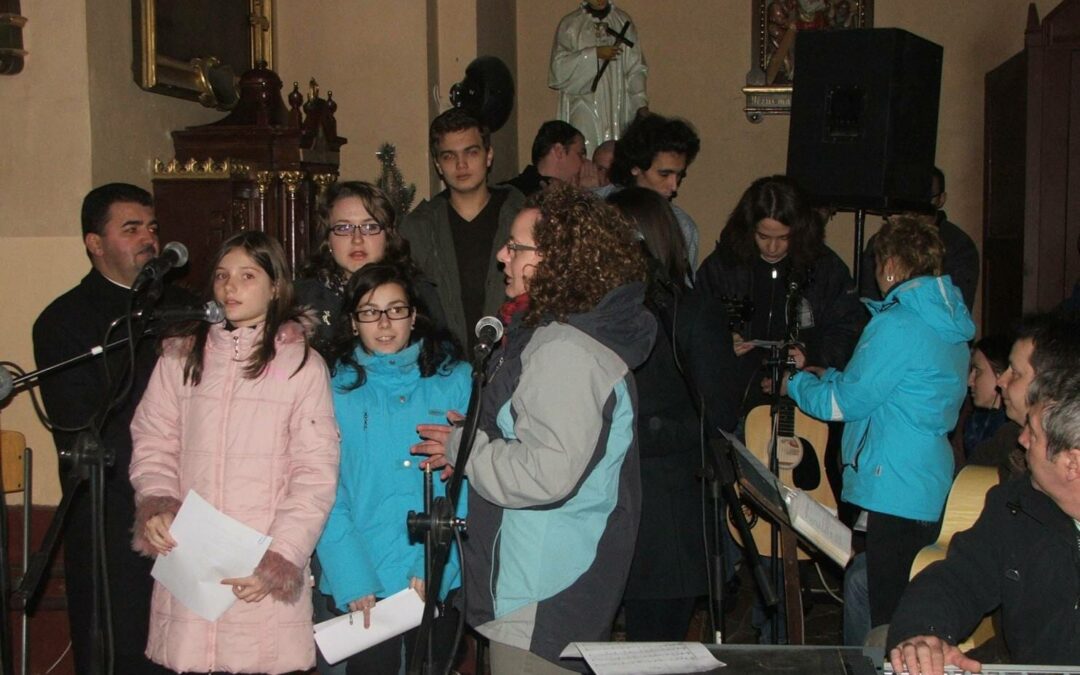
Jun 25, 2015 | Non categorizzato
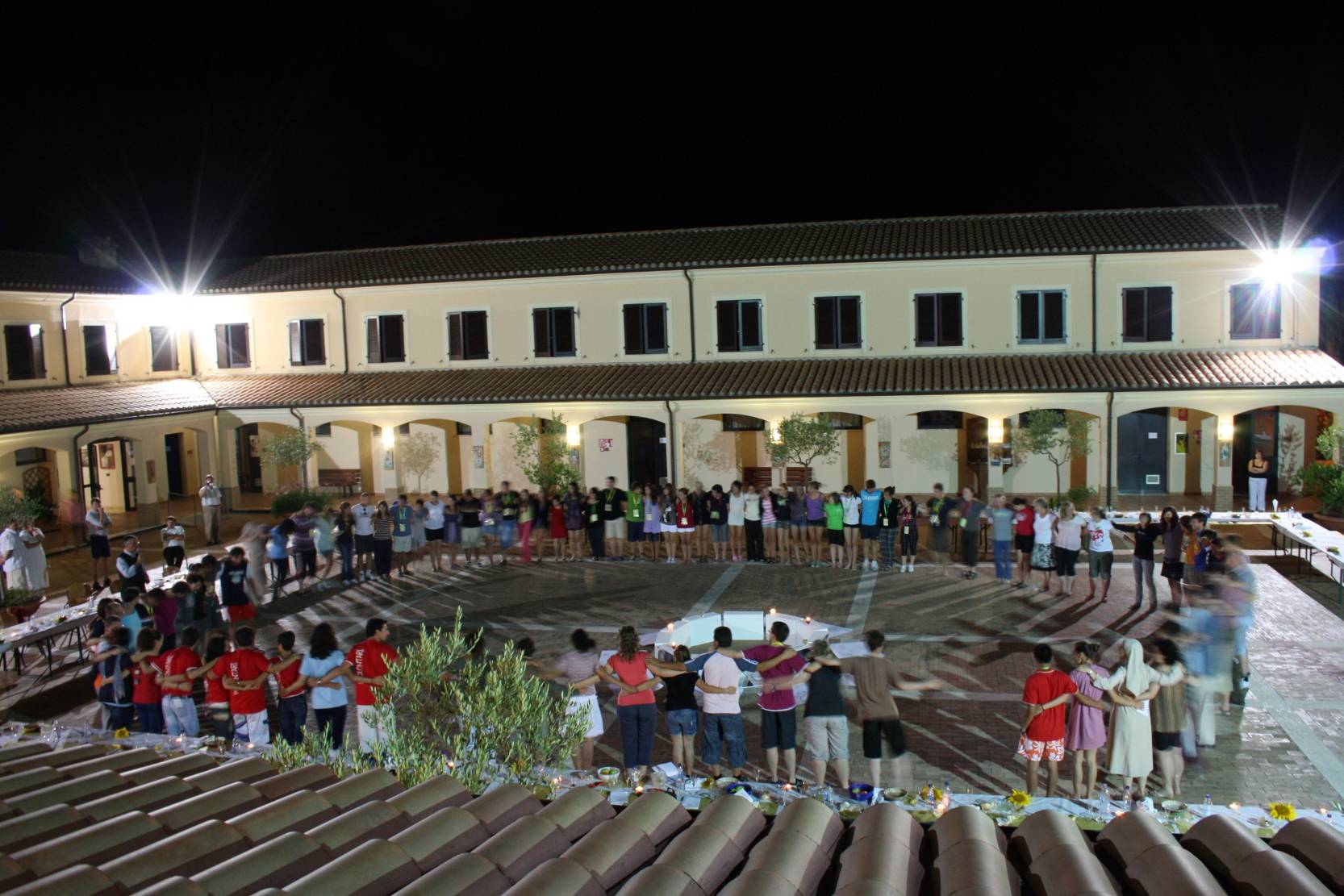 “The Bishop had assigned me to work in the council for ecumenism and dialogue. Fifteen years ago, when a priest-friend of mine from the nearby diocese of Fano came up with the proposal of an inter-diocesan project to promote Ecumenical Twinning between European parishes, I had said no.“As Fr. Giorgio Paolini recounts, this hesitation was soon resolved when he recalled that in London in 1996, Chiara Lubich launched an invitation to live an “ecumenism of the people,” an “ecumenism of life” (video). “So I resumed my contacts with my friend from Fano and together with other priest-friends we threw ourselves into the ecumenical twinning experience.” The first parish they contacted was the Orthodox parish of Fr Nicu in Romania. «The fraternal relationship among us generated an educational cooperation between the youth of the Diocesan Movement of the Marche region and his youth, and which spread out in concentric rings with the sharing of the Word of Life and the spirituality of unity between the Catholic and Orthodox youth through frequent meetings. The two important yearly meetings each year were held at Christmas in Rumania and in summer in Italy Then came the annual experience of the Ecumenical Youth Meeting in Loreto, organised together with the Head of the John Paul II Centre of Montorso (Loreto), who had proposed the creation of an ecumenical camp with all the youth contacted through the ecumenical twinning, but also open to all, to allow us to share the mutual wealth of our churches of origin. This year, from 29 July to 4 August, the seventh edition will take place and which foresees the participation of over 200 Orthodox and Greek Catholic youth from Rumania, Lutherans from Denmark and Sweden, Anglicans from England and Catholics from Italy.”
“The Bishop had assigned me to work in the council for ecumenism and dialogue. Fifteen years ago, when a priest-friend of mine from the nearby diocese of Fano came up with the proposal of an inter-diocesan project to promote Ecumenical Twinning between European parishes, I had said no.“As Fr. Giorgio Paolini recounts, this hesitation was soon resolved when he recalled that in London in 1996, Chiara Lubich launched an invitation to live an “ecumenism of the people,” an “ecumenism of life” (video). “So I resumed my contacts with my friend from Fano and together with other priest-friends we threw ourselves into the ecumenical twinning experience.” The first parish they contacted was the Orthodox parish of Fr Nicu in Romania. «The fraternal relationship among us generated an educational cooperation between the youth of the Diocesan Movement of the Marche region and his youth, and which spread out in concentric rings with the sharing of the Word of Life and the spirituality of unity between the Catholic and Orthodox youth through frequent meetings. The two important yearly meetings each year were held at Christmas in Rumania and in summer in Italy Then came the annual experience of the Ecumenical Youth Meeting in Loreto, organised together with the Head of the John Paul II Centre of Montorso (Loreto), who had proposed the creation of an ecumenical camp with all the youth contacted through the ecumenical twinning, but also open to all, to allow us to share the mutual wealth of our churches of origin. This year, from 29 July to 4 August, the seventh edition will take place and which foresees the participation of over 200 Orthodox and Greek Catholic youth from Rumania, Lutherans from Denmark and Sweden, Anglicans from England and Catholics from Italy.” 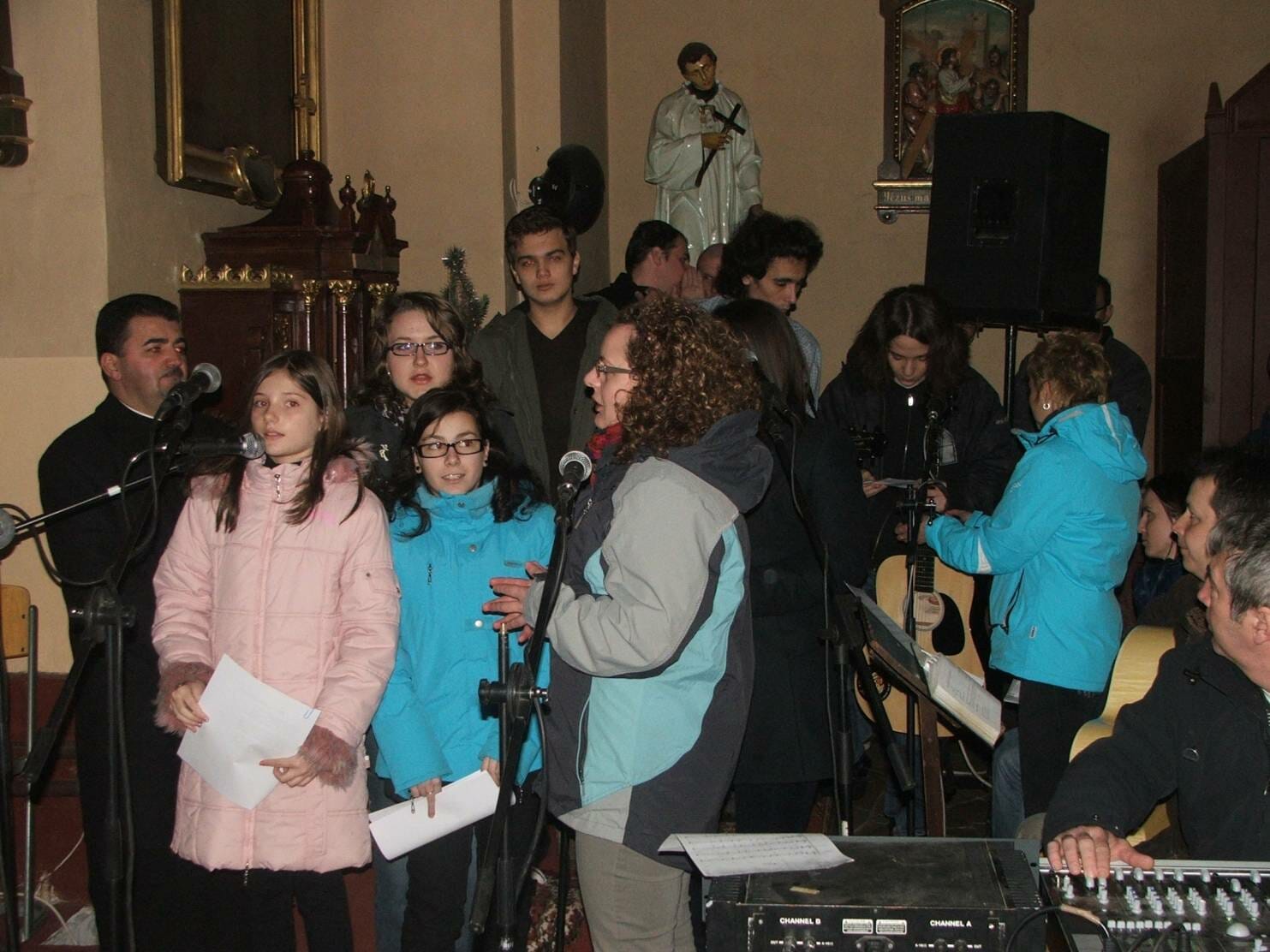 Lastly, the promotion of the “culture of dialogue” among the youth. In January this year, during the Week of Prayer for Unity of Christians, for example, the parish of Borgo Santa Maria hosted around 20 Rumanian boys and girls of a parish it is twinned with. Together with the Italian youth of the Ecumenical Meeting, they then met with the students of four high schools in the provinces of Pesaro and Urbino. Barbara, spokesperson for a family of the parish continued with the story: “In a world oppressed by wars, divisions and terrorism, these boys and girls wished to propose and offer a message of joy and hope, and certainly a new culture of relationships and encounter that help us to comprehend that in the diversity of others we can discover that richness which brings unity and not division. After watching a film and listening to the testimonials of the youth, the Ecumenical Meeting broke up into groups to get to know the Romanian youth better, through a question-and-answer session. Despite language difficulties they did their best to communicate with one another. As a family we participated in these meetings as observers, but we feel that we have to thank all those who believed in this project, and continue to do so. I thank the parish priests and the Deans of the high schools, but above all God, who in his immense love made us come across such youth, motivated and determined to change things. They can count on our support and we have faith that they will be able to involve more and more young people, and create a better world where all can live in peace and harmony.”
Lastly, the promotion of the “culture of dialogue” among the youth. In January this year, during the Week of Prayer for Unity of Christians, for example, the parish of Borgo Santa Maria hosted around 20 Rumanian boys and girls of a parish it is twinned with. Together with the Italian youth of the Ecumenical Meeting, they then met with the students of four high schools in the provinces of Pesaro and Urbino. Barbara, spokesperson for a family of the parish continued with the story: “In a world oppressed by wars, divisions and terrorism, these boys and girls wished to propose and offer a message of joy and hope, and certainly a new culture of relationships and encounter that help us to comprehend that in the diversity of others we can discover that richness which brings unity and not division. After watching a film and listening to the testimonials of the youth, the Ecumenical Meeting broke up into groups to get to know the Romanian youth better, through a question-and-answer session. Despite language difficulties they did their best to communicate with one another. As a family we participated in these meetings as observers, but we feel that we have to thank all those who believed in this project, and continue to do so. I thank the parish priests and the Deans of the high schools, but above all God, who in his immense love made us come across such youth, motivated and determined to change things. They can count on our support and we have faith that they will be able to involve more and more young people, and create a better world where all can live in peace and harmony.”

Jun 24, 2015 | Non categorizzato
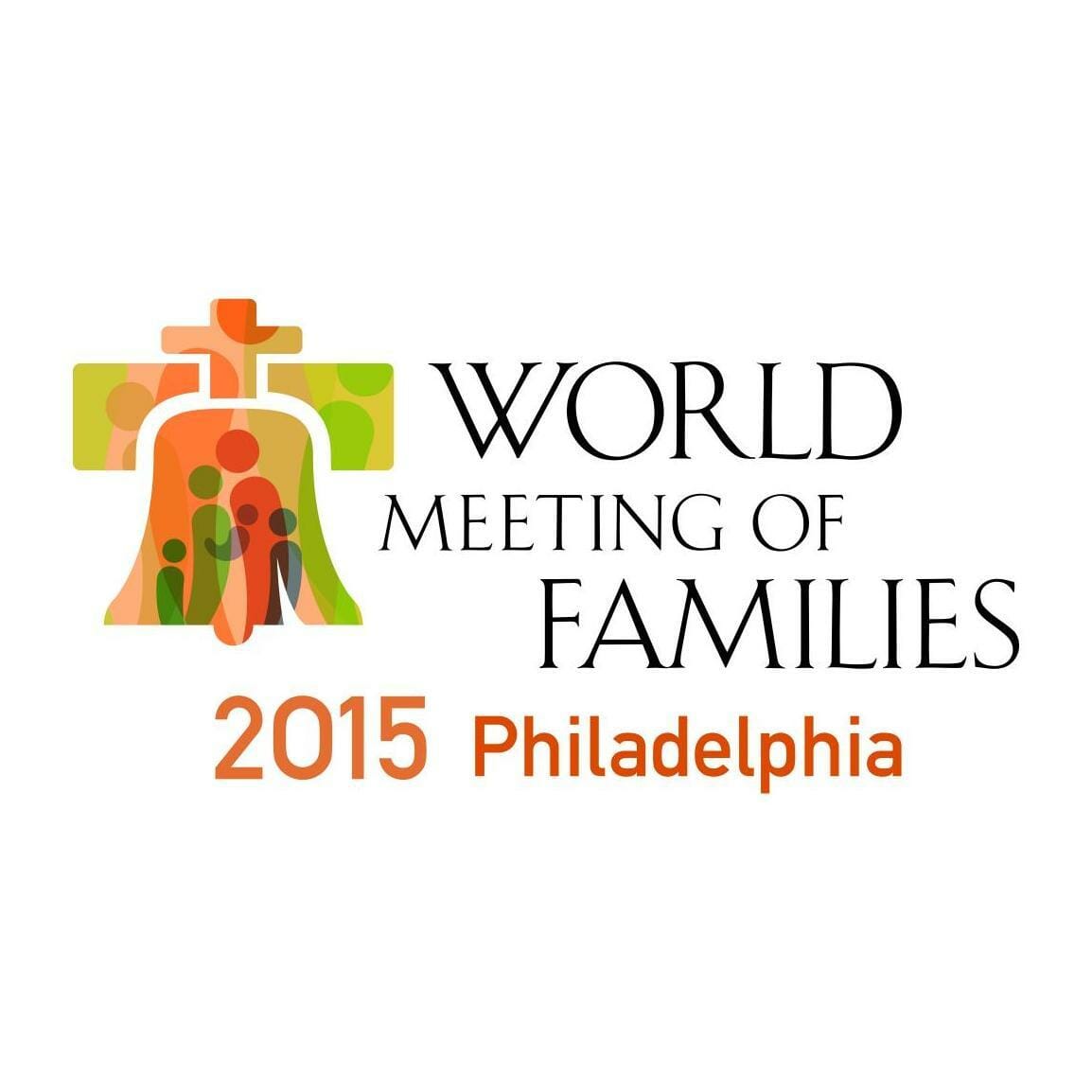 Love is our mission: This is the title of the 8th World Meeting of Families (WMOF), which will begin with a Congress (from September 22nd to 25th) held by experts from all over the world and which will take place at the Pennsylvania Convention Center, a structure which can hold up to 50,000 people. In the meantime, Pope Francis will travel to the headquarters of the UN in New York City and to that of the U.S. Congress in Washington, D.C., having been invited, for the first time in his pontificate, to speak in such important civil locations. The Holy Father will arrive on the stage of the WMOF, which will be set up on the spectacular stairs of the Philadelphia Museum of Art, on Saturday, September 26th. With this evocative backdrop, he will meet with families from all over the world, in a sequence of life experiences interposed with performances by international artists: a Festival-Testimonial which will be shown on TV worldwide and will culminate with the words of the Pope. The WMOF will conclude the following day, Sunday September 27th, with the solemn Eucharistic celebration, at which the pope will preside. More than one million people are expected to participate. Besides the numerous families of the Focolare from all over America, Marly and Hans-Peter Stasch from the International Office of New Families, and Anna and Alberto Friso, members of the Pontifical Council for the Family, will participate at the event.
Love is our mission: This is the title of the 8th World Meeting of Families (WMOF), which will begin with a Congress (from September 22nd to 25th) held by experts from all over the world and which will take place at the Pennsylvania Convention Center, a structure which can hold up to 50,000 people. In the meantime, Pope Francis will travel to the headquarters of the UN in New York City and to that of the U.S. Congress in Washington, D.C., having been invited, for the first time in his pontificate, to speak in such important civil locations. The Holy Father will arrive on the stage of the WMOF, which will be set up on the spectacular stairs of the Philadelphia Museum of Art, on Saturday, September 26th. With this evocative backdrop, he will meet with families from all over the world, in a sequence of life experiences interposed with performances by international artists: a Festival-Testimonial which will be shown on TV worldwide and will culminate with the words of the Pope. The WMOF will conclude the following day, Sunday September 27th, with the solemn Eucharistic celebration, at which the pope will preside. More than one million people are expected to participate. Besides the numerous families of the Focolare from all over America, Marly and Hans-Peter Stasch from the International Office of New Families, and Anna and Alberto Friso, members of the Pontifical Council for the Family, will participate at the event.
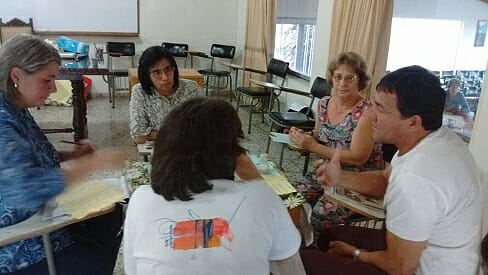
Jun 24, 2015 | Non categorizzato
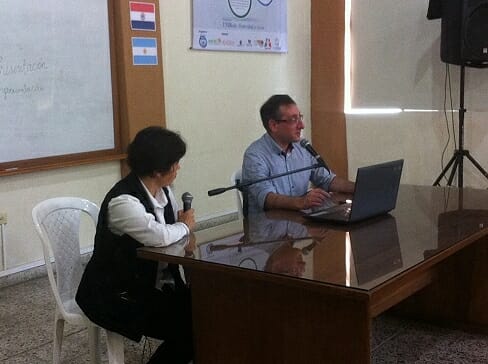 In 2013 the Colombian city of Medellín, with its 2.4 million inhabitants, was recognised as the city that achieved the most rapid modernisation process in the world, also due to the developments undertaken over the last years, like for example, the drop in carbon dioxide emissions, creation of cultural areas, and reduced criminality. The Mundo Mejor Foundation operates in Medellin and due to this was chosen as the seat of the 3rd UNIRedes Seminar, that was held from 3 – 7 June. There were representatives of over 30 organisations from Brazil, Mexico, Argentina, Bolivia, Paraguay, Venezuela and Colombia, with the addition of other 10 countries that participated via streaming. During this seminar the various social organisations inspired by the spirituality of unity accepted the challenge to strengthen their joint efforts. Anabel Abascal, member of the Coordinating Committee affirmed: “As social associations members of the UNIRedes believe that, in society today, working within a network is the only way in which we can call attention to universal fraternity which is our source of inspiration.” The discussions of the four-day meeting revolved around the tools available to be able to best respond, with daily work, to the great social challenges. Susana Nuín, of the Episcopal Conference of Latin America (CELAM) illustrated the Regional Church’s viewpoint, by presenting the 4-crossroads for social intervention: care of nature, building of peace, migration and social justice. An Italian Professor, Giuseppe Milan, expounded on intercultural pedagogy based on the spirituality of Chiara Lubich – a pedagogy that recognises and takes upon itself the sufferings and needs present in social diversity. Milan affirmed: “The principle of education is fraternity, education of universal-men who centre on dialogue to build new societies. The methodology is the art of loving. Accepting all and respecting the different cultures.” The other themes undertaken were related to the institutional consolidation of the organisations and network management. To this end, Francesco Tortorella of AMU (Action for a United World), explained how the projects are designed, starting from the funding phase up to direct participation of the protagonists.
In 2013 the Colombian city of Medellín, with its 2.4 million inhabitants, was recognised as the city that achieved the most rapid modernisation process in the world, also due to the developments undertaken over the last years, like for example, the drop in carbon dioxide emissions, creation of cultural areas, and reduced criminality. The Mundo Mejor Foundation operates in Medellin and due to this was chosen as the seat of the 3rd UNIRedes Seminar, that was held from 3 – 7 June. There were representatives of over 30 organisations from Brazil, Mexico, Argentina, Bolivia, Paraguay, Venezuela and Colombia, with the addition of other 10 countries that participated via streaming. During this seminar the various social organisations inspired by the spirituality of unity accepted the challenge to strengthen their joint efforts. Anabel Abascal, member of the Coordinating Committee affirmed: “As social associations members of the UNIRedes believe that, in society today, working within a network is the only way in which we can call attention to universal fraternity which is our source of inspiration.” The discussions of the four-day meeting revolved around the tools available to be able to best respond, with daily work, to the great social challenges. Susana Nuín, of the Episcopal Conference of Latin America (CELAM) illustrated the Regional Church’s viewpoint, by presenting the 4-crossroads for social intervention: care of nature, building of peace, migration and social justice. An Italian Professor, Giuseppe Milan, expounded on intercultural pedagogy based on the spirituality of Chiara Lubich – a pedagogy that recognises and takes upon itself the sufferings and needs present in social diversity. Milan affirmed: “The principle of education is fraternity, education of universal-men who centre on dialogue to build new societies. The methodology is the art of loving. Accepting all and respecting the different cultures.” The other themes undertaken were related to the institutional consolidation of the organisations and network management. To this end, Francesco Tortorella of AMU (Action for a United World), explained how the projects are designed, starting from the funding phase up to direct participation of the protagonists.  To conclude, the working groups formed a new Coordinating Committee and the various working commissions that will have to pursue the various UNIRedes objectives: develop new communication strategies to intensify communion and diffusion of the various actions, giving visibility to the hope of diffusing the small, but important changes our actions generate in the lives of people; achieve a greater impact in the local public policies; weave new bonds of cooperation between organisations; work in such a way so as to give the beneficiaries of the project an active, leading role; incentivise reciprocity; promote social volunteer work as a strategy to improve the management of organizations and form a new humanity. The various discourses of the 3rd Seminar can be view via streaming and in the web page Sumá Fraternidad.
To conclude, the working groups formed a new Coordinating Committee and the various working commissions that will have to pursue the various UNIRedes objectives: develop new communication strategies to intensify communion and diffusion of the various actions, giving visibility to the hope of diffusing the small, but important changes our actions generate in the lives of people; achieve a greater impact in the local public policies; weave new bonds of cooperation between organisations; work in such a way so as to give the beneficiaries of the project an active, leading role; incentivise reciprocity; promote social volunteer work as a strategy to improve the management of organizations and form a new humanity. The various discourses of the 3rd Seminar can be view via streaming and in the web page Sumá Fraternidad.
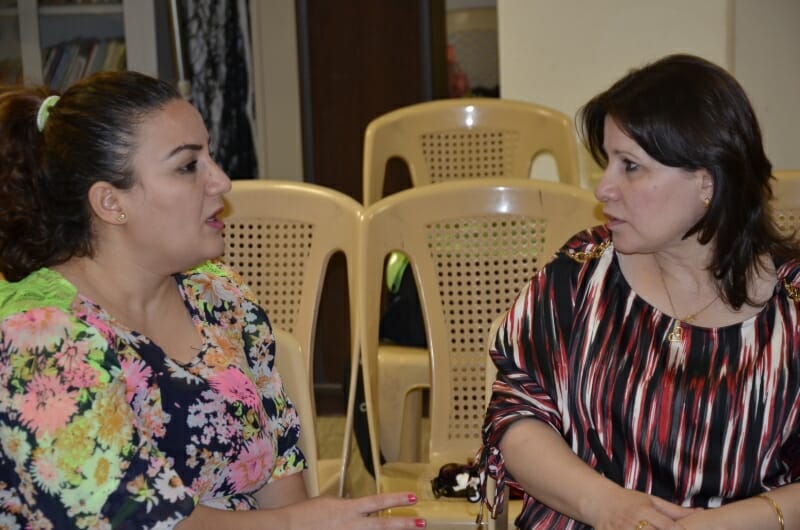
Jun 23, 2015 | Focolare Worldwide
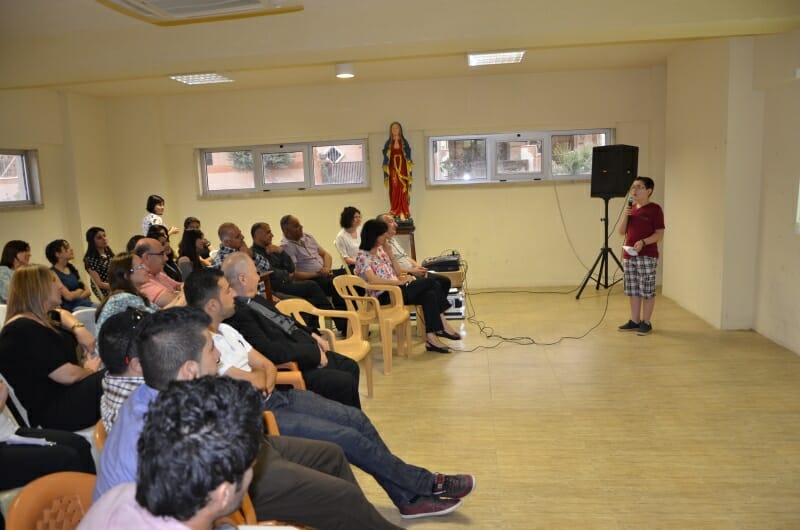 “Iraq is going through its worst period in ten years,” write Gemma and Pierre from the Focolare Movement in Jordan and Iraq, following their short trip to Erbil, Iraq. Their objective was to make the people there feel the closeness of the Focolare community that has been in that region for many years. “Being with them, even though we found them so tried and exhausted, we were struck by how their generosity towards others, and how they continue to believe in in God’s love.” “Nine months have passed since the villages of the Nineveh Plains were invaded by ISIS. The general situation of the country has worsened with recent developments, that is, the taking of new territories. The people, including our friends, feel a great sense of uncertainty about the future. Many have already fled the country and others are planning to do the same.” Spiritual closeness no small matter if, at the conclusion of the days together, one person confided: “We’ve lost everything, I wasn’t able to finish my university studies, there are no jobs . . . but finally, I have peace again, and I decided to begin my relationship with God again.” Pierre and Gemma recount: “During the meeting with the Focolare community there was one very important moment: it was when we openly declared our desire to give our lives for one another, to love each other with the measure of Jesus’s love, so that He could be present among us as He promises. Then we meditated on the link between the Eucharist and Church, using a 1982 talk by Chiara Lubich, The Eucharist makes the Church and the Church makes the Eucharist. We also met Archbishop Bashar Warda, Chaldean Catholic Archbishop of Erbil, who was pleased by our visit. In concluding he asked us to pray for Iraq like never before.”
“Iraq is going through its worst period in ten years,” write Gemma and Pierre from the Focolare Movement in Jordan and Iraq, following their short trip to Erbil, Iraq. Their objective was to make the people there feel the closeness of the Focolare community that has been in that region for many years. “Being with them, even though we found them so tried and exhausted, we were struck by how their generosity towards others, and how they continue to believe in in God’s love.” “Nine months have passed since the villages of the Nineveh Plains were invaded by ISIS. The general situation of the country has worsened with recent developments, that is, the taking of new territories. The people, including our friends, feel a great sense of uncertainty about the future. Many have already fled the country and others are planning to do the same.” Spiritual closeness no small matter if, at the conclusion of the days together, one person confided: “We’ve lost everything, I wasn’t able to finish my university studies, there are no jobs . . . but finally, I have peace again, and I decided to begin my relationship with God again.” Pierre and Gemma recount: “During the meeting with the Focolare community there was one very important moment: it was when we openly declared our desire to give our lives for one another, to love each other with the measure of Jesus’s love, so that He could be present among us as He promises. Then we meditated on the link between the Eucharist and Church, using a 1982 talk by Chiara Lubich, The Eucharist makes the Church and the Church makes the Eucharist. We also met Archbishop Bashar Warda, Chaldean Catholic Archbishop of Erbil, who was pleased by our visit. In concluding he asked us to pray for Iraq like never before.”  I have come for you, each one of you is like the whole world to me. . .” said Bishop Salomone Warduni, Auxiliary Bishop of Baghdad, from the Chaldean Catholic Church, who had travelled from Baghdad just to be at our gathering. He exhorted everyone: “Have no fear, carry on in the life of the ideal of unity, because each one of us has a mission to accomplish.” One person said: “I try live love in concrete ways until [love] becomes reciprocal within the community. In the Eucharist I find the strength to carry on loving.” Then there is the joy of being together. In spite of the situation there is very lively group children and teenagers who held a local edition of the Run4Unity sport relay for peace, with 35 boys and girls. “These were intense days for us,” conclude the two focolarini from Jordan, “a deep and divine experience. They gave much more to us than we were ever able to give to them. Who knows how much life must be coming from this suffering that is being lived in a Christian way.
I have come for you, each one of you is like the whole world to me. . .” said Bishop Salomone Warduni, Auxiliary Bishop of Baghdad, from the Chaldean Catholic Church, who had travelled from Baghdad just to be at our gathering. He exhorted everyone: “Have no fear, carry on in the life of the ideal of unity, because each one of us has a mission to accomplish.” One person said: “I try live love in concrete ways until [love] becomes reciprocal within the community. In the Eucharist I find the strength to carry on loving.” Then there is the joy of being together. In spite of the situation there is very lively group children and teenagers who held a local edition of the Run4Unity sport relay for peace, with 35 boys and girls. “These were intense days for us,” conclude the two focolarini from Jordan, “a deep and divine experience. They gave much more to us than we were ever able to give to them. Who knows how much life must be coming from this suffering that is being lived in a Christian way.
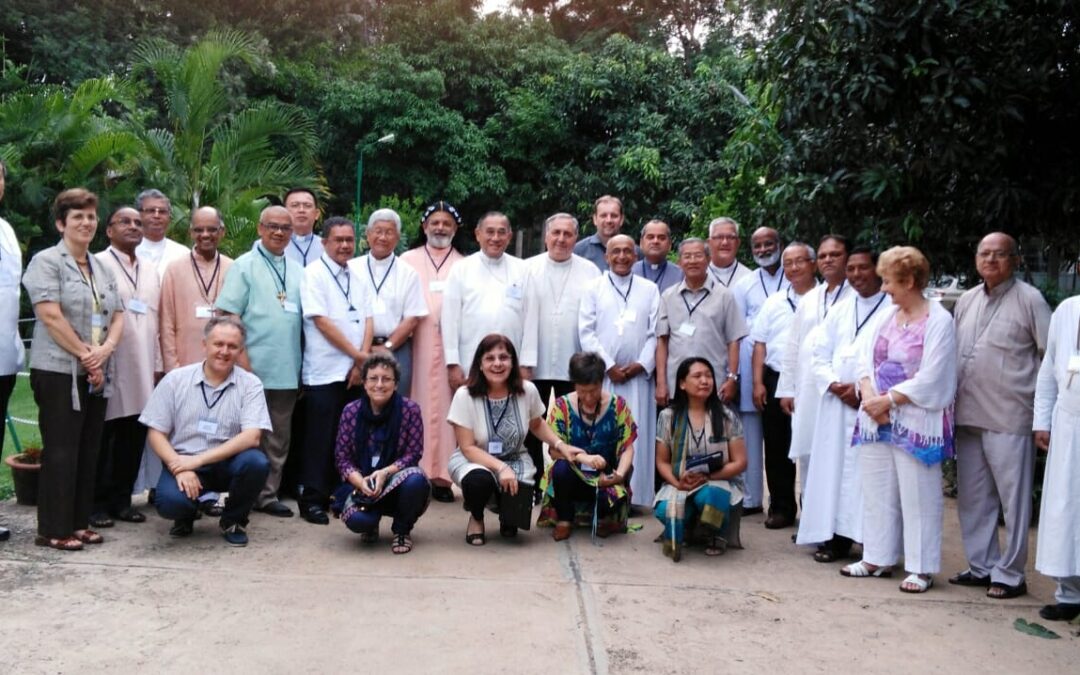
Jun 22, 2015 | Focolare Worldwide
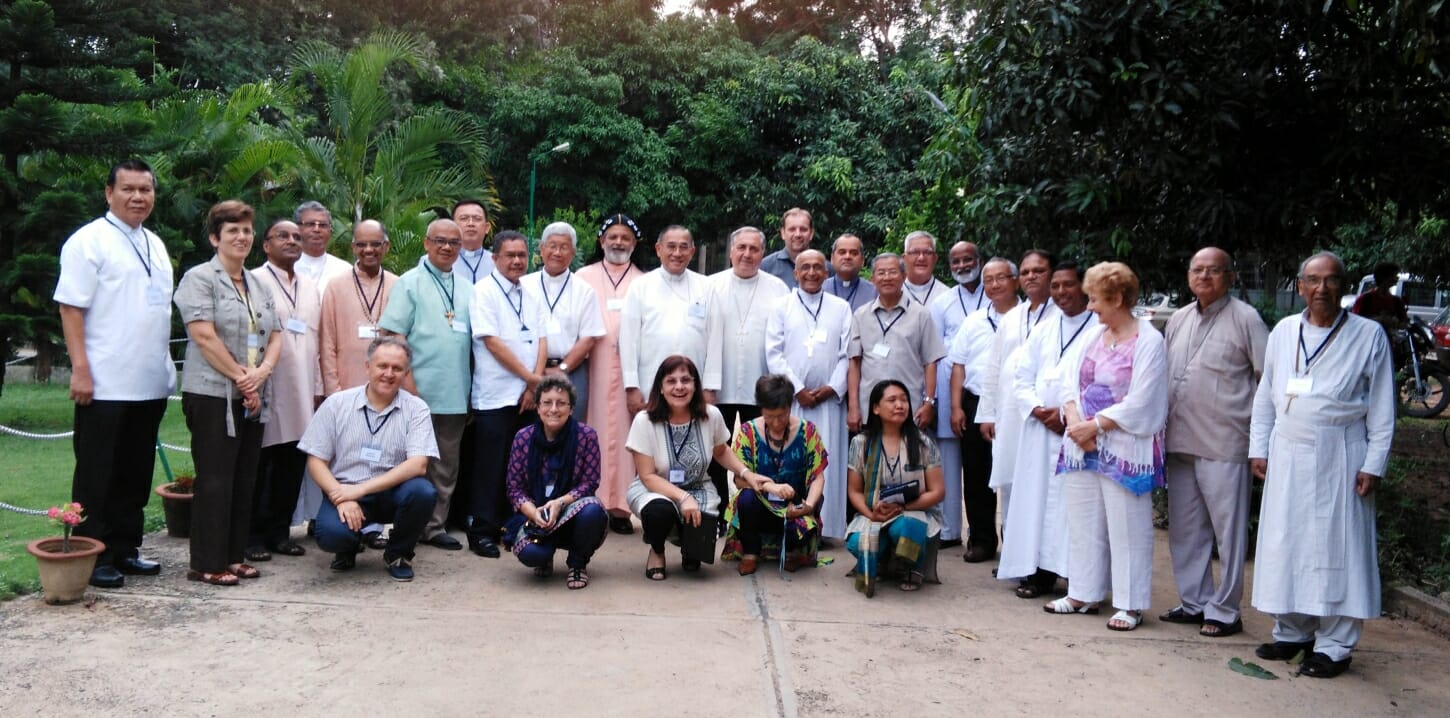 “Upon my arrival, the first person I saw was the cardinal who took my bag. The art of loving, which Chiara Lubich speaks about in such a simple way, is life.” So says Mons. Ignatius Mascarenhas, bishop of Chandigarh, India, one of the 22 Catholic Bishops-Friends of the Focolare Movement reunited in Bangalore from June 3rd to 6th for a pan-Asian meeting. For the first time, among these, there are 12 Indian bishops and one bishop from Pakistan. This meeting was preceded by a preparatory meeting with a few bishops, who went together to visit the sick in a nearby hospital, to stress how contemplation is not separate from action, in the desire to be instruments of God’s mercy. The bishop from Pakistan lives near the border between Pakistan and India. He shared his pastoral experience: “Two weeks ago I was in a great desert near the border. For three days I was with a priest, visiting small towns who have been suffering for the last two years because of the drought. The children are dying. I celebrated the Mass using a box as an altar. Many people came, among them even a few Hindus. During the Mass we prayed that the rain would come.” The Indian bishops and the Pakistani bishop celebrated together: “It’s a sign of hope,” affirms Mons. Bobet Callari from the Philippines. Why the choice of India as the location to host this meeting? India, with its billion and 250 million inhabitants, in which Christians are only 3% of the population, represents a frontier for interreligious coexistence. The bishops, pastors of small communities, live in contact with people of other creeds, faiths, cultures. The “dialogue of life” must therefore precede any theological discourse, and communion, the affinity between the bishops (like that which was reinforced during the meeting and sealed by a “pact of mutual love”) is a great antidote against the discouragement which often seems at risk of prevailing. “In my diocese,” recounts Stephen Lepcha, Bishop of Darjeeling (West Bengala), “I have a lot of difficulty with some sects which sow seeds of hate and which put us to the test. I know it will continue to happen, but during these few days I have understand what to do: love with the love that comes from God, because be they Hindus, Muslims, Christians…they are children of God.” “We need the spirituality of communion,” affirms Mons. Elias Gonsalves, from the diocese of Amravati, India. “At times we are left alone. Communion between the bishops is very important, it helps the youngest but also the most elderly. We must improve our capacity to help one another reciprocally.” At the meeting, Hindu Professor Shubada Joshi also spoke, about her meeting with Chiara Lubich and the charism of unity. In fact, in 2002 Chiara, during a Hindu-Christian symposium, had shared with a group of Hindus her mystical experience of the summer of 1949, experiencing that with them, dialogue can be based on a plane of spiritual depth which is not always possible with others. The words of Shubada Joshi, along with the School for Oriental Religions (SOR), which took place in the preceeding months in Tagaytay in the Philippines, gave a panoramic view of the proposal of interreligious dialogue which starts from the spirituality of the Focolare. The meeting with the community of Bangalore, with various testimonies from families and young people, offered a cross-section of daily life lived in the light of fraternity.
“Upon my arrival, the first person I saw was the cardinal who took my bag. The art of loving, which Chiara Lubich speaks about in such a simple way, is life.” So says Mons. Ignatius Mascarenhas, bishop of Chandigarh, India, one of the 22 Catholic Bishops-Friends of the Focolare Movement reunited in Bangalore from June 3rd to 6th for a pan-Asian meeting. For the first time, among these, there are 12 Indian bishops and one bishop from Pakistan. This meeting was preceded by a preparatory meeting with a few bishops, who went together to visit the sick in a nearby hospital, to stress how contemplation is not separate from action, in the desire to be instruments of God’s mercy. The bishop from Pakistan lives near the border between Pakistan and India. He shared his pastoral experience: “Two weeks ago I was in a great desert near the border. For three days I was with a priest, visiting small towns who have been suffering for the last two years because of the drought. The children are dying. I celebrated the Mass using a box as an altar. Many people came, among them even a few Hindus. During the Mass we prayed that the rain would come.” The Indian bishops and the Pakistani bishop celebrated together: “It’s a sign of hope,” affirms Mons. Bobet Callari from the Philippines. Why the choice of India as the location to host this meeting? India, with its billion and 250 million inhabitants, in which Christians are only 3% of the population, represents a frontier for interreligious coexistence. The bishops, pastors of small communities, live in contact with people of other creeds, faiths, cultures. The “dialogue of life” must therefore precede any theological discourse, and communion, the affinity between the bishops (like that which was reinforced during the meeting and sealed by a “pact of mutual love”) is a great antidote against the discouragement which often seems at risk of prevailing. “In my diocese,” recounts Stephen Lepcha, Bishop of Darjeeling (West Bengala), “I have a lot of difficulty with some sects which sow seeds of hate and which put us to the test. I know it will continue to happen, but during these few days I have understand what to do: love with the love that comes from God, because be they Hindus, Muslims, Christians…they are children of God.” “We need the spirituality of communion,” affirms Mons. Elias Gonsalves, from the diocese of Amravati, India. “At times we are left alone. Communion between the bishops is very important, it helps the youngest but also the most elderly. We must improve our capacity to help one another reciprocally.” At the meeting, Hindu Professor Shubada Joshi also spoke, about her meeting with Chiara Lubich and the charism of unity. In fact, in 2002 Chiara, during a Hindu-Christian symposium, had shared with a group of Hindus her mystical experience of the summer of 1949, experiencing that with them, dialogue can be based on a plane of spiritual depth which is not always possible with others. The words of Shubada Joshi, along with the School for Oriental Religions (SOR), which took place in the preceeding months in Tagaytay in the Philippines, gave a panoramic view of the proposal of interreligious dialogue which starts from the spirituality of the Focolare. The meeting with the community of Bangalore, with various testimonies from families and young people, offered a cross-section of daily life lived in the light of fraternity.
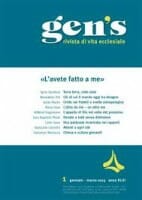
Jun 20, 2015 | Non categorizzato
 “Mercy: the word reveals the very mystery of the Most Holy Trinity. Mercy: the ultimate and supreme act by which God comes to meet us. Mercy: the fundamental law that dwells in the heart of every person who looks sincerely into the eyes of his brothers and sisters on the path of life. Mercy: the bridge that connects God and man, opening our hearts to the hope of being loved forever despite our sinfulness.” These are the words of Pope Francis in the Bull of Indiction with which he announced the Jubilee Year of Mercy on April 11, 2015. God “does not limit himself merely to affirming his love, but makes it visible and tangible. Love, after all, can never be just an abstraction. By its very nature, it indicates something concrete: intentions, attitudes, and behaviours that are shown in daily living.” Pope Francis clearly does not intend to exclude fidelity to the truth and doctrinal clarity, but rather combine them with the reality which people live. And not to yield to compromise, but to be faithful to the God whose Truth fulfilled is Love. A freeing message which leaves no one out. This is the platform upon which the two Synods of Bishops on the family are moving forward. A path to be lived — as stated in the Lineamenta, sent to the dioceses in view of the upcoming Assembly– ” to read both the signs of God and human history, in a twofold yet unique faithfulness which this reading involves,” facing with realism the family of today and keeping at the same time, ” our gaze fixed on Christ to ponder, with renewed freshness and enthusiasm, what revelation, transmitted in the Church’s faith, tells us about the beauty, the role and the dignity of the family:” The Gospel of the family. Fidelity, on the one hand, to God’s design which “is to be understood not as a “yoke” imposed on persons but as a “gift”, ” as “good news” which places itself in the service of the deeper fulfillment and happiness of people; but fidelity, on the other hand, to people in what they live and often suffer in a complex society with an interiority -one’s own and that of others- not less complex, from which numerous vulnerabilities originate. The key phrase is the art of accompaniment. In this regard, Pope Francis highlights in Evangelii gaudium: ” without detracting from the evangelical ideal, they need to accompany with mercy and patience the eventual stages of personal growth as these progressively occur.” It is always necessary to learn to ” remove our sandals before the sacred ground of the other (cf. Ex 3:5). The pace of this accompaniment must be steady and reassuring, reflecting our closeness and our compassionate gaze which also heals, liberates and encourages growth in the Christian life.” In fact, ” Someone good at such accompaniment does not give in to frustrations or fears. He or she invites others to let themselves be healed, to take up their mat, embrace the cross, leave all behind and go forth ever anew to proclaim the Gospel.” A demanding agenda which the Church is called to carry out–as the Lineamenta states–” with the tenderness of a mother and the clarity of a teacher (cf. Eph 4:15).” That’s right, “The Church:” not only the bishops and the priests, but the entire People of God. ” Without the joyous testimony of married people and families, domestic churches, proclamation, even if done in its proper way, risks being misunderstood or lost in a flurry of words that is characteristic of society today.” The complete text in Italian, with reflections and testimonies, is found in: Periodical of Church life: Gen’s.
“Mercy: the word reveals the very mystery of the Most Holy Trinity. Mercy: the ultimate and supreme act by which God comes to meet us. Mercy: the fundamental law that dwells in the heart of every person who looks sincerely into the eyes of his brothers and sisters on the path of life. Mercy: the bridge that connects God and man, opening our hearts to the hope of being loved forever despite our sinfulness.” These are the words of Pope Francis in the Bull of Indiction with which he announced the Jubilee Year of Mercy on April 11, 2015. God “does not limit himself merely to affirming his love, but makes it visible and tangible. Love, after all, can never be just an abstraction. By its very nature, it indicates something concrete: intentions, attitudes, and behaviours that are shown in daily living.” Pope Francis clearly does not intend to exclude fidelity to the truth and doctrinal clarity, but rather combine them with the reality which people live. And not to yield to compromise, but to be faithful to the God whose Truth fulfilled is Love. A freeing message which leaves no one out. This is the platform upon which the two Synods of Bishops on the family are moving forward. A path to be lived — as stated in the Lineamenta, sent to the dioceses in view of the upcoming Assembly– ” to read both the signs of God and human history, in a twofold yet unique faithfulness which this reading involves,” facing with realism the family of today and keeping at the same time, ” our gaze fixed on Christ to ponder, with renewed freshness and enthusiasm, what revelation, transmitted in the Church’s faith, tells us about the beauty, the role and the dignity of the family:” The Gospel of the family. Fidelity, on the one hand, to God’s design which “is to be understood not as a “yoke” imposed on persons but as a “gift”, ” as “good news” which places itself in the service of the deeper fulfillment and happiness of people; but fidelity, on the other hand, to people in what they live and often suffer in a complex society with an interiority -one’s own and that of others- not less complex, from which numerous vulnerabilities originate. The key phrase is the art of accompaniment. In this regard, Pope Francis highlights in Evangelii gaudium: ” without detracting from the evangelical ideal, they need to accompany with mercy and patience the eventual stages of personal growth as these progressively occur.” It is always necessary to learn to ” remove our sandals before the sacred ground of the other (cf. Ex 3:5). The pace of this accompaniment must be steady and reassuring, reflecting our closeness and our compassionate gaze which also heals, liberates and encourages growth in the Christian life.” In fact, ” Someone good at such accompaniment does not give in to frustrations or fears. He or she invites others to let themselves be healed, to take up their mat, embrace the cross, leave all behind and go forth ever anew to proclaim the Gospel.” A demanding agenda which the Church is called to carry out–as the Lineamenta states–” with the tenderness of a mother and the clarity of a teacher (cf. Eph 4:15).” That’s right, “The Church:” not only the bishops and the priests, but the entire People of God. ” Without the joyous testimony of married people and families, domestic churches, proclamation, even if done in its proper way, risks being misunderstood or lost in a flurry of words that is characteristic of society today.” The complete text in Italian, with reflections and testimonies, is found in: Periodical of Church life: Gen’s.
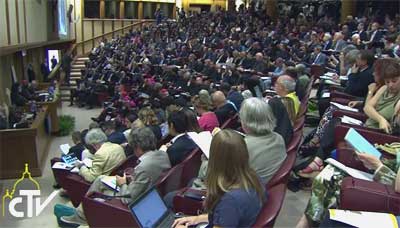
Jun 19, 2015 | Non categorizzato
All the popes, from Pope Paul VI on have spoken about the environment, focusing on the issue of ecology? Pope Francis’s encyclical on the Creation created a buzz even before its publication. What is the scope and significance of this document?  “The uniqueness of this extraordinary document was highlighted at the presentation of the Encyclical Letter of Pope Francis, which I attended on June 18, 2015. Laudato si’ is the result of team work. The founder and director of the Postdam Institute for the study of the impact of climate change, Dr. Shellenhuber, said that it puts faith and reason together, and that its content is totally in line with scientific proofs. It is a concrete encyclical, as economist Dr. Carolyn Woo describes it, in which the Pope claims that it is important to protect the environment even from an economic standpoint because this will bear fruit and reduce costs. Metropolitan Jhon Zizioulas thanked Pope Francis several times, as he emphasised how the Encyclical highlights the relationship of man with the earth, along with his relationship with God and neighbour, a relationship very often forgotten. In conclusion, Cardinal Turkson, President of the Pontifical Council for Justice and Peace, highlighted how Pope Francis places integral ecology at the core of the document, affirming that “when we speak of the ‘environment,’ what we really mean is a relationship existing between nature and the society which lives in it. Nature cannot be regarded as something separate from ourselves or as a mere setting in which we live. We are part of nature, included in it and thus in constant interaction with it.” What projects will EcoOne be bringing ahead for the protection of Creation? “First of all, there is the intellectual contribution, and international meetings for the elaboration of an ecological theory based on care, environmental conscience-responsibility, new person-nature relationship, and sustainable development. There have been many initiatives over the years at the level of study, personal and team research. I mention only one, which was the recent contribution by EcoOne to the ongoing reflection on ecology published under the title Focus sull’ecologia in Nuova Umanità (34, 2012/1, 1999), which presents:
“The uniqueness of this extraordinary document was highlighted at the presentation of the Encyclical Letter of Pope Francis, which I attended on June 18, 2015. Laudato si’ is the result of team work. The founder and director of the Postdam Institute for the study of the impact of climate change, Dr. Shellenhuber, said that it puts faith and reason together, and that its content is totally in line with scientific proofs. It is a concrete encyclical, as economist Dr. Carolyn Woo describes it, in which the Pope claims that it is important to protect the environment even from an economic standpoint because this will bear fruit and reduce costs. Metropolitan Jhon Zizioulas thanked Pope Francis several times, as he emphasised how the Encyclical highlights the relationship of man with the earth, along with his relationship with God and neighbour, a relationship very often forgotten. In conclusion, Cardinal Turkson, President of the Pontifical Council for Justice and Peace, highlighted how Pope Francis places integral ecology at the core of the document, affirming that “when we speak of the ‘environment,’ what we really mean is a relationship existing between nature and the society which lives in it. Nature cannot be regarded as something separate from ourselves or as a mere setting in which we live. We are part of nature, included in it and thus in constant interaction with it.” What projects will EcoOne be bringing ahead for the protection of Creation? “First of all, there is the intellectual contribution, and international meetings for the elaboration of an ecological theory based on care, environmental conscience-responsibility, new person-nature relationship, and sustainable development. There have been many initiatives over the years at the level of study, personal and team research. I mention only one, which was the recent contribution by EcoOne to the ongoing reflection on ecology published under the title Focus sull’ecologia in Nuova Umanità (34, 2012/1, 1999), which presents:
- an essay on the media debate over climate change, the result of a discussion with climatologist, Antonello Pasini. This essay is connected to the results presented in the last part of the book Il pianeta che scotta, in which you find the ideas of EcoOne, written by Lucca Fiorani, president of the EcoOne Commission, and Pasini;
- essay titled: Un etica ecologica basata su una ecologia di comunione (an ecological ethic based on an ecology of communion), written by Miguel Olivera Panao. It offers a philosophical vision of the synthesis among three levels of ecological understanding: the natural, the human, and the spiritual.
But there are also other initiatives of a didactic-educative type that can support those would like to change their lifestyle, such as the Earth Cube which engages them in protecting the earth, with one of the phrases that are written on each of its sides. Then there is the scholastic project ‘Giving to Save the Environment’ which invites people into a ‘saving energy pact’ which turns acts of energy saving into scholarships for disadvantaged teenagers. In 1949, Chiara Lubich lived a period of intense mystical contemplation amidst the splendid natural surroundings of the Dolomite Mountains in northern Italy, and this had a very important role. What insights are offered by that vision of the cosmos in the mysticism and spirituality of Chiara? “The culture that emerges from the charism of unity contains the foundations of a new understanding of the concept of sustainable development which is not yet fully developed. In Chiara Lubich’s mystical intuitions we’ve learned that looking at nature with God’s eyes, we catch the presence of God beneath all things. Nature comes to be seen as a gift of God, as an expression of His love. In those words of Chiara, ‘everything is substaniated with love,’ we see unity in the biodiversity just as in the non-biological diversity. Moreover, we see that God creates for and out of love. When God created, He created all things from nothing out of love, because He created them from Himself . . . He drew them from Himself because creating them he died (of love), died in love: loved and therefore created.’ Therefore, for Chiara, the logic with which God creates is forever that of self-emptying, so that creation emerges. Chiara sees the creation as an action of God that is not estranged from his internal dynamic, the dynamic of giving all of Himself. So, God not only created the cosmos, but He keeps it alive and sustains it in continuation second by second accompanying it with His providential love. Finally, we perceive the golden thread that joins all beings. ‘Everything on earth, therefore, shared in a rapport of love with everything: every thing with every thing. . . but you need to be Love in order to weave the gold thread among the beings.” The rationality in nature speaks to us of a Creator who is relationship, the rational being par excellence. God relates in a Trinitarian relationship, and all the things He created carry that Trinitarian stamp.
Jun 19, 2015 | Non categorizzato
Al convegno, promosso da AFNonlus, parteciperanno i partner di progetto tra cui l’Ente Nazionale per il Microcredito e il Dipartimento di Agraria dell’Università degli Studi di Napoli Federico II. L’evento, patrocinato dalla Società Italiana per l’Organizzazione Internazionale (SIOI), si svolgerà presso la sala workshop 50 – Cascina Triulza EXPO Milano 2015. Il progetto Haiti, danneggiata dal grave sisma del gennaio 2010 e tra i paesi più poveri del pianeta con circa l’80% della popolazione sotto la soglia della povertà, è minacciata da una seria crisi ambientale, direttamente connessa al fenomeno della deforestazione. L’utilizzo di legname per le costruzioni e soprattutto come combustibile ha un impatto negativo sulla salute delle persone, sul clima e sull’ambiente con implicazioni sociali ed economiche. Il percorso per dare una risposta concreta a queste problematiche è complesso e lungo, ma può essere facilitato con la proposta elaborata da AFNonlus, basata sull’utilizzo di tecnologie a impatto zero e nello specifico un modello di cucina solare rispettosa dei bisogni sociali, ambientali, climatici e culturali del popolo haitiano. La sperimentazione avverrà presso la comunità di Mont-Organisé, nel nord est del Paese, dove AFNonlus è già presente dal 1985 e sostiene, tra l’altro, 20 scuole. E proprio queste scuole costituiranno il punto di partenza per sensibilizzare, utilizzare, formare e diffondere questa buona pratica.
Jun 18, 2015 | Focolare Worldwide
Here are some of the topics to be discussed and experimented with the youth, participants and businessmen/women of the EoC, during the Summer School:
- Is economy of communion possible? Experiences of entrepreneurs from all over the world.
- Is man really an homo oeconomicus? If not, what has changed in economic and corporate practices?
- Activity and generativity: keys to building a new economy.
- Experiences of companies that have invented new business modes.
- The courage to change dominant convictions and practices.
- What can we do personalise the changes we desire?
The programme will include dissertations of Professors from various European universities and Sophia University Institute (Loppiano-Florence), along with businessmen/women of the EoC worldwide, entrepreneurial workshops, research, communication and social innovation.. For further information
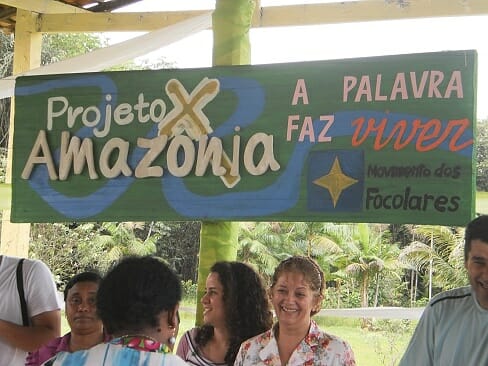
Jun 18, 2015 | Non categorizzato
 Raimundo is a hairdresser and Edilene, an anesthetist and public administration clerk. So to take interest in the environment is not exactly their line of expertise. But in the face of the environmental and cultural invasion they are undergoing, together with other families with whom they share Christian ideals, they started to pose some questions to themselves. What heritage would we be leaving to our children? How can we diffuse our vision to a society that seems to be unaware of this destruction? How can we go against the current? They have been married for 29 years, and have three children and three grandchildren.They live in Abaetetuba (Parà – Brazil), an «island» that covers Igarapé-Miri, Moju and Barcarena, three cities that were famous in the 1980s for the mining and industrial settlements. Many families had left their fields to work for the multinational companies, and settled down in the suburbs, nurturing new areas of poverty, with the illusion of a wealth they never reached. The impact of these industries on the environment was devastating, to say the least. It had started with the indiscriminate felling of the açaizeiros (a regional native plant) to extract the palmito which was exported, depriving the families of an essential nutriment. The industrial residues dumped in the rivers had caused a visible reduction of fish and prawns, while atmospheric pollution reduced the production of fruits remarkably. This happened at a local level. But the effects of the deforestation had a repercussion at global levels.The Amazon, in fact is a region where everything is mega in size, like its extension (occupying over 50% of the entire Brazil), its biodiversity, its forests and volume of sweet waters. But with the deforestation underway, all these precious resources run the risk of completely losing their efficacy. It was not easy to see what had to be done. But Raimundo and Edilene could count on an element to make the difference: unity with the other families and the strength deriving from letting God guide them in their choices in life. So they made a joint decision to transform with their own resources, a grazing field of 34 hectares into a fruit grove. For trees, they chose the typical varieties of the region that were more at risk of extinction, and at that point, some of these were no longer known by the youth. They worked hard and with great enthusiasm to create in Abaetetuba, an area for the preservation of local biodiversity. The fruit grove, now producing edible fruits of 166 native species with two African species, makes up a collection of a unique genre: a wealth that offers an alternative to the region’s sustainable future. The area called Radini, in honor of their children, Raisa, Radi and Raoni, is often visited by internationally famed researchers and environmentalists, actors, singers and also bishops and common folk but especially the youth. In fact, the site offers theoretic/practical lessons on biodiversity and conservation of the environment,with the distribution of informative material. Even after the awards and acknowledgements received – like the important recognition in 2012 given by the Goeldidel Parà Museum – the site is now the subject of newspapers and magazines in the region. Edilene and Raimundo are always surprised to see the interest of so many people, some of whom feel the urge to follow their example and become, as they like to define themselves, “environmentalists with a heart.”
Raimundo is a hairdresser and Edilene, an anesthetist and public administration clerk. So to take interest in the environment is not exactly their line of expertise. But in the face of the environmental and cultural invasion they are undergoing, together with other families with whom they share Christian ideals, they started to pose some questions to themselves. What heritage would we be leaving to our children? How can we diffuse our vision to a society that seems to be unaware of this destruction? How can we go against the current? They have been married for 29 years, and have three children and three grandchildren.They live in Abaetetuba (Parà – Brazil), an «island» that covers Igarapé-Miri, Moju and Barcarena, three cities that were famous in the 1980s for the mining and industrial settlements. Many families had left their fields to work for the multinational companies, and settled down in the suburbs, nurturing new areas of poverty, with the illusion of a wealth they never reached. The impact of these industries on the environment was devastating, to say the least. It had started with the indiscriminate felling of the açaizeiros (a regional native plant) to extract the palmito which was exported, depriving the families of an essential nutriment. The industrial residues dumped in the rivers had caused a visible reduction of fish and prawns, while atmospheric pollution reduced the production of fruits remarkably. This happened at a local level. But the effects of the deforestation had a repercussion at global levels.The Amazon, in fact is a region where everything is mega in size, like its extension (occupying over 50% of the entire Brazil), its biodiversity, its forests and volume of sweet waters. But with the deforestation underway, all these precious resources run the risk of completely losing their efficacy. It was not easy to see what had to be done. But Raimundo and Edilene could count on an element to make the difference: unity with the other families and the strength deriving from letting God guide them in their choices in life. So they made a joint decision to transform with their own resources, a grazing field of 34 hectares into a fruit grove. For trees, they chose the typical varieties of the region that were more at risk of extinction, and at that point, some of these were no longer known by the youth. They worked hard and with great enthusiasm to create in Abaetetuba, an area for the preservation of local biodiversity. The fruit grove, now producing edible fruits of 166 native species with two African species, makes up a collection of a unique genre: a wealth that offers an alternative to the region’s sustainable future. The area called Radini, in honor of their children, Raisa, Radi and Raoni, is often visited by internationally famed researchers and environmentalists, actors, singers and also bishops and common folk but especially the youth. In fact, the site offers theoretic/practical lessons on biodiversity and conservation of the environment,with the distribution of informative material. Even after the awards and acknowledgements received – like the important recognition in 2012 given by the Goeldidel Parà Museum – the site is now the subject of newspapers and magazines in the region. Edilene and Raimundo are always surprised to see the interest of so many people, some of whom feel the urge to follow their example and become, as they like to define themselves, “environmentalists with a heart.”
See reportage on page 47 of the journal Amazonia Viva http://issuu.com/amazoniaviva/docs/43_av_mar_2015_web_ok/1
Jun 17, 2015 | Non categorizzato
See call for papers The international congress sponsored by Communion and Law will be held in Castel Gandolfo (Rome). The focus this year will be on how citizen participation can help to protect and preserve the environment, and how this concept might inform discussions regarding legal rights and responsibilities regarding environmental protection. The themes to be discussed: Environmental law and the right to the environment – The relational feature of environmental law – Principles of environmental law– Publications on the protection of the environment and participation rights – Environment, the city and territory – Environmental protection and responsibility– Entrepreneurial responsibility– Environmental protection and lawfulness. The topics were chosen following the works and reflection points that arose during the preparatory phase of the Congress, particularly during the international seminar of March 2014 held in Castelgandolfo (Rome) and in the Summer School of Abrigada (Portugal) in July 2014. Programm Press releases All the news regarding the preparation and enrollment for the Congress will be found on the site www.comunionediritto.org/en/.
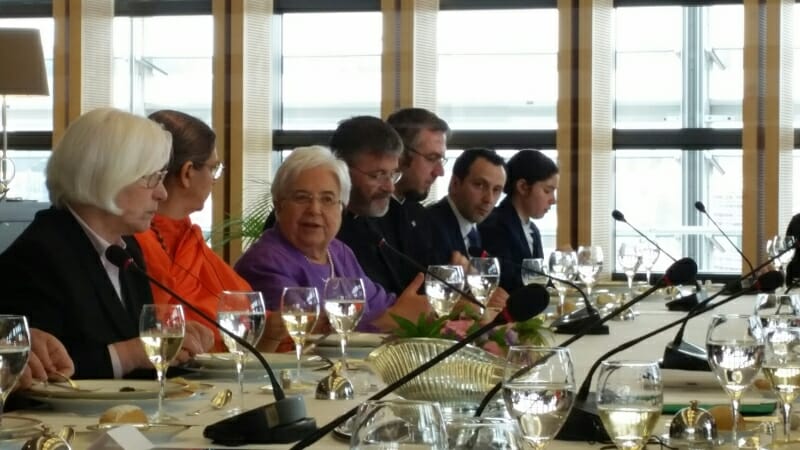
Jun 17, 2015 | Focolare Worldwide
https://vimeo.com/130879600 Video highlights of the event (Italian soundtrack) “For me dialogue is not a ritual; it is not something we do once a year and then put back on the shelf again. For me it is an essential contribution to finding solutions to some of the most difficult problems European societies are facing today, problems linked to fear of what is different, linked to the consequences of the crisis, the need for environmental sustainability. Religions will have to play the role between the communities, to perhaps help us bring Europe in a better place than it is today”. These were Frans Timmermans’ words after the annual High-Level Gathering of Religious Leaders which addressed the theme “Living together and disagreeing well”. With the First Vice-President of the European Commission were Antonio Tajani, Vice President of the European Parliament and 15 religious leaders from Christian, Jewish, Muslim, Hindu, Buddhist and Mormon traditions. An understanding of the role of religions is shown by the growing number of occasions which bring together political institutions and religious leaders. Religious leaders are invited not so much on an individual basis but so as to work together, to find solutions to conflicts and to seek a way forward towards peaceful co-existence. See the recent High Level Debate on Tolerance and Reconciliation at the United Nations, the meeting of religious leaders in Kazakhstan, the invitation to Pope Francis to speak at the United Nations and now, at European level, this meeting organised by the European Commission. Today’s event follows on from the meeting held on 2nd June with the philosophical and non-confessional organisations, and it falls within the framework laid down by the Lisbon Treaty.  Some burning issues came up at the press conference – which concern European policies on immigration, the growth of foreign fighters (those who leave Europe to fight jihad), and the rise of far right groups in the European Parliament – which were answered by Imams, Rabbis and Bishops. Metropolitan Joseph, from the Romanian Orthodox Church, also highlighted the role of ecclesial Movements, like the St Egidio Community, referring to its work for the progress of interreligious dialogue. On leaving this long dialogue, Maria Voce, President of the Focolare Movement, expressed her joy at having participated in a truly free exchange, with genuine listening. She emphasised the Golden Rule, shared by all religions. Among the examples she gave of it being put into practice was the experience of the interreligious group “Vivre ensemble à Cannes”. Outside the main meeting she said: “There is no religion that does not want dialogue, there aren’t any religious leaders who don’t seek to do all they can to promote it. This gives hope because, despite all we see around us, religion can truly bring a new message and help in the process of dialogue which can at times seem almost impossible”. She further emphasised “that it is important for communities to be involved in dialogue and not only religious leaders, to foster a synergy that can lead to a shared effort in European cities to enable peaceful co-existence. This can come about only by overcoming feelings of fear – which are understandable when facing the unknown – with feelings of welcome, respect and the capacity to welcome the other truly as a brother or sister.” The outcomes of the debate on 16th June will be included in the discussion material for the first annual conference on Fundamental Rights, of the EU, to be held on 1-2 October 2015 and which will focus on the theme: “Tolerance and respect: to prevent and combat anti-Semitic and anti-Muslim hatred in Europe”.
Some burning issues came up at the press conference – which concern European policies on immigration, the growth of foreign fighters (those who leave Europe to fight jihad), and the rise of far right groups in the European Parliament – which were answered by Imams, Rabbis and Bishops. Metropolitan Joseph, from the Romanian Orthodox Church, also highlighted the role of ecclesial Movements, like the St Egidio Community, referring to its work for the progress of interreligious dialogue. On leaving this long dialogue, Maria Voce, President of the Focolare Movement, expressed her joy at having participated in a truly free exchange, with genuine listening. She emphasised the Golden Rule, shared by all religions. Among the examples she gave of it being put into practice was the experience of the interreligious group “Vivre ensemble à Cannes”. Outside the main meeting she said: “There is no religion that does not want dialogue, there aren’t any religious leaders who don’t seek to do all they can to promote it. This gives hope because, despite all we see around us, religion can truly bring a new message and help in the process of dialogue which can at times seem almost impossible”. She further emphasised “that it is important for communities to be involved in dialogue and not only religious leaders, to foster a synergy that can lead to a shared effort in European cities to enable peaceful co-existence. This can come about only by overcoming feelings of fear – which are understandable when facing the unknown – with feelings of welcome, respect and the capacity to welcome the other truly as a brother or sister.” The outcomes of the debate on 16th June will be included in the discussion material for the first annual conference on Fundamental Rights, of the EU, to be held on 1-2 October 2015 and which will focus on the theme: “Tolerance and respect: to prevent and combat anti-Semitic and anti-Muslim hatred in Europe”.
See also: Video of Religious Leaders being welcomed Video of Press Conference Photo gallery Press Release by the European Commission Press Release by Focolare Movement (June, 12 2015)
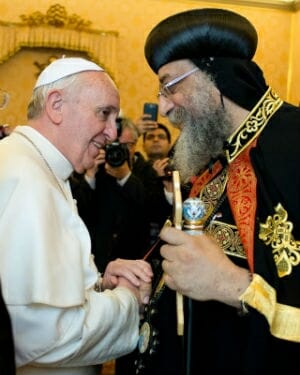
Jun 17, 2015 | Focolare Worldwide
 After the historic meeting between Francis and Tawadros II (Pope of the Coptic Orthodox Church and Patriarch of Alexandria), which place on May 10, 2013 at the Vatican, for the first time a day of celebration was held in Alexandria between the two Churches in commemoration of that meeting. Three months after the election of Francis, Tawadros II went to visit him on the day of the 40th anniversary of the historic visit of Pope Shenouda III to Paul VI. On that occasion, the Coptic Orthodox Patriarch had proposed that May 10th be celebrated each year as the Day of Friendship between the two Churches. The event was celebrated on June 7, 2015 at the Jesuit Cultural Centre in Alexandria, Egypt, under the patronage of the Coptic Catholic Patriarch, Ibrahim Ishak, in the presence of Tawadros II, who was joined by 8 Coptic Orthodox bishops and 5 priests. Also present, Papal Nuncio, Bruno Musarò, Latin Bishop, Adel Zaki, and around 100 Religious men and women, and Catholic priests. Promoters of the event included Sohphia University Institute (SUI); the current Director of the Cultural Centre and ex-student of SUI and friend from the Orthodox Church. Following a moment of prayer with readings and songs, a documentary film was presented that recalled the various stages of the historic meeting between the two Churches. In his message, Pope Francis reminded everyone that “what we have in common is much greater than what divides us” and that “we can persevere in our march towards full communion, and grow in love and understanding.The Coptic Patriarch immediately responded. That afternoon he telephoned Pope Francis, confirming his “will to continue in the common effort for the unity of Christians,” as Vatican spokesman Father Lombardi reported. In his speech, which was filled with affection for the Bishop of Rome, Tawadros II expressed his conviction that “today’s world is hungry and thirsty for concrete love. The unity between the Churches is in need of heroes of the faith,” and he indicated some necessary preconditions for reaching unity, such as openmindedness, and praying each day: “Give me an open mind, oh God, like the mind of Our Lord Jesus towards the Samaritan woman, and towards the Good Thief on His right.” But also a big heart, capable of going “beyond the letter.” And, finally, a humble soul that “safeguards the gifts and grace that God bestows.” His Holiness was moved as he described the touching humility of Pope Francis, when he met him and said to him again: “This day we have to celebrate every year!” Tawadros II personally greeted each of the guests. The joyful event ended by remembering the “ecumenism of blood” and the Egyptian and Ethiopian Martyrs in Lybia.
After the historic meeting between Francis and Tawadros II (Pope of the Coptic Orthodox Church and Patriarch of Alexandria), which place on May 10, 2013 at the Vatican, for the first time a day of celebration was held in Alexandria between the two Churches in commemoration of that meeting. Three months after the election of Francis, Tawadros II went to visit him on the day of the 40th anniversary of the historic visit of Pope Shenouda III to Paul VI. On that occasion, the Coptic Orthodox Patriarch had proposed that May 10th be celebrated each year as the Day of Friendship between the two Churches. The event was celebrated on June 7, 2015 at the Jesuit Cultural Centre in Alexandria, Egypt, under the patronage of the Coptic Catholic Patriarch, Ibrahim Ishak, in the presence of Tawadros II, who was joined by 8 Coptic Orthodox bishops and 5 priests. Also present, Papal Nuncio, Bruno Musarò, Latin Bishop, Adel Zaki, and around 100 Religious men and women, and Catholic priests. Promoters of the event included Sohphia University Institute (SUI); the current Director of the Cultural Centre and ex-student of SUI and friend from the Orthodox Church. Following a moment of prayer with readings and songs, a documentary film was presented that recalled the various stages of the historic meeting between the two Churches. In his message, Pope Francis reminded everyone that “what we have in common is much greater than what divides us” and that “we can persevere in our march towards full communion, and grow in love and understanding.The Coptic Patriarch immediately responded. That afternoon he telephoned Pope Francis, confirming his “will to continue in the common effort for the unity of Christians,” as Vatican spokesman Father Lombardi reported. In his speech, which was filled with affection for the Bishop of Rome, Tawadros II expressed his conviction that “today’s world is hungry and thirsty for concrete love. The unity between the Churches is in need of heroes of the faith,” and he indicated some necessary preconditions for reaching unity, such as openmindedness, and praying each day: “Give me an open mind, oh God, like the mind of Our Lord Jesus towards the Samaritan woman, and towards the Good Thief on His right.” But also a big heart, capable of going “beyond the letter.” And, finally, a humble soul that “safeguards the gifts and grace that God bestows.” His Holiness was moved as he described the touching humility of Pope Francis, when he met him and said to him again: “This day we have to celebrate every year!” Tawadros II personally greeted each of the guests. The joyful event ended by remembering the “ecumenism of blood” and the Egyptian and Ethiopian Martyrs in Lybia.

Jun 16, 2015 | Non categorizzato
 The client I manage a banking agency. One evening, leaving the office, I was weighed down by a big, unresolved problem: it regarded a client who had misused his savings account. I could see only two solutions, which made me suffer: seriously damage the client, starting the legal processes, or risk shirking my duties. I had an appointment to meet my wife, to return home together. Usually I try to free myself from all my worries, but that evening I couldn’t. She immediately understood and said to me, “Difficult day today, right?” I began to confide in her. Mary did not know all the problems of the bank, but she listened attentively, in silence. After telling her everything, I felt relieved and more confident. The problem remained, but it was no longer only mine. The next day I was able to imagine a third solution that permitted me, in respect to my duties, to not harm the client. (G. K. – England) Hearing problems I had serious hearing problems, and urged by my parishioners, I went to a specialist. After asking me to which religious order I belonged, he began to list his resentments against the Church for all the inconsistencies and contradictions which had made him lose the faith. I listened to him with love, realizing that I found myself in front of a person who wasn’t satisfied with superficial Christianity. In turn, I responded that there are no arguments for defending the Church except a coherent life. I added, “God loves us as we are.” He asked for my address and phone number. That same evening he came to visit me, and he told me that he had been in the seminary until the age of 18 when it seemed to him that Marxism responded better to what he was seeking; now however these certainties had broken down. After a few days he confided to me that, entering a church, it seemed to him that God was telling him, “I have never abandoned you.” Now both he and his wife have returned to the sacraments. (P. G. – Italy) Layoff At the factory they recently distributed letters of termination of employment, one of which was addressed to Giorgio. Knowing his precarious economic conditions, I went to him and invited him to return with me to the personnel office. “I’m better off than he is,” I stated. “My wife has a job. Fire me instead.” Our boss promised he would have a second look at the case. When we exited, Giorgio embraced me; he was visibly moved. This event naturally spread by word of mouth, and two other employees, more or less in the same conditions as I am, offered their places to two other terminated employees. Management was forced to rethink its methods of choosing layoffs. Our parish priest, who came to know about the episode, told the story during his Sunday homily, without saying names. The next day he told me that two students brought him all their savings for the workers in difficulty, saying, “We too want to imitate the gesture of that worker.” (B. S. – Brazil)
The client I manage a banking agency. One evening, leaving the office, I was weighed down by a big, unresolved problem: it regarded a client who had misused his savings account. I could see only two solutions, which made me suffer: seriously damage the client, starting the legal processes, or risk shirking my duties. I had an appointment to meet my wife, to return home together. Usually I try to free myself from all my worries, but that evening I couldn’t. She immediately understood and said to me, “Difficult day today, right?” I began to confide in her. Mary did not know all the problems of the bank, but she listened attentively, in silence. After telling her everything, I felt relieved and more confident. The problem remained, but it was no longer only mine. The next day I was able to imagine a third solution that permitted me, in respect to my duties, to not harm the client. (G. K. – England) Hearing problems I had serious hearing problems, and urged by my parishioners, I went to a specialist. After asking me to which religious order I belonged, he began to list his resentments against the Church for all the inconsistencies and contradictions which had made him lose the faith. I listened to him with love, realizing that I found myself in front of a person who wasn’t satisfied with superficial Christianity. In turn, I responded that there are no arguments for defending the Church except a coherent life. I added, “God loves us as we are.” He asked for my address and phone number. That same evening he came to visit me, and he told me that he had been in the seminary until the age of 18 when it seemed to him that Marxism responded better to what he was seeking; now however these certainties had broken down. After a few days he confided to me that, entering a church, it seemed to him that God was telling him, “I have never abandoned you.” Now both he and his wife have returned to the sacraments. (P. G. – Italy) Layoff At the factory they recently distributed letters of termination of employment, one of which was addressed to Giorgio. Knowing his precarious economic conditions, I went to him and invited him to return with me to the personnel office. “I’m better off than he is,” I stated. “My wife has a job. Fire me instead.” Our boss promised he would have a second look at the case. When we exited, Giorgio embraced me; he was visibly moved. This event naturally spread by word of mouth, and two other employees, more or less in the same conditions as I am, offered their places to two other terminated employees. Management was forced to rethink its methods of choosing layoffs. Our parish priest, who came to know about the episode, told the story during his Sunday homily, without saying names. The next day he told me that two students brought him all their savings for the workers in difficulty, saying, “We too want to imitate the gesture of that worker.” (B. S. – Brazil)
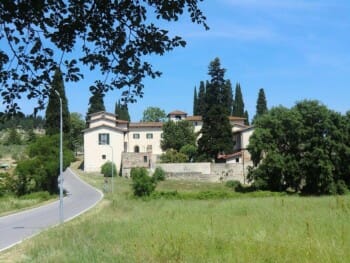
Jun 15, 2015 | Focolare Worldwide, Senza categoria
Live streaming of funeral 18 June (3.30 pm Italian time): http://live.focolare.org
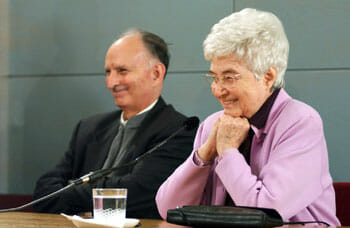
Pasquale Foresi with Chiara Lubich
 He was the first focolarino to be ordained to the priesthood, followed by others who also felt called to serve the Movement in this way. Pasquale saw in what was being done by Chiara Lubich and the first group of people around her “a spring of gospel life gushing forth in the Church” and he began an association with them that would lead him to make a fundamental contribution to the Movement’s development, as one of Chiara Lubich’s closest collaborators. Referring to his main tasks in the Movement, he wrote: “As a priest I was responsible for our first contacts with the Holy See. Another particular task, over the years, was following the Movement’s growth and development throughout the world and working with Chiara on writing the various Statutes. I also helped start up and follow some of the Movement’s centres and works, such as the ‘Mariapolis Centre’ at Rocca di Papa which runs courses for the members; the little town of witness at Loppiano in Italy; the Citta Nuova publishing house in Rome, and other works that developed in different parts of the world over time.” But there is one area of Fr Foresi’s life alongside Chiara that perhaps represents his specific contribution to the development of the Movement better than others. He explained: “It’s in the logic of things that every new spiritual current, every great charism, has an effect on culture at all levels. If you look at history you see that this has always been the case, influencing architecture, the arts, ecclesial and social structures, the various fields of human knowledge and especially theology.” In fact he spoke frequently and published numerous articles and books on the theology of Chiara’s charism and on its social and spiritual dimensions, authoritatively highlighting its newness in the context of both life and thought. His words contain “keen analysis, breadth of vision and optimism for the future made possible by the wisdom that derives from a strong and new charismatic experience, as well by the depths of light and love, humility and faithfulness that only God can achieve in a person’s life”. (Taken from the Preface to “Conversations” questions and answers on the spirituality of unity). The Focolare Movement throughout the world remembers him with immense gratitude. See also: Press release
He was the first focolarino to be ordained to the priesthood, followed by others who also felt called to serve the Movement in this way. Pasquale saw in what was being done by Chiara Lubich and the first group of people around her “a spring of gospel life gushing forth in the Church” and he began an association with them that would lead him to make a fundamental contribution to the Movement’s development, as one of Chiara Lubich’s closest collaborators. Referring to his main tasks in the Movement, he wrote: “As a priest I was responsible for our first contacts with the Holy See. Another particular task, over the years, was following the Movement’s growth and development throughout the world and working with Chiara on writing the various Statutes. I also helped start up and follow some of the Movement’s centres and works, such as the ‘Mariapolis Centre’ at Rocca di Papa which runs courses for the members; the little town of witness at Loppiano in Italy; the Citta Nuova publishing house in Rome, and other works that developed in different parts of the world over time.” But there is one area of Fr Foresi’s life alongside Chiara that perhaps represents his specific contribution to the development of the Movement better than others. He explained: “It’s in the logic of things that every new spiritual current, every great charism, has an effect on culture at all levels. If you look at history you see that this has always been the case, influencing architecture, the arts, ecclesial and social structures, the various fields of human knowledge and especially theology.” In fact he spoke frequently and published numerous articles and books on the theology of Chiara’s charism and on its social and spiritual dimensions, authoritatively highlighting its newness in the context of both life and thought. His words contain “keen analysis, breadth of vision and optimism for the future made possible by the wisdom that derives from a strong and new charismatic experience, as well by the depths of light and love, humility and faithfulness that only God can achieve in a person’s life”. (Taken from the Preface to “Conversations” questions and answers on the spirituality of unity). The Focolare Movement throughout the world remembers him with immense gratitude. See also: Press release

Jun 15, 2015 | Focolare Worldwide
 In 2011, three young people from a parish in the province of Córdoba (Argentina) were invited to a meeting in “Mariapolis Lia,” a small city of the Focolare Movement, 250 km from Buenos Aires. Participating at this meeting was a great experience for all three, a full immersion in the Gospel in action, an incentive to concretely give of themselves for others. “That meeting changed us,” says Susana. “We found that we were more enthusiastic, more welcoming, more trusting in God who we rediscovered is Love. It was a chance to grow as people but also as a group.” So much so that today there are about fifteen teens who are moving forward together with some very interesting initiatives. As an example, the “Clothing Fair,” a very useful idea for their region in which there are many families who live below the poverty line. In the parish, many items of clothing had been arriving which remained there, unused, because there was no one to bring them to those in need. So the teens took over: working hard, in a few Saturdays they had organized the location, which was a transformed basement; they had cleaned and perfumed it, thinking of those who would come to choose their clothes; they had displayed the merchandise, ironed and fixed up like new, and the result was the “Clothing fair.” At the beginning, they had thought not to ask for any compensation for the clothing, but then—thinking of the dignity of the buyers—they established prices that were accessible to everyone, without drawing attention to who was giving and who receiving, so that only love would circulate.
In 2011, three young people from a parish in the province of Córdoba (Argentina) were invited to a meeting in “Mariapolis Lia,” a small city of the Focolare Movement, 250 km from Buenos Aires. Participating at this meeting was a great experience for all three, a full immersion in the Gospel in action, an incentive to concretely give of themselves for others. “That meeting changed us,” says Susana. “We found that we were more enthusiastic, more welcoming, more trusting in God who we rediscovered is Love. It was a chance to grow as people but also as a group.” So much so that today there are about fifteen teens who are moving forward together with some very interesting initiatives. As an example, the “Clothing Fair,” a very useful idea for their region in which there are many families who live below the poverty line. In the parish, many items of clothing had been arriving which remained there, unused, because there was no one to bring them to those in need. So the teens took over: working hard, in a few Saturdays they had organized the location, which was a transformed basement; they had cleaned and perfumed it, thinking of those who would come to choose their clothes; they had displayed the merchandise, ironed and fixed up like new, and the result was the “Clothing fair.” At the beginning, they had thought not to ask for any compensation for the clothing, but then—thinking of the dignity of the buyers—they established prices that were accessible to everyone, without drawing attention to who was giving and who receiving, so that only love would circulate.  “One day,” recounts one of the teens, “a mother of eight children came. Seeing those affordable prices she chose a lot of clothes, and when she went to pay, with tears in her eyes she confided to us that it was the first time she was able to buy something for her children. Another time a woman came who seemed very interested: she walked around, looking at all the clothing but without buying anything. In the end she stopped to talk for a long time with us teens. We found out later that she came back other times, too, because as she herself confided, she knew that here she would always find someone who listened to her.” Leaving after her turn at the Fair, one of the girls noticed a man on the church steps who was crying. Knowing that Jesus is concealed within every person, especially the poor, she thought of something: “If he were Jesus, would I leave him alone to cry?” She decided to approach him, and the man sorrowfully described that for days he had lived on the street, he had nothing to eat and he suffered from serious health problems. The girl returned to the Fair to call the others from the current shift to search for a place for him to stay and for some food. Afterwards, they also found him a job.
“One day,” recounts one of the teens, “a mother of eight children came. Seeing those affordable prices she chose a lot of clothes, and when she went to pay, with tears in her eyes she confided to us that it was the first time she was able to buy something for her children. Another time a woman came who seemed very interested: she walked around, looking at all the clothing but without buying anything. In the end she stopped to talk for a long time with us teens. We found out later that she came back other times, too, because as she herself confided, she knew that here she would always find someone who listened to her.” Leaving after her turn at the Fair, one of the girls noticed a man on the church steps who was crying. Knowing that Jesus is concealed within every person, especially the poor, she thought of something: “If he were Jesus, would I leave him alone to cry?” She decided to approach him, and the man sorrowfully described that for days he had lived on the street, he had nothing to eat and he suffered from serious health problems. The girl returned to the Fair to call the others from the current shift to search for a place for him to stay and for some food. Afterwards, they also found him a job.  In many countries in Latin America, a girl’s 15th birthday is an important date. One young girl in the group was about to arrive at this date, but her family had no means to celebrate it, inviting friends and family. Hearing about this, the teens from the group wanted to help. First, they dedicated themselves to the decorations of the hall, according to the preferences of the girl’s mother. Then, they organized themselves to serve at table. But they, too, would have wanted to participate in the party and at the dance with elegant attire. What to do? Lined up in waiters’ uniforms, they welcomed guests at the door and served them at table, and then, for the dance, they ran to change, surprising everyone, especially the birthday girl. At the end of the party, they changed back into work clothes to put everything back in place, leaving the hall clean and in order. Talk about love!
In many countries in Latin America, a girl’s 15th birthday is an important date. One young girl in the group was about to arrive at this date, but her family had no means to celebrate it, inviting friends and family. Hearing about this, the teens from the group wanted to help. First, they dedicated themselves to the decorations of the hall, according to the preferences of the girl’s mother. Then, they organized themselves to serve at table. But they, too, would have wanted to participate in the party and at the dance with elegant attire. What to do? Lined up in waiters’ uniforms, they welcomed guests at the door and served them at table, and then, for the dance, they ran to change, surprising everyone, especially the birthday girl. At the end of the party, they changed back into work clothes to put everything back in place, leaving the hall clean and in order. Talk about love!
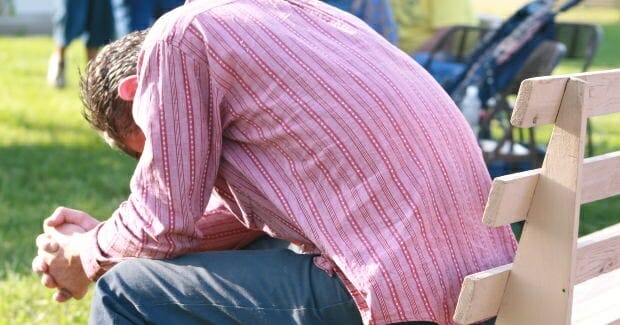
Jun 13, 2015 | Non categorizzato
 “… One way of applying this faith in God is when we are worried about something that makes us anxious. Sometimes it is fear for the future, or concerns about our health, we are frightened about suspected dangers, we are worried about our relatives, apprehensive about a job we have to do, we are uncertain about how to behave, there is the shock of bad news. There are fears of various kinds. Well then, at times like these, precisely in times when everything is uncertain, God wants us to believe in his love and asks of us an act of trust. If we are really Christians, he wants us to make good use of these painful situations to prove to him that we do believe in his love. This means believing that he is a Father to us and he thinks of us, and casting upon him every anxiety we have, burdening him with them. Scripture says: “Cast all your anxiety on him, because he cares for you.” (1 Pt 5:7). … The fact is that God is our Father and he wants his children’s happiness. This is why they unload every burden onto him. Besides, God is love and he wants his children to be love. All these worries, anxieties, and fears block our soul, shutting it up in itself, and get in the way of our opening up towards God by doing his will and towards our neighbours by making ourselves one with them so as to love them in the right way. In the early times of the Focolare, when the Holy Spirit was teaching us our first steps on the path of love, “casting all our anxiety on the Father” was something we did every day, and often several times a day. In fact we were leaving behind a purely human way of living, even though we were Christians, so as to move into a supernatural, divine way of living. That is, we were beginning to love. Worries are stumbling blocks to love. So the Holy Spirit had to teach us how to get rid of them. And he did. I remember we used to say that just as you cannot hold a hot coal in your hand, but you would drop it at once so as not to get burned, so too with the same speed we had to cast every worry onto the Father. I can’t remember any worry cast into the Father’s heart which he did not take care of. … So let’s cast every anxiety on him. We will then be free to love. We’ll run faster on the path of love which, as we know, leads to holiness.” C.Lubich, Cercando le cose di lassù, Roma 19924, p. 26-29. Read the whole text: Chiara Lubich Center
“… One way of applying this faith in God is when we are worried about something that makes us anxious. Sometimes it is fear for the future, or concerns about our health, we are frightened about suspected dangers, we are worried about our relatives, apprehensive about a job we have to do, we are uncertain about how to behave, there is the shock of bad news. There are fears of various kinds. Well then, at times like these, precisely in times when everything is uncertain, God wants us to believe in his love and asks of us an act of trust. If we are really Christians, he wants us to make good use of these painful situations to prove to him that we do believe in his love. This means believing that he is a Father to us and he thinks of us, and casting upon him every anxiety we have, burdening him with them. Scripture says: “Cast all your anxiety on him, because he cares for you.” (1 Pt 5:7). … The fact is that God is our Father and he wants his children’s happiness. This is why they unload every burden onto him. Besides, God is love and he wants his children to be love. All these worries, anxieties, and fears block our soul, shutting it up in itself, and get in the way of our opening up towards God by doing his will and towards our neighbours by making ourselves one with them so as to love them in the right way. In the early times of the Focolare, when the Holy Spirit was teaching us our first steps on the path of love, “casting all our anxiety on the Father” was something we did every day, and often several times a day. In fact we were leaving behind a purely human way of living, even though we were Christians, so as to move into a supernatural, divine way of living. That is, we were beginning to love. Worries are stumbling blocks to love. So the Holy Spirit had to teach us how to get rid of them. And he did. I remember we used to say that just as you cannot hold a hot coal in your hand, but you would drop it at once so as not to get burned, so too with the same speed we had to cast every worry onto the Father. I can’t remember any worry cast into the Father’s heart which he did not take care of. … So let’s cast every anxiety on him. We will then be free to love. We’ll run faster on the path of love which, as we know, leads to holiness.” C.Lubich, Cercando le cose di lassù, Roma 19924, p. 26-29. Read the whole text: Chiara Lubich Center
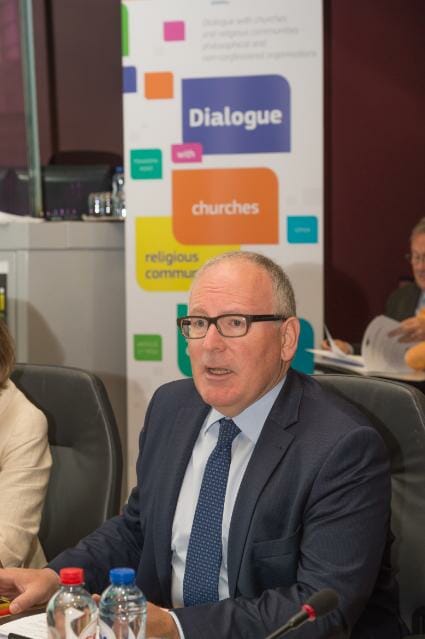
Jun 12, 2015 | Focolare Worldwide
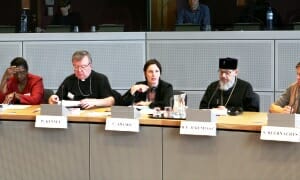 The meeting with the religious leaders will take place on 16 June at the Berlaymont Building in Brussels, seat of the European Commission. The top-level operational meeting is regularly held among the organisations of the European Union and churches, religions, philosophical associations and non-religious organizations, as provided by Art.17 of the Treaty of Lisbon. The results of the debate with the religious leaders will contribute to preparations for the European Union’s first Annual Convention on Fundamental Rights that will be held in Brussels on 1-2 October 2015 on the theme “Tolerance and respect: foresee and combat anti-Semitic and anti-Muslim phenomena in Europe.” The topic chosen for the debate, “Coexistence and acceptance of diversities,” underlines – in the words of Frans Timmermans, First Vice-President of the European Commission, that – “in our heterogeneous European societies, dialogue is essential in creating a community in which each feels at home. Living together means being able to accept the differences even in the presence of profound divergences.” Among the 15 religious leaders invited, are the Catholic Church’s representatives: Cardinal Reinhard Marx, Archbishop of Munich and President of the Episcopates’ Commission of the European Community (COMECE), and Maria Voce, President of the Focolare Movement.
The meeting with the religious leaders will take place on 16 June at the Berlaymont Building in Brussels, seat of the European Commission. The top-level operational meeting is regularly held among the organisations of the European Union and churches, religions, philosophical associations and non-religious organizations, as provided by Art.17 of the Treaty of Lisbon. The results of the debate with the religious leaders will contribute to preparations for the European Union’s first Annual Convention on Fundamental Rights that will be held in Brussels on 1-2 October 2015 on the theme “Tolerance and respect: foresee and combat anti-Semitic and anti-Muslim phenomena in Europe.” The topic chosen for the debate, “Coexistence and acceptance of diversities,” underlines – in the words of Frans Timmermans, First Vice-President of the European Commission, that – “in our heterogeneous European societies, dialogue is essential in creating a community in which each feels at home. Living together means being able to accept the differences even in the presence of profound divergences.” Among the 15 religious leaders invited, are the Catholic Church’s representatives: Cardinal Reinhard Marx, Archbishop of Munich and President of the Episcopates’ Commission of the European Community (COMECE), and Maria Voce, President of the Focolare Movement.

Frans Timmermans, First Vice-President of the European Commission
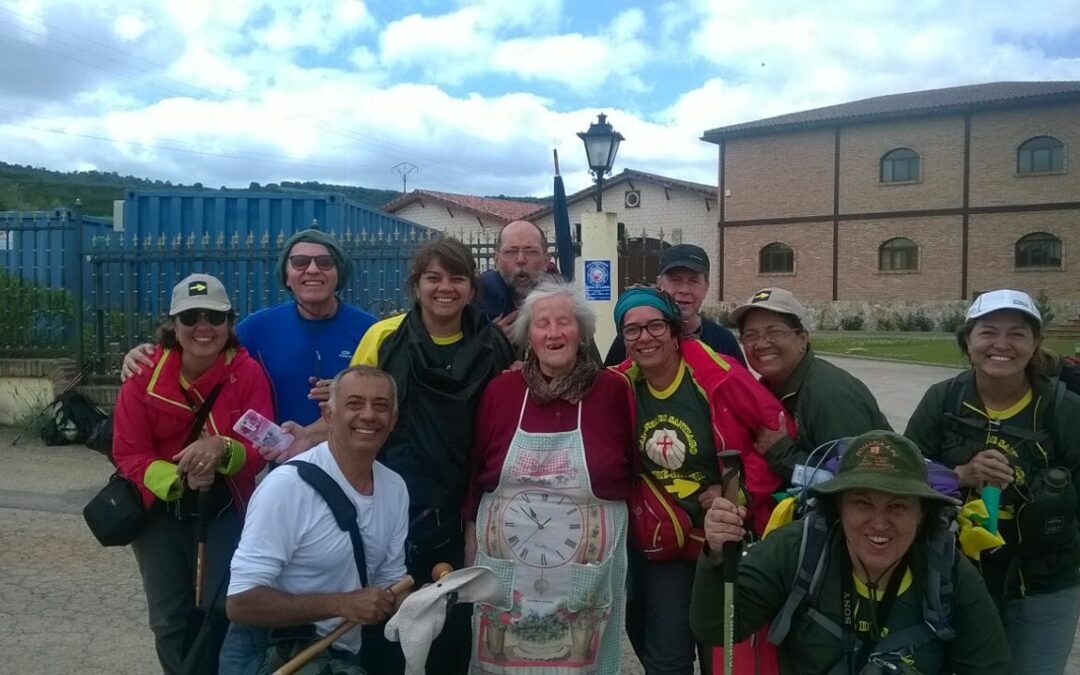
Jun 12, 2015 | Focolare Worldwide
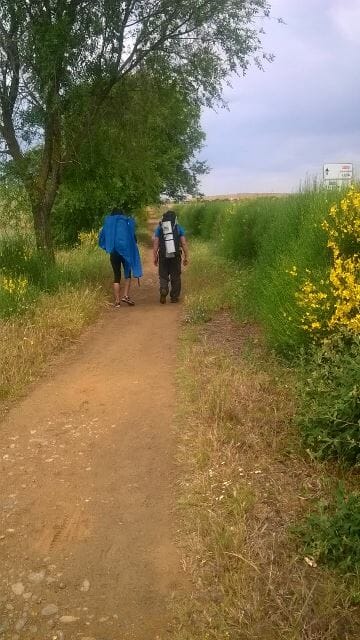 “The sun is beating down, but we need to get to the next village. Today we did another stretch with Grey from South Africa, a young television presenter. We were surprised to find people from all over the world, on the road to Campostela – from Korea, Japan, China, United States, Brazil, Canada and, naturally, Europe. Thirty years ago, only some 100 people would pass through Ronceveaux each year. The walk seems to respond to a need that is felt by the people of today. The reasons for taking the walk are many and it is interesting to share them. Peter, a 35 year old German hotel keeper from the vicinity of Monaco, sits at our table. He hasn’t gone on holiday for two years and, then, his girlfriend left him. He wants to think about life. Paul and Celine from Canada are doing the walk to give thanks for their life. Tracy from Australia is following a dream: she wants to have a great tale to tell her children and grandchildren. Antonella confided to us that she doesn’t know how to weep, she would like to get to know herself more and find her freedom. We took up El Camino 19 days ago: Bernard and Jean-Paul from Belgium and Ivo from Brazil who was frightened at the idea of having to walk 740 km. It seemed like too much. As the road stretches on you realise that the feet and legs are doing just fine, and with each new day your courage increases. Jean Paul, a married doctor, has been retired for a month. He makes frequent stops to explain the plants we find along the way. He helps us to take in the fragrances of the rich nature all around us. We are struck by the beauty of the flowers, the churches like in Burgos and in Lyon, but also in the small villages. We often turn around to enjoy the panorama behind us. Each morning we make a pact with one another to help us in the difficult moments. The walk brings us into touch with our limitations, sufferings, tiredness, thirst, hunger. . . and that can easily make us forget our neighbour.
“The sun is beating down, but we need to get to the next village. Today we did another stretch with Grey from South Africa, a young television presenter. We were surprised to find people from all over the world, on the road to Campostela – from Korea, Japan, China, United States, Brazil, Canada and, naturally, Europe. Thirty years ago, only some 100 people would pass through Ronceveaux each year. The walk seems to respond to a need that is felt by the people of today. The reasons for taking the walk are many and it is interesting to share them. Peter, a 35 year old German hotel keeper from the vicinity of Monaco, sits at our table. He hasn’t gone on holiday for two years and, then, his girlfriend left him. He wants to think about life. Paul and Celine from Canada are doing the walk to give thanks for their life. Tracy from Australia is following a dream: she wants to have a great tale to tell her children and grandchildren. Antonella confided to us that she doesn’t know how to weep, she would like to get to know herself more and find her freedom. We took up El Camino 19 days ago: Bernard and Jean-Paul from Belgium and Ivo from Brazil who was frightened at the idea of having to walk 740 km. It seemed like too much. As the road stretches on you realise that the feet and legs are doing just fine, and with each new day your courage increases. Jean Paul, a married doctor, has been retired for a month. He makes frequent stops to explain the plants we find along the way. He helps us to take in the fragrances of the rich nature all around us. We are struck by the beauty of the flowers, the churches like in Burgos and in Lyon, but also in the small villages. We often turn around to enjoy the panorama behind us. Each morning we make a pact with one another to help us in the difficult moments. The walk brings us into touch with our limitations, sufferings, tiredness, thirst, hunger. . . and that can easily make us forget our neighbour. 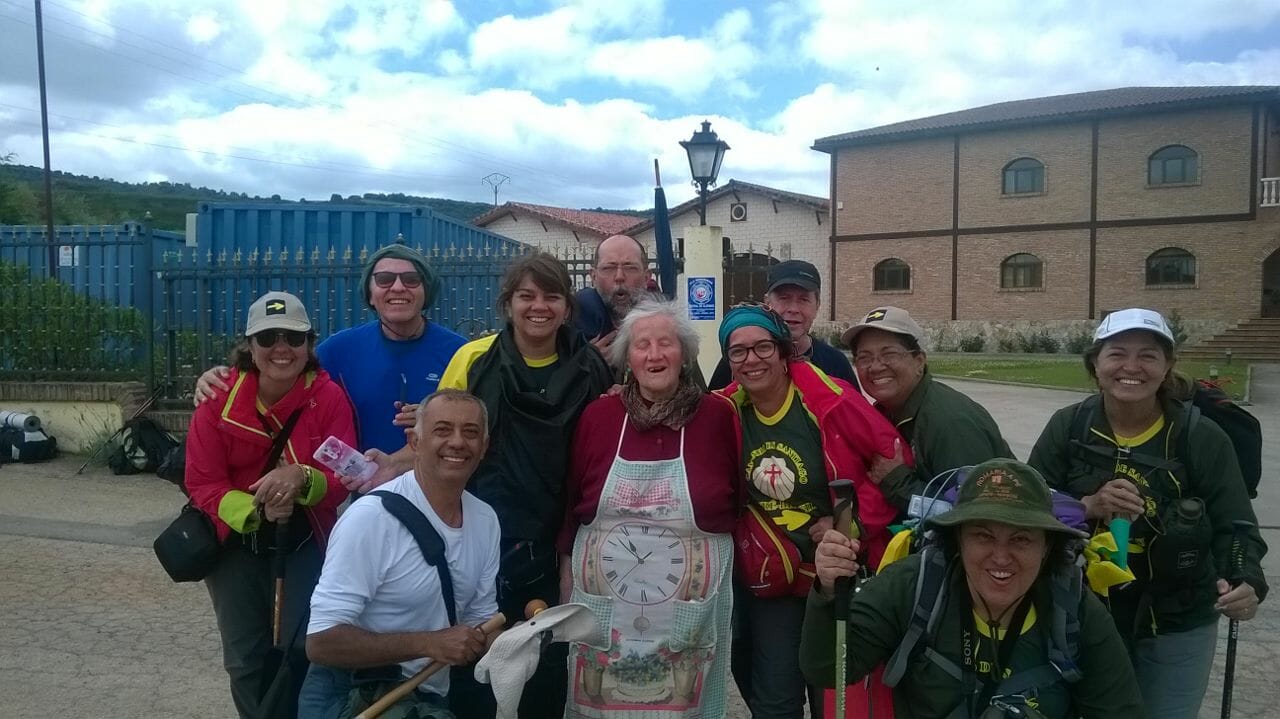 Ivo brings a lot of vitality to our little group, and others enjoy walking a few kilometres with us. They share their questions, difficulties and joys. One evening a priest told us the meaning of the word Compostela: Stars Field. We should also follow our star and be stars (light) for one another. Each day we come into touch with many hearts, but we are also touched by them. We try to open the door to God because we feel He is here amongst us through evanglical love. We have dinner with the others and pray altogether. Nicole is looking for people who would like to pray the Rosary. She recites it in Latin, Jean-Paul in French and we in Italian. Then Nicole begin to sing in Tagalo (Philippine language) and Ivo in Portuguese. Nicole recounts her story: she is on her way to entering a Religious community. Another time a policeman – Doriano – walks with us to 10 metres. He tells us he has prayed with us. This is a new experience in his life. Some cloistered nuns are also praying for us and for all the pilgrims; it is their vocation. Many wonder why we are speaking in Italian. We tell them our story, the story of Chiara Lubich and the Focolare Movement. To others we speak about the Gospel, the vocation and the journey of life. The experience of the Way of is different for every person. We are wondering what will happen when we reach the steps of St. James of Compostela. It will be a surprise like the one we will receive at the end of our lives. It will be joyful because of the journey, and having met so many people who have remained in our hearts. We wish them well with a ‘Buen camino’. Who knows when we’ll meet again?” Bernard, Jean-Paul, Ivo
Ivo brings a lot of vitality to our little group, and others enjoy walking a few kilometres with us. They share their questions, difficulties and joys. One evening a priest told us the meaning of the word Compostela: Stars Field. We should also follow our star and be stars (light) for one another. Each day we come into touch with many hearts, but we are also touched by them. We try to open the door to God because we feel He is here amongst us through evanglical love. We have dinner with the others and pray altogether. Nicole is looking for people who would like to pray the Rosary. She recites it in Latin, Jean-Paul in French and we in Italian. Then Nicole begin to sing in Tagalo (Philippine language) and Ivo in Portuguese. Nicole recounts her story: she is on her way to entering a Religious community. Another time a policeman – Doriano – walks with us to 10 metres. He tells us he has prayed with us. This is a new experience in his life. Some cloistered nuns are also praying for us and for all the pilgrims; it is their vocation. Many wonder why we are speaking in Italian. We tell them our story, the story of Chiara Lubich and the Focolare Movement. To others we speak about the Gospel, the vocation and the journey of life. The experience of the Way of is different for every person. We are wondering what will happen when we reach the steps of St. James of Compostela. It will be a surprise like the one we will receive at the end of our lives. It will be joyful because of the journey, and having met so many people who have remained in our hearts. We wish them well with a ‘Buen camino’. Who knows when we’ll meet again?” Bernard, Jean-Paul, Ivo
Jun 11, 2015 | Focolare Worldwide
The Summer School is an opportunity for international scholars and students from multiple disciplines to imagine the future – to recognize the possibilities hidden in the present and to understand the complex conditions required to navigate the possibilities. The Summer School will cultivate the skills and knowledge necessary to responsibly usher in a future of hope – a future charted with a moral compass directed by a commitment to the idea of the inherent value of the human person in the light of a culture that blossoms from the deep roots of relationships. The Summer School will encourage scholars to pursue research that informs paths to a positive future relying on epistemological questions derived by studies in economics, politics, law, theology and other technical and social science disciplines. For more information: Summer School 2015
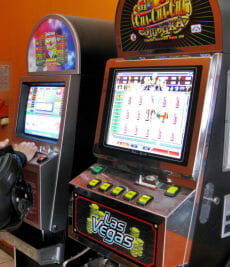
Jun 11, 2015 | Focolare Worldwide
 Thousands of signatures within a few short days under the title: Unity is strength. In April 2015, the Italian National Olymic Committee (CONI) launched a project for teenagers and young Italian residents of disadvantaged areas, titled: Vinvcere da grandi, meaning, becoming a winner as an adult. The news that was given with such large covereage has left a positive impression in many. The situation, which is paradoxical and painful, has created a tear in the social fabric that must be mended. Ths Focolare Movement in italy has noticed, along with many other associations in the country that fight for legality, transparency, and social justice. Universal brotherhood is also built in this way: joining together to ask the Italian National Olympic Committee to discontinue its collaboration with Lottomatica. The Focolare Movement in Italy has launched an online petition asking the Italian Government and Parliament to intervene in supporting an authentic culture of sport in the country, and a concrete commitment to the growth of young people. It is a bet that will only be paid off later, and we are conscious of the disproportion between the forces (like David and Goliath), but we are equally convinced that it is important to give a signal that goes against the trend. If you are interested in the project Stop Progetto Coni Lottomatica “Vincere da Grandi”, go to the New Humanity website.
Thousands of signatures within a few short days under the title: Unity is strength. In April 2015, the Italian National Olymic Committee (CONI) launched a project for teenagers and young Italian residents of disadvantaged areas, titled: Vinvcere da grandi, meaning, becoming a winner as an adult. The news that was given with such large covereage has left a positive impression in many. The situation, which is paradoxical and painful, has created a tear in the social fabric that must be mended. Ths Focolare Movement in italy has noticed, along with many other associations in the country that fight for legality, transparency, and social justice. Universal brotherhood is also built in this way: joining together to ask the Italian National Olympic Committee to discontinue its collaboration with Lottomatica. The Focolare Movement in Italy has launched an online petition asking the Italian Government and Parliament to intervene in supporting an authentic culture of sport in the country, and a concrete commitment to the growth of young people. It is a bet that will only be paid off later, and we are conscious of the disproportion between the forces (like David and Goliath), but we are equally convinced that it is important to give a signal that goes against the trend. If you are interested in the project Stop Progetto Coni Lottomatica “Vincere da Grandi”, go to the New Humanity website.
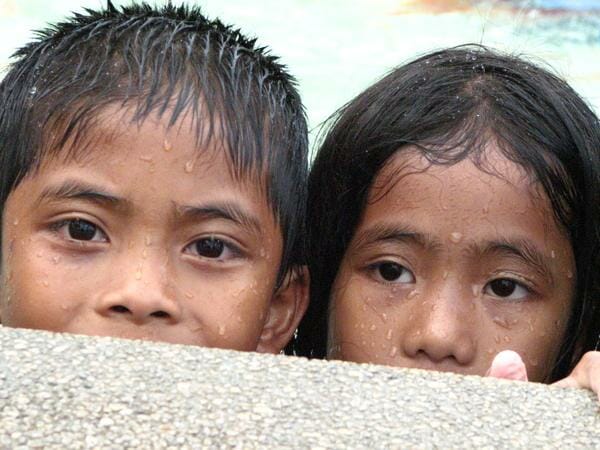
Jun 10, 2015 | Focolare Worldwide
 “Last year a two year old girl who is quite dear to me almost lost her life. I thought that because she had been born here, she was immediately given every medical cure and surgery. But what if she had been born in a country with less resources, how would it have gone for her? And why should she have had the good fortune of living here? Do other children not have the same right?” Thus Gabriella got to work organising a fundraising project for disadvantaged children, asking the Mayor for a public space on the main square of her town, Marcignago di Pavia, Italy. She also involved the Parish, the Diocese and the local press. “How will it turn out, I dont’know,” she admits, “I know why and for whom I’m doing this, and the only thing I can do is hope for the best!” This is but one of the many testimonies of supporters who have become involved in the #obiettivo15mila campaign of the New Families Association begun on May 24 in Rome, Italy, at the Città dell’Altra Economia. “The goal” – Association president Andrea Turatti explains – is to “give visibility to what we are already doing through on-going projects in 50 countries, and to expand our involvement, by involving others in projects of solidarity.” Solidarity projects have multiplied in many Italian cities and in several social projects that are underway around the world. With internet link-ups they have been able to present their activities: surgical clinics, nursery schools, primary schools and after-school programmes, through which children and teens receive adequate nourishment and medical care, scholastic assistance and other professional services. These programmes are inserted in wider interventions, in cooperation with national and international partnerships in favor of families and entire communities until they are able to be autonomous, and in favour of the well-being of children worldwide. “We would also like to contribute to the solidarity,” said Youn Vera who, thanks to the distance support is now attending the second year of secondary school at the Collegio Gue Pascal of Man, on the Ivory Coast. “To help out four classmates who were ill and in need of medical care, we had the idea of a garden where we could grow salad and spinach.” “Distance support is a project that does much direct good for us, not only to the ones who receive, but because it makes you grow, it puts you in contact with different people and cultures, it helps you to discover the value of sobriety and creates community,” said Vincenzo Curatolo, president of the Sad Forum which joins hundreds of associations in Italy. One example is Guido and Azzurra who together with other teenagers from the Roman quarter, tell how they have founded an association that has been operating for nearly two years, in which they carry out several activities in favour of others. The most beautiful experience has been in the Philippines, responding to the emergency in the aftermath of hurricane Hayan. Hosted by the Focolare and in cooperation with the New Families non-Profit Association they went into several barrios on the peripheries of several cities and touched with their own hands what previously had seen so distant from their daily lives and could only be seen on television. Living them out in daily life, really changed our way of thinking. Then we wanted to make a long-term commitment in supporting a girl in a wheelchair: Princess, with her sunshine smile.” Giusy, from near Pisa, Italy, tells of how one group of Focolare New Families slowly got the whole area involved, the municipal council and some 300 families. “The project was begun by me and my colleague, twenty years ago,” says Massimo Grossi of the RCS Corriere della Sera, and it has involved more than 250 journalists and printing services. Thanks to many small donations, we received 50 distance supporters for children in Africa and Asia; many small contributions that united together: this is our spirit and our strength.”
“Last year a two year old girl who is quite dear to me almost lost her life. I thought that because she had been born here, she was immediately given every medical cure and surgery. But what if she had been born in a country with less resources, how would it have gone for her? And why should she have had the good fortune of living here? Do other children not have the same right?” Thus Gabriella got to work organising a fundraising project for disadvantaged children, asking the Mayor for a public space on the main square of her town, Marcignago di Pavia, Italy. She also involved the Parish, the Diocese and the local press. “How will it turn out, I dont’know,” she admits, “I know why and for whom I’m doing this, and the only thing I can do is hope for the best!” This is but one of the many testimonies of supporters who have become involved in the #obiettivo15mila campaign of the New Families Association begun on May 24 in Rome, Italy, at the Città dell’Altra Economia. “The goal” – Association president Andrea Turatti explains – is to “give visibility to what we are already doing through on-going projects in 50 countries, and to expand our involvement, by involving others in projects of solidarity.” Solidarity projects have multiplied in many Italian cities and in several social projects that are underway around the world. With internet link-ups they have been able to present their activities: surgical clinics, nursery schools, primary schools and after-school programmes, through which children and teens receive adequate nourishment and medical care, scholastic assistance and other professional services. These programmes are inserted in wider interventions, in cooperation with national and international partnerships in favor of families and entire communities until they are able to be autonomous, and in favour of the well-being of children worldwide. “We would also like to contribute to the solidarity,” said Youn Vera who, thanks to the distance support is now attending the second year of secondary school at the Collegio Gue Pascal of Man, on the Ivory Coast. “To help out four classmates who were ill and in need of medical care, we had the idea of a garden where we could grow salad and spinach.” “Distance support is a project that does much direct good for us, not only to the ones who receive, but because it makes you grow, it puts you in contact with different people and cultures, it helps you to discover the value of sobriety and creates community,” said Vincenzo Curatolo, president of the Sad Forum which joins hundreds of associations in Italy. One example is Guido and Azzurra who together with other teenagers from the Roman quarter, tell how they have founded an association that has been operating for nearly two years, in which they carry out several activities in favour of others. The most beautiful experience has been in the Philippines, responding to the emergency in the aftermath of hurricane Hayan. Hosted by the Focolare and in cooperation with the New Families non-Profit Association they went into several barrios on the peripheries of several cities and touched with their own hands what previously had seen so distant from their daily lives and could only be seen on television. Living them out in daily life, really changed our way of thinking. Then we wanted to make a long-term commitment in supporting a girl in a wheelchair: Princess, with her sunshine smile.” Giusy, from near Pisa, Italy, tells of how one group of Focolare New Families slowly got the whole area involved, the municipal council and some 300 families. “The project was begun by me and my colleague, twenty years ago,” says Massimo Grossi of the RCS Corriere della Sera, and it has involved more than 250 journalists and printing services. Thanks to many small donations, we received 50 distance supporters for children in Africa and Asia; many small contributions that united together: this is our spirit and our strength.”
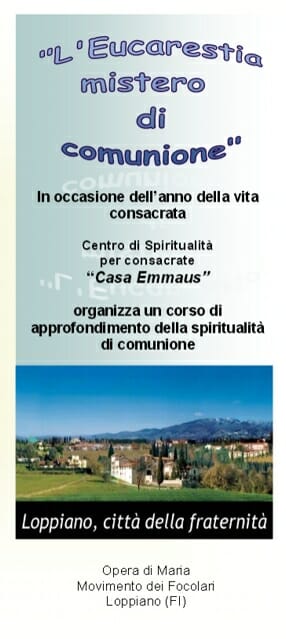
Jun 9, 2015 | Non categorizzato
 “Casa Emmaus,” located in the international town of Loppiano – Incisa Valdarno (FI), wishes to be a “school of communion” and a “school of life” for all the religious worldwide. The course will offer some tools to help participants acquire a deeper knowledge of the spirituality of communion the Church has proposed for the Third Millennium, in the light of unity and life of the Gospel. All are advised to bring along their own Constitutions, to be able to compare their own charisms and share with the others the innate treasures within, in a spiritual climate of reciprocity. See: Brochure
“Casa Emmaus,” located in the international town of Loppiano – Incisa Valdarno (FI), wishes to be a “school of communion” and a “school of life” for all the religious worldwide. The course will offer some tools to help participants acquire a deeper knowledge of the spirituality of communion the Church has proposed for the Third Millennium, in the light of unity and life of the Gospel. All are advised to bring along their own Constitutions, to be able to compare their own charisms and share with the others the innate treasures within, in a spiritual climate of reciprocity. See: Brochure
Jun 8, 2015 | Non categorizzato
In the face of immense challenges which also the European society has to tackle – particularly this year, after the attacks in Paris and Copenhagen – one can feel the growing distrust within and between communities. Already at the start of the 1990s, on the initiative of Jacques Delors, the EC President at that time, dialogue with the Churches and the non-religious organisations had been an occasion for an exchange of views on European politics between institutions and the main players of civil society. How can we live together and build a society in which every person and community can feel at home and safe? How can we find ways of accepting the differences when substantially there is no agreement? These are some of the open questions the religious leaders will confront together.. Also the President of the Movement, Maria Voce has accepted the invitation to participate, underlining how the priority of the Focolare is to “build bridges through respectful dialogue at various levels, and to contribute to the peaceful coexistence and fraternity between people of diverse faiths and the most varied ethnic and social origins.”
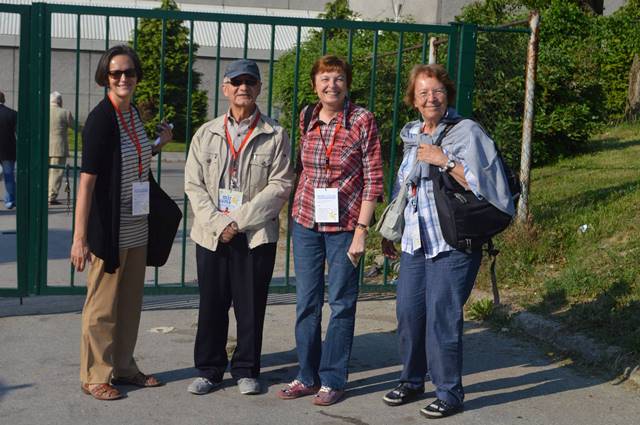
Jun 8, 2015 | Non categorizzato
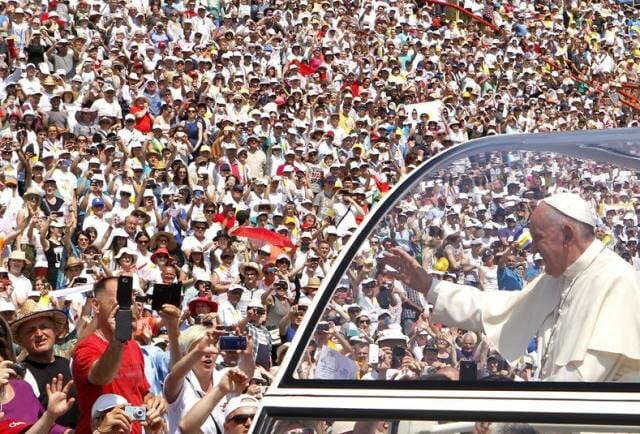 We are breathing an air of peace,” Cardinal Puljic had exclaimed on the vigil of the Pope’s arrival. The city was expecting him with much joy and had begun preparing for his visit several months in advance. Rumuors that had put the security on guard were put to rest by the concerted preparatory efforts Church and State working in harmony. This effort and the willingness of the citizens in following the rules allowed everything to turn out quite well.” Sarajevo, the city that John Paull II called the European Jerusalem was festively awaiting sthe Pope. Peace be with you was the motto of the Pope’s visit to Bosnia and Herzegovina, “a land tested by conflicts, the latest of which is still very present in the memory of “Bosnians, Serbs and Croats,” as Novi Svijet Gina Perkov (Croatia) writes. “The war has indeed had tragic consequences: death, destruction and the exile of so many people. The number of Catholics (primarily Croation) has been reduced by half.” The population was grateful that, this time, the eyes of the world were fixed on them for a happy reason, and hopeful that this fact might help in resolving several political questions; one being that “several EU countries are culpable for having permitted and assisted the ethinic cleansing,” as attested to in a recent book by Bishop Franjo Komarica, Bishop of Banja Luka, Serb Republic. During the Eucharistic Celebration at the Olympic Stadium of Kosevo in the presence of 70 thousand people – 23 thousand of them, Croation – the Pope offered a strong message of peace. “Peace is the dream of God, the plan of God for humankind. . . Today, the cry once more arises from the people of God and from all people of good will: War never again! Making peace is an artisanal task: it requires passion, patience, experience, tenacity. Blessed are they who sow peace through their daily actions, with attitudes and gestures of service, fraternity, dialogue, forgiveness. . . Peace is the work of justice. . . practiced, lived out justice. True justice is doing to the other person, to the other people, what I would want to be done to me, to my people. Peace is a gift from God, because it is the fruit of his reconciliation with us. . . Today let us together ask the Lord for a simple heart, for the grace of patience,” he concluded. In the afternoon, Pope Francis met at the cathedral with priests, men and women Religious and consecrated people and, in the end, with young people. The Focolare Movement offered gifts to the Pope and attended all the moments of encounter.
We are breathing an air of peace,” Cardinal Puljic had exclaimed on the vigil of the Pope’s arrival. The city was expecting him with much joy and had begun preparing for his visit several months in advance. Rumuors that had put the security on guard were put to rest by the concerted preparatory efforts Church and State working in harmony. This effort and the willingness of the citizens in following the rules allowed everything to turn out quite well.” Sarajevo, the city that John Paull II called the European Jerusalem was festively awaiting sthe Pope. Peace be with you was the motto of the Pope’s visit to Bosnia and Herzegovina, “a land tested by conflicts, the latest of which is still very present in the memory of “Bosnians, Serbs and Croats,” as Novi Svijet Gina Perkov (Croatia) writes. “The war has indeed had tragic consequences: death, destruction and the exile of so many people. The number of Catholics (primarily Croation) has been reduced by half.” The population was grateful that, this time, the eyes of the world were fixed on them for a happy reason, and hopeful that this fact might help in resolving several political questions; one being that “several EU countries are culpable for having permitted and assisted the ethinic cleansing,” as attested to in a recent book by Bishop Franjo Komarica, Bishop of Banja Luka, Serb Republic. During the Eucharistic Celebration at the Olympic Stadium of Kosevo in the presence of 70 thousand people – 23 thousand of them, Croation – the Pope offered a strong message of peace. “Peace is the dream of God, the plan of God for humankind. . . Today, the cry once more arises from the people of God and from all people of good will: War never again! Making peace is an artisanal task: it requires passion, patience, experience, tenacity. Blessed are they who sow peace through their daily actions, with attitudes and gestures of service, fraternity, dialogue, forgiveness. . . Peace is the work of justice. . . practiced, lived out justice. True justice is doing to the other person, to the other people, what I would want to be done to me, to my people. Peace is a gift from God, because it is the fruit of his reconciliation with us. . . Today let us together ask the Lord for a simple heart, for the grace of patience,” he concluded. In the afternoon, Pope Francis met at the cathedral with priests, men and women Religious and consecrated people and, in the end, with young people. The Focolare Movement offered gifts to the Pope and attended all the moments of encounter.  The spirituality of unity arrived in Bosnia and Herzegovina in 1975 through several young people who had attended the Mariapolis of Zagabria, Croatia. In 1992, war broke out: countless were lost, destruction, death and refugees. Many, many people fled to the different countries of Europe. There was a huge effort to continue to support those who had stayed behind, but since roads were closed only a few letters and foodstuffs were able to reach the people. Through the love of the people who lived the spirituality of unity, many Muslims and Christians found a point of encounter in the Ideal of unity. When the war ended and they returned to Bosnia, they themselves became the bearers and witnesses of this new spirit. “At the beginning of 1996 it finally possible to go to them, in spite of the war,” say some witnesses to the events. We were met by rubble everywhere, crumbling houses, armoured vehicles, constant police surveilance and, once in a while, an exploding grenade. . . The city of Sarajevo was treeless because they had all been burned by the people who tried to warm themselves during the freezing winters.” The first spark of the Ideal of unity that had been welcomed by several people many years earlier, and treasured in their hearts, burst into flames during the war among a people marked by suffering, in need of so many things, who were able to intuit what was essential, thirsty for something true. They were Catholics, but also Muslims and Orthodox, all of them grateful for the discovery of God-Love which had transformed their lives. The current situation Bosnia is still unresolved. The Catholics emigrate, especially the young, and their is fear of future conflict. The Focolare community draws its strength from unity, a small sign of that unity which was desired by John Paul II in 1997 when he visited and wished for Sarajevo that after the war, it would become the convincing model of the third millenium.
The spirituality of unity arrived in Bosnia and Herzegovina in 1975 through several young people who had attended the Mariapolis of Zagabria, Croatia. In 1992, war broke out: countless were lost, destruction, death and refugees. Many, many people fled to the different countries of Europe. There was a huge effort to continue to support those who had stayed behind, but since roads were closed only a few letters and foodstuffs were able to reach the people. Through the love of the people who lived the spirituality of unity, many Muslims and Christians found a point of encounter in the Ideal of unity. When the war ended and they returned to Bosnia, they themselves became the bearers and witnesses of this new spirit. “At the beginning of 1996 it finally possible to go to them, in spite of the war,” say some witnesses to the events. We were met by rubble everywhere, crumbling houses, armoured vehicles, constant police surveilance and, once in a while, an exploding grenade. . . The city of Sarajevo was treeless because they had all been burned by the people who tried to warm themselves during the freezing winters.” The first spark of the Ideal of unity that had been welcomed by several people many years earlier, and treasured in their hearts, burst into flames during the war among a people marked by suffering, in need of so many things, who were able to intuit what was essential, thirsty for something true. They were Catholics, but also Muslims and Orthodox, all of them grateful for the discovery of God-Love which had transformed their lives. The current situation Bosnia is still unresolved. The Catholics emigrate, especially the young, and their is fear of future conflict. The Focolare community draws its strength from unity, a small sign of that unity which was desired by John Paul II in 1997 when he visited and wished for Sarajevo that after the war, it would become the convincing model of the third millenium.
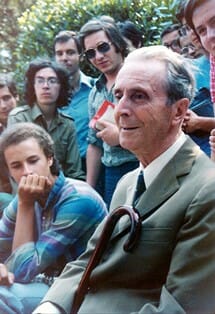
Jun 7, 2015 | Non categorizzato
 “To me, Chiara Lubich’s talks on the Eucharist were like a revelation that led me to a broader and more precise knowledge of the Eucharist’s deep impact not only on the individual but on society. I saw that the progress of Christian conscience in the individual and in society depends on the depth of the knowledge Christians have of the Eucharist. In other words: if we know what the Eucharist is, and we live its reality as such, we can draw forth from Christianity the deepest value our soul and society needs. In fact the Eucharist unites man with God and is the mystery of Christ’s love for humanity. It is communion with Christ and our brothers; it is unity with both. If we want to see the progress of society’s highest communitarian and universal aspirations that oppose egoism, racisms, tyrannies of sorts, etc., we have to make the Eucharistic conscience grow, and live it profoundly. We can say that the relationship with God and man himself is a Eucharistic mystery in which God makes himself man because man can be like God. It is nothing less than that. With her explanations, Chiara makes us consciously enter not only into the mentality of Christ, but into his humanity and divinity. She wants us to coexist, through the sacramental communion, with both the divinity and humanity of Jesus. It is a revolution that defies man and sets him in contrast with and above the process of moral degradation besetting society today. The revolt against death starts from the Eucharist. Chiara has thus stamped on our lives a mark of heroism and sanctity. There is no need for mediocrity to be able to live within human coexistence. What comes to mind is the question the angel asked the souls that entered Dante’s purgatory: “Oh you humans who have been born to fly – why have you fallen under the breeze?” Meaning to say, oh man, why do you, who are born to fly to God, let yourself fall into sin so easily and lose this chance to fly? Sanctity is heroism, but which is immensely facilitated by daily nutriment of the Eucharistic bread. It implies a daily, assiduous devotion, going one step higher each day, beyond the mediocrity in which a greater part of humanity lives in today. This mediocrity consists in lies, lust, thefts, and violence which is not a way of living but of stupidly organising our own agony. The Eucharist gives us wings to fly!” Igino Giordani, The Eucharist gives us wings to fly, «GEN» November 2004, pp.10-11
“To me, Chiara Lubich’s talks on the Eucharist were like a revelation that led me to a broader and more precise knowledge of the Eucharist’s deep impact not only on the individual but on society. I saw that the progress of Christian conscience in the individual and in society depends on the depth of the knowledge Christians have of the Eucharist. In other words: if we know what the Eucharist is, and we live its reality as such, we can draw forth from Christianity the deepest value our soul and society needs. In fact the Eucharist unites man with God and is the mystery of Christ’s love for humanity. It is communion with Christ and our brothers; it is unity with both. If we want to see the progress of society’s highest communitarian and universal aspirations that oppose egoism, racisms, tyrannies of sorts, etc., we have to make the Eucharistic conscience grow, and live it profoundly. We can say that the relationship with God and man himself is a Eucharistic mystery in which God makes himself man because man can be like God. It is nothing less than that. With her explanations, Chiara makes us consciously enter not only into the mentality of Christ, but into his humanity and divinity. She wants us to coexist, through the sacramental communion, with both the divinity and humanity of Jesus. It is a revolution that defies man and sets him in contrast with and above the process of moral degradation besetting society today. The revolt against death starts from the Eucharist. Chiara has thus stamped on our lives a mark of heroism and sanctity. There is no need for mediocrity to be able to live within human coexistence. What comes to mind is the question the angel asked the souls that entered Dante’s purgatory: “Oh you humans who have been born to fly – why have you fallen under the breeze?” Meaning to say, oh man, why do you, who are born to fly to God, let yourself fall into sin so easily and lose this chance to fly? Sanctity is heroism, but which is immensely facilitated by daily nutriment of the Eucharistic bread. It implies a daily, assiduous devotion, going one step higher each day, beyond the mediocrity in which a greater part of humanity lives in today. This mediocrity consists in lies, lust, thefts, and violence which is not a way of living but of stupidly organising our own agony. The Eucharist gives us wings to fly!” Igino Giordani, The Eucharist gives us wings to fly, «GEN» November 2004, pp.10-11

 In the waiting room – “Our son and his friend were jailed for drug dealing. During the long waits before visitations with inmate relatives, we got to know a young foreigner with a sad face. For three years she had to travel a great distance on foot, to be able to visit her friend regularly, who was in jail. When she heard that she could count on us in the future to give her a ride in our car, she finally smiled and couldn’t thank us enough. On the following visit, to lighten the wait especially for the small children who had come with their mothers, we brought along some toys, sweets and fruit. When he learned what was happening in the waiting room where there was a more serene atmosphere, we saw a positive change in our son’s relationship with us.” (Italy) Pardon – “I had gone to live with a colleague, leaving behind my wife and four children. While the eldest of my children took it badly and left the house, my wife and the other three began to ask God for the grace of my return. Little by little I found the strength to leave the other woman; to avoid seeing her at work (since we work in the same company), I also left my job. I returned to my family, unemployed until I was able to find a very simple job. Living humility was good for me. I thank God for the support I received from other families and especially for the forgiveness I received from my wife and my children with whom I have begun a new path.” (USA) On the phone – “Years ago my wife died at the age of 23 in an automobile accident. Since that day I felt a subtle bitterness towards the friend who had been driving and remained uninjured. I held him responsible for that death. He’s now married with children. With trembling hands I dialled his telephone number. His wife answered surprised and embarrassed when I told her it was me. I opened my heart to her: ‘I’ve been thinking about all of you for the past few days. I wanted to see you, to know your children. . . I’d be so happy if you’d come and visit me.” She was overcome with emotion and promised me they would visit. . . I found myself feeling so happy and light. (Switzerland) The numbers do add up – “A mother of five children with health problems, drugs and alcoholism, life choices that have led to irregular families, amidst tension and fights, now I’m a widow. Alone, in the face of problems
In the waiting room – “Our son and his friend were jailed for drug dealing. During the long waits before visitations with inmate relatives, we got to know a young foreigner with a sad face. For three years she had to travel a great distance on foot, to be able to visit her friend regularly, who was in jail. When she heard that she could count on us in the future to give her a ride in our car, she finally smiled and couldn’t thank us enough. On the following visit, to lighten the wait especially for the small children who had come with their mothers, we brought along some toys, sweets and fruit. When he learned what was happening in the waiting room where there was a more serene atmosphere, we saw a positive change in our son’s relationship with us.” (Italy) Pardon – “I had gone to live with a colleague, leaving behind my wife and four children. While the eldest of my children took it badly and left the house, my wife and the other three began to ask God for the grace of my return. Little by little I found the strength to leave the other woman; to avoid seeing her at work (since we work in the same company), I also left my job. I returned to my family, unemployed until I was able to find a very simple job. Living humility was good for me. I thank God for the support I received from other families and especially for the forgiveness I received from my wife and my children with whom I have begun a new path.” (USA) On the phone – “Years ago my wife died at the age of 23 in an automobile accident. Since that day I felt a subtle bitterness towards the friend who had been driving and remained uninjured. I held him responsible for that death. He’s now married with children. With trembling hands I dialled his telephone number. His wife answered surprised and embarrassed when I told her it was me. I opened my heart to her: ‘I’ve been thinking about all of you for the past few days. I wanted to see you, to know your children. . . I’d be so happy if you’d come and visit me.” She was overcome with emotion and promised me they would visit. . . I found myself feeling so happy and light. (Switzerland) The numbers do add up – “A mother of five children with health problems, drugs and alcoholism, life choices that have led to irregular families, amidst tension and fights, now I’m a widow. Alone, in the face of problems  that people could never even imagine, since I look so calm. I should say that I’m helped by my character, but I was able to react to certain situations thanks especially to the gift of faith and the support of friends. Now I’m living on my pension, but I manage just the same to help some needy people every month. At times I would like to say ‘no more’. Indeed it was be easy to put something aside for when I’m old. But it’s more powerful than me. And I see that Divine Providence continues to arrive right on time every time, and the numbers do add up.” (Italy)
that people could never even imagine, since I look so calm. I should say that I’m helped by my character, but I was able to react to certain situations thanks especially to the gift of faith and the support of friends. Now I’m living on my pension, but I manage just the same to help some needy people every month. At times I would like to say ‘no more’. Indeed it was be easy to put something aside for when I’m old. But it’s more powerful than me. And I see that Divine Providence continues to arrive right on time every time, and the numbers do add up.” (Italy) 






 “I’ve discovered how the Pope favors the excluded. In some way it’s also my choice, but by his example I have understood how at times I continue to exclude, or I find myself in a group of people who keep silent in the midst of exclusions or injustices,” says Ana Maria Ceballos, a social worker in Bolivia. An impression that speaks of true conversion towards the excluded, one of the strongest themes of this step of the voyage of Pope Francis in Latin America. The same for Nestor Ariñez di Cochabamba, who lives in the
“I’ve discovered how the Pope favors the excluded. In some way it’s also my choice, but by his example I have understood how at times I continue to exclude, or I find myself in a group of people who keep silent in the midst of exclusions or injustices,” says Ana Maria Ceballos, a social worker in Bolivia. An impression that speaks of true conversion towards the excluded, one of the strongest themes of this step of the voyage of Pope Francis in Latin America. The same for Nestor Ariñez di Cochabamba, who lives in the 







 “When it comes to migrations, the numbers say more than the words. In one report published in October 2014, it was estimated that there were 7,124,000,000 people in the world. If the wealth were equally distributed, every person would have a median annual income of 14 thousand USA dollars. In reality, the income of 2,700,000,000 people is two USA dollars per day. Now, this economic inequality, which is a social inequality, has a very strong impact on migration. Entire populations pick up and move toward wealthier countries.” What is a migrant? In 2013, the United Nations claimed that there were 232 million married people in the world. And it defined a migrant as “a person who leaves his or her own country for reasons of employment and settles in another place for a period of more than twelve months.” That’s the only definition that you find, Flavia Cerino stressed. In fact, there are the refugees (the ones who are in need of political asylum in another country); the refugees fleeing from war situations, the so-called “illegals” (who move without having a document that makes them eligible to enter another country). And the reasons vary: war, poverty, studies, cultural interest, natural disasters . . .
“When it comes to migrations, the numbers say more than the words. In one report published in October 2014, it was estimated that there were 7,124,000,000 people in the world. If the wealth were equally distributed, every person would have a median annual income of 14 thousand USA dollars. In reality, the income of 2,700,000,000 people is two USA dollars per day. Now, this economic inequality, which is a social inequality, has a very strong impact on migration. Entire populations pick up and move toward wealthier countries.” What is a migrant? In 2013, the United Nations claimed that there were 232 million married people in the world. And it defined a migrant as “a person who leaves his or her own country for reasons of employment and settles in another place for a period of more than twelve months.” That’s the only definition that you find, Flavia Cerino stressed. In fact, there are the refugees (the ones who are in need of political asylum in another country); the refugees fleeing from war situations, the so-called “illegals” (who move without having a document that makes them eligible to enter another country). And the reasons vary: war, poverty, studies, cultural interest, natural disasters . . . 




 Estelle is the eldest of eight brothers, in a family from Ivory Coast who, after having worked as a secretary at a medical clinic in Abidjan, moved to Man in 2006 where she volunteers especially as a contact person with sponsors of a medical centre run by the
Estelle is the eldest of eight brothers, in a family from Ivory Coast who, after having worked as a secretary at a medical clinic in Abidjan, moved to Man in 2006 where she volunteers especially as a contact person with sponsors of a medical centre run by the 

 The cries of many victims, of many who have been ‘discarded’, raises a question of justice which weighs heavily upon our capitalist system; a question that is all the more serious because it is no longer being seen or heard. Pope Francis is the only figure of authority on global moral issues, who due to his particular charism, is giving recognition and ear to today’s pressing ethical question (corporate social responsibility), in the face of which he is not afraid to raise radical questions (generated by his fraternal concern and love – agape ). No other ‘world organisation or body’ exists that is as free as he is from powerful economic and political forces, a freedom that not even the United Nations or the European Commission can lay claim to, let alone politicians at national level, who continue on in their practice of “selling a poor person for a pair of sandals – (Book of Amos), as indeed Italy is at risk of doing with its introduction of new gambling laws. A number of commentators, self-professed supporters of the free market economy, claim that the Encyclical Laudato si’ is opposed to it ; that not only is it a statement against modernism, but a reflection of the Pope’s own Marxist views, going almost as far as predicting a global environmental catastrophe. But far from it. In fact, it does just the opposite. Pope Francis focuses on reminding us that both markets and business enterprise are precious allies of the common good as long as they do not become the ‘only rule’; or that the ‘part’ (the market) does not try to become the whole (life itself). The global market is a necessary part of the life of society which contributes to the common good (there are many examples quoted of responsible business owners and technology being used at the serving of the economy and providing employment). However, it is not the full story, nor the most important. Pope Francis also seeks to remind all participants of the global economy of their vocation to reciprocity and “mutual benefit“. It is on this basis that he criticises companies who exploit (all too often) people and land; by doing so, they negate the very nature of what the global economy is supposed to be, increasing their wealth at the expense of impoverishing other weaker players.
The cries of many victims, of many who have been ‘discarded’, raises a question of justice which weighs heavily upon our capitalist system; a question that is all the more serious because it is no longer being seen or heard. Pope Francis is the only figure of authority on global moral issues, who due to his particular charism, is giving recognition and ear to today’s pressing ethical question (corporate social responsibility), in the face of which he is not afraid to raise radical questions (generated by his fraternal concern and love – agape ). No other ‘world organisation or body’ exists that is as free as he is from powerful economic and political forces, a freedom that not even the United Nations or the European Commission can lay claim to, let alone politicians at national level, who continue on in their practice of “selling a poor person for a pair of sandals – (Book of Amos), as indeed Italy is at risk of doing with its introduction of new gambling laws. A number of commentators, self-professed supporters of the free market economy, claim that the Encyclical Laudato si’ is opposed to it ; that not only is it a statement against modernism, but a reflection of the Pope’s own Marxist views, going almost as far as predicting a global environmental catastrophe. But far from it. In fact, it does just the opposite. Pope Francis focuses on reminding us that both markets and business enterprise are precious allies of the common good as long as they do not become the ‘only rule’; or that the ‘part’ (the market) does not try to become the whole (life itself). The global market is a necessary part of the life of society which contributes to the common good (there are many examples quoted of responsible business owners and technology being used at the serving of the economy and providing employment). However, it is not the full story, nor the most important. Pope Francis also seeks to remind all participants of the global economy of their vocation to reciprocity and “mutual benefit“. It is on this basis that he criticises companies who exploit (all too often) people and land; by doing so, they negate the very nature of what the global economy is supposed to be, increasing their wealth at the expense of impoverishing other weaker players. 


























 The meeting with the religious leaders will take place on 16 June at the Berlaymont Building in Brussels, seat of the European Commission. The top-level operational meeting is regularly held among the organisations of the European Union and churches, religions, philosophical associations and non-religious organizations, as provided by Art.17 of the Treaty of Lisbon. The results of the debate with the religious leaders will contribute to preparations for the European Union’s first Annual Convention on Fundamental Rights that will be held in Brussels on 1-2 October 2015 on the theme “Tolerance and respect: foresee and combat anti-Semitic and anti-Muslim phenomena in Europe.” The topic chosen for the debate, “Coexistence and acceptance of diversities,” underlines – in the words of Frans Timmermans, First Vice-President of the European Commission, that – “in our heterogeneous European societies, dialogue is essential in creating a community in which each feels at home. Living together means being able to accept the differences even in the presence of profound divergences.” Among the 15 religious leaders invited, are the Catholic Church’s representatives: Cardinal Reinhard Marx, Archbishop of Munich and President of the Episcopates’ Commission of the European Community (COMECE), and
The meeting with the religious leaders will take place on 16 June at the Berlaymont Building in Brussels, seat of the European Commission. The top-level operational meeting is regularly held among the organisations of the European Union and churches, religions, philosophical associations and non-religious organizations, as provided by Art.17 of the Treaty of Lisbon. The results of the debate with the religious leaders will contribute to preparations for the European Union’s first Annual Convention on Fundamental Rights that will be held in Brussels on 1-2 October 2015 on the theme “Tolerance and respect: foresee and combat anti-Semitic and anti-Muslim phenomena in Europe.” The topic chosen for the debate, “Coexistence and acceptance of diversities,” underlines – in the words of Frans Timmermans, First Vice-President of the European Commission, that – “in our heterogeneous European societies, dialogue is essential in creating a community in which each feels at home. Living together means being able to accept the differences even in the presence of profound divergences.” Among the 15 religious leaders invited, are the Catholic Church’s representatives: Cardinal Reinhard Marx, Archbishop of Munich and President of the Episcopates’ Commission of the European Community (COMECE), and 







